

Bali Travel Regulations
Bali entry requirments and regulations.
Stay updated with the official government regulations regarding Bali Entry Requirements .
General Travel
General travel requirements to Bali include Customs, Covid Vaccination status, plus more.
Below we will answer all the questions you may have about your eligibility to enter Bali.
Visa Regulations
Bali Visa regulations relate to how long you plan to stay in Bali, Visa on Arrival, B211a, Valid and expired passports etc.
You may find on our Bali Visa Page .
Bali Quarantine and Travel Requirements
Are there international flights to bali.
ABSOLUTELY. The number of flights to Bali may be lesser than before. Still, airlines are gradually including it again in their schedules, with airfares increasing significantly due to the pandemic – Singapore Air, KLM, Qatar, and Jetstar are among them. However, they aren’t as frequent anymore.
Do I Need a Visa to Enter Bali?
Depending on your nationality, the purpose of travel and the duration of stay, you can find out what documents are required for your visit. Please click the button below to check which visa requirements apply to you.
Bali Visa Regulations.
Do I Need a B211A Visit Visa?
If your country is not included in the list of visa-free and Visa on Arrival to Bali countries, or if you are planning to stay for more than 60 days, then a B211A Visit Visa is necessary. It’s worth noting that the original Visa on Arrival has been improved, so it now covers business meetings, sourcing and purchasing goods, transit activities, and government duties.
Can I Visit Bali Now?
Exciting news for international travellers! Indonesia has relaxed most of its travel restrictions and visa requirements, enabling visitors to explore the country’s gorgeous landscapes. However, specific steps still need to be taken to enter Indonesia safely and hassle-free; let this page guide you through these crucial details so your trip is smooth sailing!
Covid Requirements for Travelling to Bali?
Travellers who are fully vaccinated DO NOT need to quarantine and can now travel into Indonesia without a PCR test.
After receiving two (or more) doses of Pfizer, Moderna, Johnson & Johnson, or other approved COVID-19 vaccinations , travellers can confidently enter Bali, Indonesia with peace of mind that they are safe from any potential risk of catching it more in Bali than anywhere else in the world.
Unvaccinated
For the unvaccinated, entry into Bali/Indonesia is possible; however, only with a Medical Exemption Letter. Your doctor should provide this letter and explain any comorbid diseases or other conditions that would prevent you from receiving vaccinations.
However, this will not apply if you remain unvaccinated due to personal choices rather than medical reasons – in which case entry will unfortunately not be permitted.
If you have already recovered from Covid-19 and only received one dose of the vaccine, a recovery certificate will be required to travel to Bali. This document proves that you are no longer an active transmitter of Covid-19. Without this certificate, entry into Bali is strictly prohibited.
Proof of Vaccination
To travel to Bali, Indonesia, you must present a valid digital or printed proof of Covid Vaccination with the final dose taken 14 days prior. Although officials may not check your status upon arrival in Indonesia, airlines typically verify this requirement when checking in. Therefore, you must meet this criterion for entry.
Date of Vaccination (Expiry)
Currently, Indonesia does not have an expiration date for vaccinations; instead, it simply monitors the number of vaccinated people.
At this moment, no other quarantine conditions are necessary. You will be qualified to enter Indonesia following the abovementioned regulations, or you won’t be able to make your way into the country.
Regulations can often fluctuate, and different airlines may enforce the rules more strictly than others. Unfortunately, some carriers might even struggle to stay up-to-date with changing regulations and could ask for documentation that is no longer necessary. Consequently, verifying your airline’s requirements before you travel to Indonesia is essential to avoid any unnecessary complications during your trip.
What Other Documents Do I Need for Bali?
Accelerate your arrival in Bali by completing the ONLINE Customs Declaration Form: E-CD (Electronic Custom Declaration).
Airlines and immigration authorities may require you to have a return ticket within the time frame of your visa validity.
Also, ensure that your passport is valid for at least six months from arrival, or they will deny entry! Finally, fill out all paperwork BEFORE you arrive to save time in airport customs when visiting Bali.
It is essential to ensure your passport has an empty page before embarking on any international journey.
Additionally, please be aware that Emergency Passports and Temporary Travel Documents are no longer acceptable forms of travel documentation.
To assist with a smooth transition amid this pandemic, we strongly recommend downloading a “Travel Health App” before travelling abroad for all necessary health advisories and updates.
Bali Travel Regulations FAQs
Those under 18 years of age typically don’t require vaccinations; however, if they apply for a B211A Visa (not the one issued upon arrival), they must provide a medical statement indicating why vaccination is impossible.
Following January 2023, the President officially abolished all COVID-related travel limitations (PPKM measures), such as testing and mask-wearing. As a result, the situation is entirely under control, with so many millions of people now vaccinated.
Forget about the dreaded PCR Test when entering Bali / Indonesia; all travellers must be fully vaccinated unless they have a medical exemption stating otherwise.
With multiple medical insurance providers available with a simple Google search, finding coverage for your trip to Bali is easier than ever. However, it’s important to note that travel medical insurance isn’t required. Here’s our top-rated Bali insurance provider .
It depends on where you are flying from; however, if you don’t have the funds to fly direct to Bali, no worries! You can still get a ticket from Jakarta at an affordable 50-150 USD rate. In addition, airlines such as Citilink, Batik Air, Air Asia, Lion Air and Garuda offer regular flights that make this journey possible easily. So if the direct flight is too expensive for your budget, it might be well worth considering a domestic flight.
To ensure compliance with local regulations, please refrain from bringing more than the equivalent of IDR 100,000,000 (ca. AUD 10,000) cash into the country.
Travelers to Bali need at least one COVID-19 vaccination. For air travel, a PCR test no older than 48 hours is mandatory. For other transports, an antigen test within 24 hours is sufficient.
Visitors need a valid visa and an undamaged passport. Additionally, certain forms and apps are required upon arrival, and transit rules apply.
Tourists must stay in registered hotels and villas. Unlicensed accommodations like certain Airbnb rentals are not permitted.
International travelers must complete an Indonesia e-CD form, applicable to all parts of Indonesia, including Bali.
Travelers should be up-to-date with routine vaccinations like measles, mumps, rubella, diphtheria, tetanus, and influenza before visiting Bali.
Australians need a valid passport with six months’ validity and at least one blank page. Temporary passports are not accepted.
Australians require a passport with at least 6 months validity, a return or onward flight booking, and proof of COVID-19 vaccinations.
Foreign travelers must undergo a health check upon arrival in Indonesia, including body temperature checks.
A new law prohibiting cohabitation and sex outside marriage is set to come into effect in three years, potentially impacting tourism.
Australian passport holders need a visa to enter Bali, available upon arrival at Indonesian airports for certain stay durations.
Bringing more than IDR 100 million (around $6,500 USD) requires declaration at customs.
Travelers are allowed to bring 1 liter of alcoholic products per person. Excess amounts are subject to fines or confiscation.
It’s a mandatory form for declaring personal or excess goods for tax purposes, to be completed before arrival.
Mosquitoes can be prevalent in Bali, so it’s advisable to use repellents and take precautions, especially during the rainy season.
Bali is generally safe for tourists, with only a few experiencing problems. Common sense and awareness are key to a safe visit.
The Visa on Arrival for Bali costs around AUD$50 (IDR 500,000).
Consult with a healthcare provider for specific advice. Commonly recommended items include pain relievers, antihistamines, and medications for stomach ailments.
Yes, it’s important to consider travel insurance for Bali to cover unforeseen medical and travel-related incidents.
Bali’s governor has stated that tourists’ marital status will not be checked under the new law, which is not yet in effect.
The Visa on Arrival costs approximately USD $35, valid for 30 days and extendable for another 30 days at a local immigration office.
While new laws criminalizing sex outside marriage are pending, tourists are currently not charged under these laws.
Australian drivers need both their national license and an international permit for proper insurance coverage and legality in Bali.
Cash is generally preferred in smaller towns and rural areas, while cards are widely accepted in larger cities.
You can use your phone in Bali by getting an Indonesian SIM card, provided your phone is unlocked.
Most Australian debit cards, especially those affiliated with Mastercard or Visa, are widely accepted in Bali. Before traveling, inform your bank of your trip to avoid unexpected card cancellations.
Travelers to Indonesia are allowed to carry a reasonable amount of perfume, along with specific allowances for tobacco and alcohol, adhering to the customs regulations.
Declare all purchased items, gifts, and business-related goods at customs. This includes duty-free purchases and items received as gifts or for business use.
Australians require a tourist visa for visits up to 30 days in Bali, effective from May 2022.
The Bali visa-on-arrival fee can be paid in several currencies, including AUD, at designated airport counters.
Bali’s departure tax is now included in the airline ticket price, eliminating the need for separate payment at the airport.
Ibuprofen and similar over-the-counter medications are generally allowed in Bali, but prescription drugs should be accompanied by a doctor’s note, especially if they contain controlled substances like codeine.
Australians traveling to Bali need a valid passport, visa, EVOA application, and compliance with COVID-19 health measures, including the PeduliLindungi app.
While holding hands is common, more intimate gestures like kissing are generally not practiced in public in Bali, in line with local customs.
Despite laws against cohabitation and extramarital relations, unmarried tourists commonly share rooms in Bali without legal issues.
Pre-arranging a visa online is recommended to avoid long queues at the airport, allowing more time for vacation activities.
Tourists can bring up to IDR 100 million (around US $6,500) without declaring it. Amounts exceeding this limit must be declared.
Two men can share a room in Bali without issues, though public displays of affection are generally discouraged.
Moderate public displays of affection like hugging are acceptable in Bali, especially among friends, but overtly sexual behavior is frowned upon.
Australians can stay in Bali for 30 days with a Visa on Arrival, with the possibility of a 30-day extension through specific agencies.

Bali Travel Tips: 40+ Essential Dos & Don’ts for Bali & Indonesia!
I live in Bali , and I’ve been traveling the country of Indonesia for over 5 years – I have traveled all over the country, to every top tourist spot and most of Bali’s outer islands. Here’s my local guide to the best Bali Travel Tips: dos and don’ts you have to know before traveling to Bali & Indonesia in 2024!
✔️ Quick Guide – My Top 6 Bali Travel Tips
→ Know that you need an onward ticket booked to board your flight to Indonesia. → Buy a Telkomsel SIM card to have cell service. → Bali runs on cash – Take out Indonesian Rupiah at airport ATMs when you arrive. → Use bug spray every day to prevent Dengue Fever. → Download the Grab App , it’s Bali’s version of Uber and much cheaper than taxis off the street. → Don’t forget to explore Bali’s outer islands!

Bali Travel Tips: Arrival & Visas
1. know about the 500,000 idr visa on arrival fee + new 150,000 idr bali tax.
Indonesia permits visa-free entry to ASEAN countries but everyone else needs to buy a Visa On Arrival (VOA) at the airport. They don’t ask any questions to get a Visa on Arrival, you just need to pay a fee. They accept US dollars and Indonesian Rupiah, and you can pay by card.
💰 Price of entry to Bali : Indonesia VOA is 500,000 IDR + 150,000 Bali Island Tax = 650,000 IDR ($40)
You have the option to extend your 30-day VOA. To do this you need to hire a visa service in Bali to extend your 30-day visa to 60 days. You need to do this while you still have at least 10 days remaining on your 30-day visa.
When I extended my VOA to two months it took 20 days and cost around 800,000 Indonesian Rupiah ($55). You can find a visa agency through your hotel, hostel, or guest house.
The cool thing is that you don’t actually have to be in one place for all 20 days to extend your visa. The second time I did a VOA extension I gave my passport to the visa company, got my fingerprints stamped at the immigration in Jimbaran on day 4, and then left for the outer islands!
I did a bunch of island hopping from Bali, the Gilis, Lombok, Flores, and the Komodo Islands without my passport – just my NY state ID, because I was traveling within Indonesia.
My hostel back in Canggu, Nyaman Hostel, received my passport with the visa extension stamp and held it for me until I was done with my travels.
Katie’s Tips ✶
Keep in mind that the Indonesian Visa on Arrival takes up a whole page on your passport! So make sure you have enough free space.
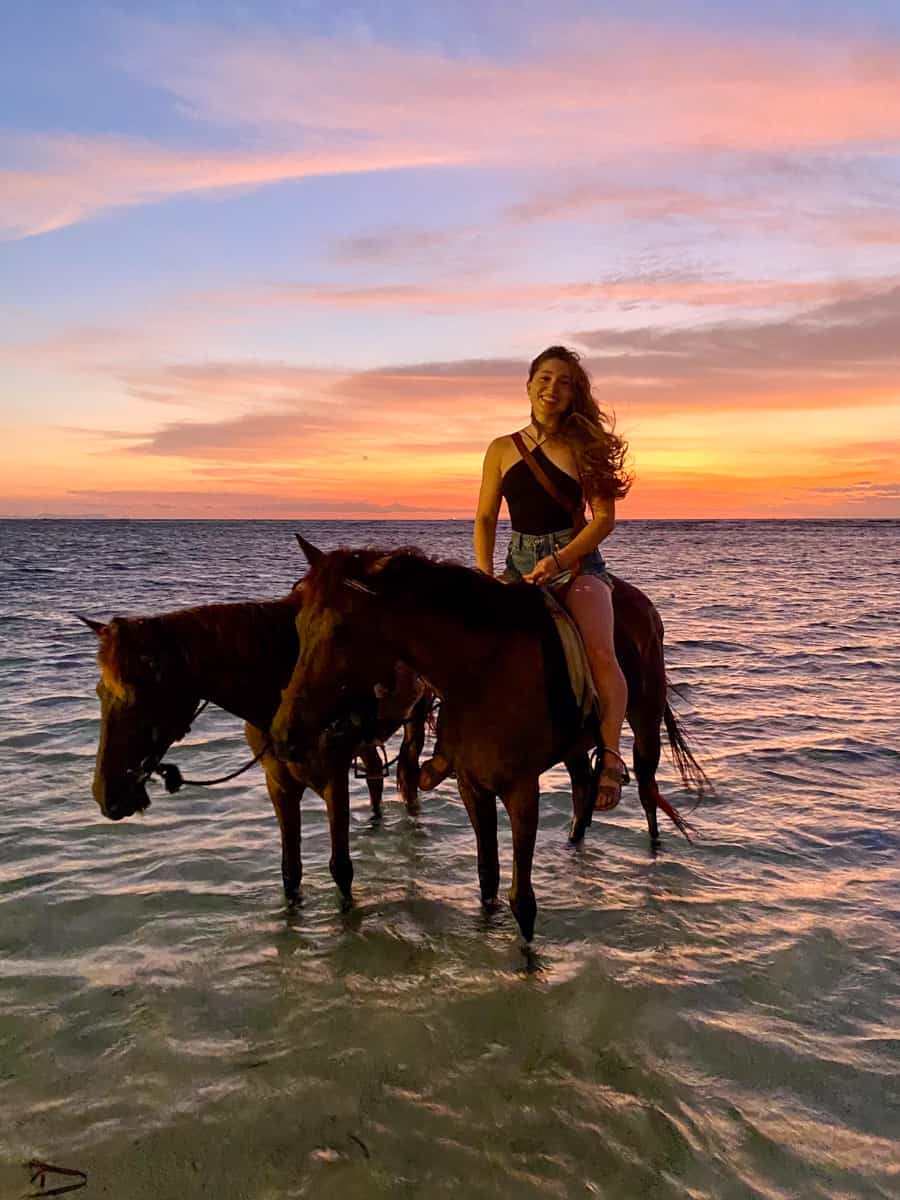
2. Know That Bali’s Visa is for 30 Days, Not 1 Month! (+ The Cost of Overstaying is 1,000,000 IDR PER DAY!)
I’ve met so many travelers who overstay their visas in Bali because 30-days sounds like one month, but it’s not! You have 30 days from entering Indonesia to leaving, and for each day you overstay it’s a 1,000,000 IDR (around $70) fee.
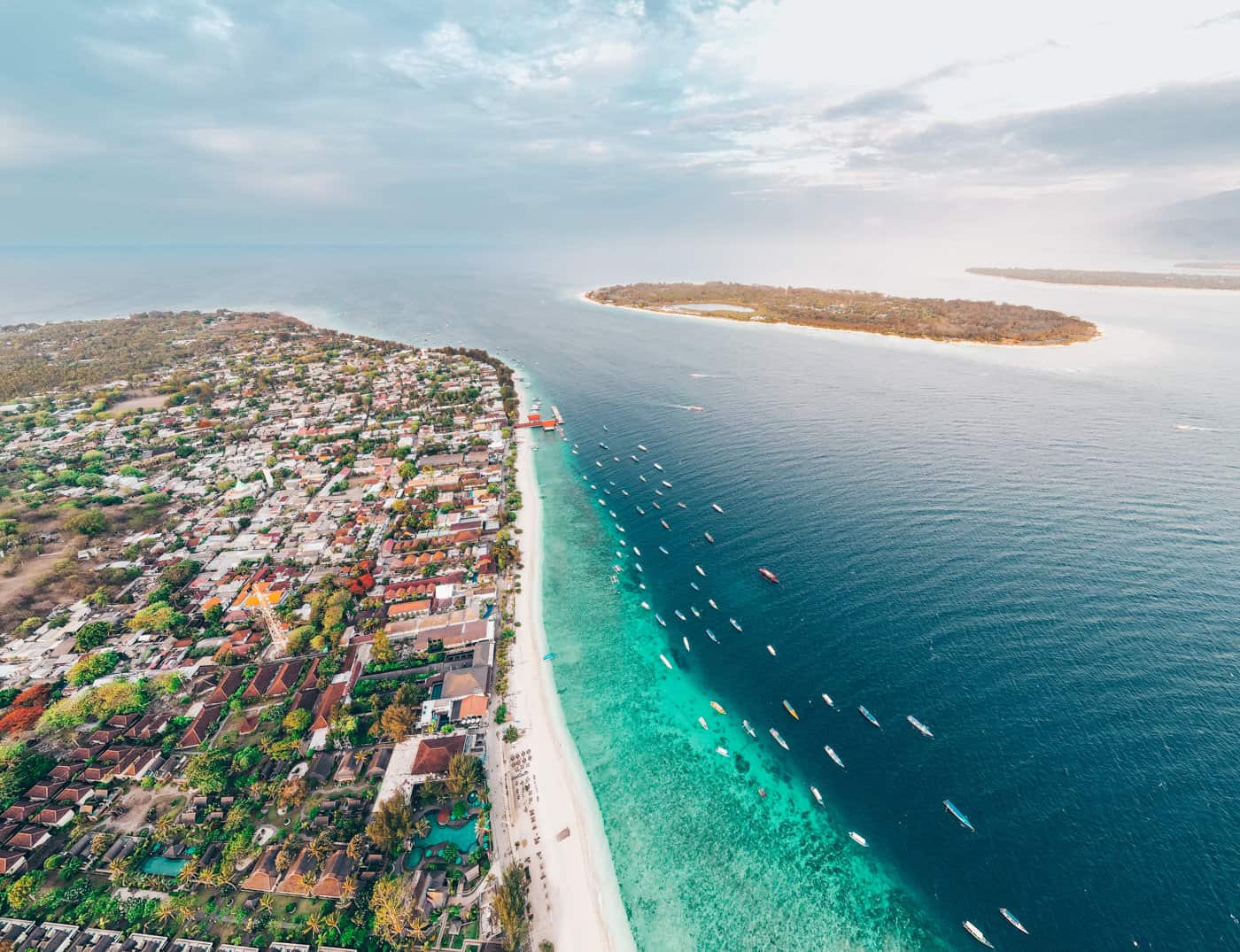
3. Don’t Forget To Book Your Onward Ticket
You’ll probably be asked for your onward ticket, which is your ticket out of Indonesia before you board your inbound plane. You need to have an outbound flight already booked, legally, to enter Indonesia. Don’t know when you’ll be leaving, or to where? No problem.
You can use a service like Onward Ticket which books an outbound ticket for you and then cancels it within the next few days. This is completely legal and it’s just to meet entry requirements. I’ve used Onward Ticket more times than I can count, as a full-time traveler I’m not always sure where my next location will be!
💰 Full Disclosure – I’ve spent hundreds of dollars because I didn’t have onward tickets booked ahead of time. I advise you to book your onward ticket at least a few hours ahead of time before you’re at the airport because that’s where I always mess up when I leave it until the last minute!

Bali Travel Tips: Communication & Cell
4. link your number to a whatsapp account before arriving in bali.
Everyone uses WhatsApp in Bali, from foreigners to locals. If you’re visiting Bali and don’t have WhatsApp yet, you should definitely download the app and link it to your phone number before getting to the island.
If you link your phone number to your WhatsApp, it will work no matter which SIM you have put in! You can use WhatsApp in Bali to organize tours, book hotels, or talk to just about anyone.

5. Buy A SIM Card When You Arrive In Bali
You should DEFINITELY buy an Indonesian SIM card when you arrive in Bali. You’ll need a local number for a lot of services, like ride-sharing apps, food delivery, etc. Local SIM cards and data plans are easy to get and affordable. You can purchase your SIM through most hotels or go to a “Telkomsel” store.
Telkomsel is the most popular cell provider in Indonesia. You can top up your SIM card with more data whenever you need to in person at convenience stores like Indomaret, Circle K, and Alfamart.
There’s a problem with people illegally importing smartphones to Indonesia. Because of this, Indonesia requires people to register all cell phones at the airport upon arrival if they’re staying longer than three months overall.
If you fail to do this, you need to pay a 40% tax on the value of your phone (for phones worth more than $450) or the government will shut your SIM card slot off after 3 months in the country. The 3 months leeway period is so the government doesn’t accidentally shut down tourists’ cell phones, but this allowance doesn’t reset when you exit and re-enter the country!
You need to have an unlocked phone to use a foreign SIM card.
6. D on’t Worry About the Language Barrier – There are Lots of English Speakers & Bahasa is Easy!
Almost everywhere you go in Bali you’ll be able to find someone who speaks a little bit of English or a foreigner who speaks a little Indonesian. Bahasa Indonesian is also an easy language for English speakers to pronounce. Everything is written phonetically, and it’s written in the Latin Alphabet, the same as English. So, if you use Google Translate, it will be very easy for you to read things in Bahasa and be understood if you need assistance.

7. Do Download Google Translate Offline
Bahasa Indonesian is one of the languages available on Google Translate’s app for offline download. If you get a local SIM card you won’t have to worry about being offline very often, but it’s good to download the language offline just in case you wind up in a poor service area.

Bali Travel Tips: Food
8. don’t let fear of “bali belly” stop you from eating the local foods .
Bali Belly is the affectionate term foreigners have for travelers’ diarrhea in Indonesia. Foreign tourists are sometimes so afraid of Bali Belly that it keeps them from enjoying the island to the fullest!
The local food is one of the best things in Bali! You’ll see local cafes, called “Warungs”, everywhere. The most popular local dishes are Nasi Goreng (fried rice), Mie Goreng (fried noodles), Nasi Campur (platter of different Balinese foods with rice), and Babi Guling (roasted suckling pig).

9. Don’t Forget You Can Order Food For Delivery In Bali!
Did you know you can order food 24 hours a day in most areas of Bali? Through Grab or Gojek (two very similar apps in Bali) you can order all types of food at any time of day. These apps came massively in handy when I crashed my scooter and couldn’t get out of bed for a week since you can also get items from the pharmacy delivered!

10. Don’t Fall For Tourist Traps
This is a hard-to-follow piece of advice because unless you eat at 100% local Indonesian Warungs , you’re gonna fall for some tourist traps! Just today I paid 70K IDR (around $5), for a terrible “fresh juice” which was like 90% water.
Basically, any place in Bali that sells Western-style food might be a tourist trap, it’s a bit of a coin toss and you just need to try a bunch of different places to find the best food. Also, always read the online reviews for cafes to know where to go.

Bali Travel Tips: Shopping & Money
11. don’t assume everything will be “cheap” .
It’s just as easy to spend $100 (1,500,000 Indonesian Rupiah) on something in Bali as it is to spend $10. This is because things are priced for foreign tourists, who earn in Dollars rather than Rupiah. Depending on where you buy something you could be paying a wildly different price for the same item!

12. Do Order Anything You Need Online
While there’s no Amazon Prime in Indonesia, ANYTHING you want in Bali can be delivered! I take a lot of specific supplements for my health, and I was pleasantly surprised to find that they were all easily available with express shipping off of Indonesia’s version of Amazon, Tokopedia.
13. Do Shop Locally
It feels so good to shop in Bali because so many of the stores are locally owned and sell genuine handmade goods!

14. Don’t Overpay With “Foreigner’s Price”
If you know the correct local price for things then you’ll know how much to pay. Obviously, a coconut off the side of the road will be cheaper than a fresh coconut from a 5-star resort, but it’s a good metric to know how fancy a place is by how far the prices deviate from the norm.
Knowing the local price particularly comes in handy with taxis. There are a lot of places in Bali where you can’t use Uber or Gojek (Indonesian Uber) due to the Bali Taxi Mafia . In these situations, you’ll have to negotiate a price with a taxi driver off the street. You can open your Gojek or Grab app and see what the local price for the ride you’re going to take should be , and use that as a jumping-off point for negotiations.
You’re probably never going to get a taxi off the street as cheap as an Grab or Gojek, and there’s no point in stressing yourself out too much over a few dollars!

15. Do Carry LOTS Of Cash On You
Indonesia is a cash-first country! Although a lot of restaurants, hotels, etc will accept cards, a lot of them don’t. Expect tours, taxis, and meals to be paid for in cash. Sometimes they will accept cards, but when that happens it’s more like a pleasant surprise!
16. Foreign Credit Cards Don’t Work for Everything – Use 3rd Party Sites that Accept Non-Indonesian Cards
While you shouldn’t have a problem at restaurants and hotels paying in person with foreign credit cards, most Indonesian websites only accept Indonesian credit cards. This is a recurring problem for foreigners who want to top off their Telkomsel SIM cards, pay their electricity bills, or book a train in Indonesia.
The sites I use the most for booking things online in Indonesia are Booking.com, HostelWorld, and Agoda for housing, and for activities, I use Klook and Viator. For transportation like buses, speed boats, and ferries, 12GoAsia comes in handy all over SE Asia!
If you do not have an Indonesian Bank Account, you will likely have to pay for things at a convenience store like Alfamart, Circle K, or Indomaret that would usually be purchased online.
A good example of this is when I need to pay my electricity bill. Since I don’t have an Indonesian bank account, I cannot use their online portal. Instead, I take a picture of my router and bring it to the nearest Alfamart – There’s one on practically every street corner.
There I can give the cashier my serial code, and then pay my bill in cash. You can use this system to pay all types of bills, as well as shop for things online.
When I buy things on Tokopedia, which is Bali’s version of Amazon, it gives me a code to bring to the local convenience store. I have 24 hours to give the cashier this code and pay my bill in cash, or the sale doesn’t go through.
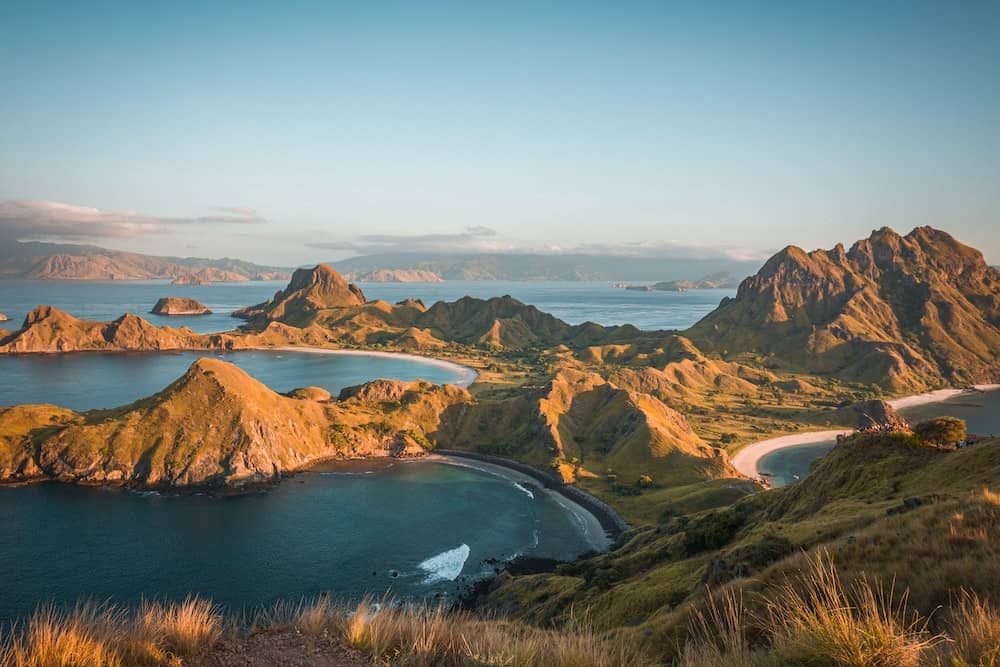
17. Do Hang On To Small Bills
People really hang on to their small bills in Bali, and it’s hard to get change a lot of the time. A few times I’ve been at a restaurant that only accepts cash and they have looked at me like I was crazy for needing cash for a 100K Rupiah bill! ($7)When you do get small bills, hang onto them for situations where you need change.
18. Do Know About The Mandatory 15-20% Service & VAT Charges
In most restaurants that cater to tourists, it will say “all prices subject to mandatory service and tax” at the bottom, so you don’t have to worry about tipping too much in Bali because it’s added for you. The tax is 10%, and the service charge is usually 5-10%.
19. Don’t Be Afraid To Haggle
Bartering (respectfully) is a part of Balinese culture. If you’re buying a service, whether it’s a taxi ride or a tour, the price is usually up for negotiation. I wrote a whole article you can read here on how to haggle in Egypt and it holds up pretty well for Bali as well.
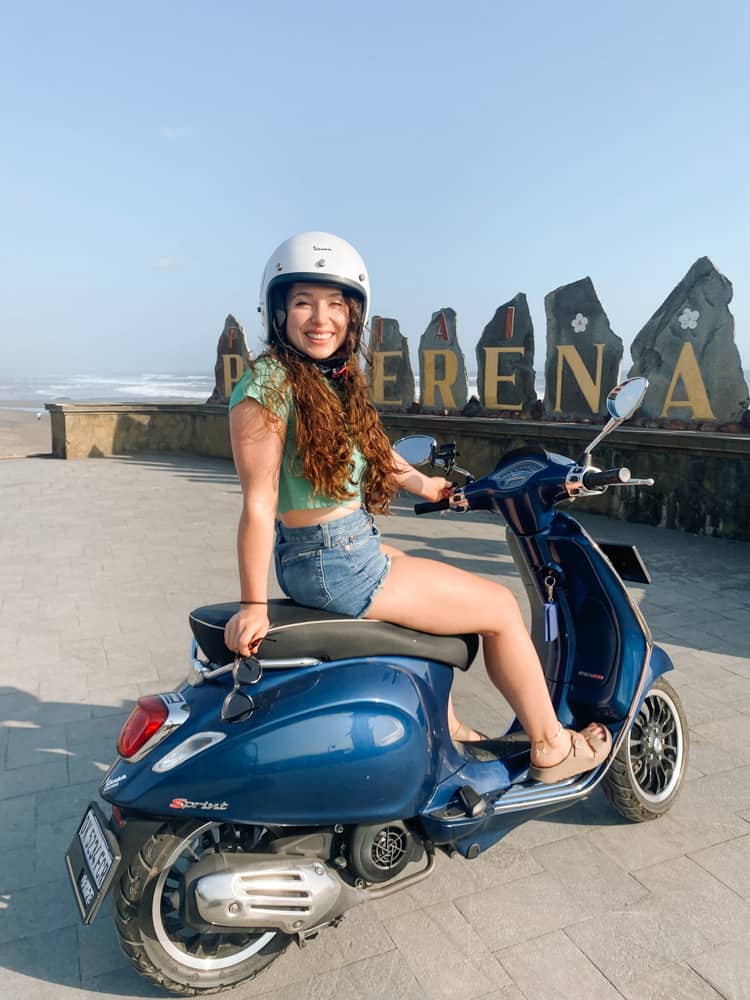
Bali Travel Tips: Transportation
20. do download gojek or grab apps (bali’s versions of uber).
Grab is the premier ride-hailing app in Bali. It’s the easiest way to get around, and the app also includes other services like food and package delivery. I use Grab multiple times a day, I really couldn’t live without it in Bali!
Tipping taxi drivers is not expected in Bali. That being said, Sometimes taxi and scooter rides are very inexpensive on Grab. Sometimes as low as 10K Indonesian Rupiah (around 50 cents) for a scooter taxi. I personally think, as someone who earns in dollars, that they should be getting compensated more for their effort, don’t you?
If you get a very inexpensive Gojek please consider tipping a good amount, even 50-100%. The drivers will be very grateful!
21. Don’t Rely On Ride-Sharing Apps When Leaving City Centers
It’s easy to hail a Gojek or Grab from the city center to a tourist destination a half hour away, but it’s not so easy to get one coming back! There usually aren’t any cars you can call off an app outside cities. If you want to visit a place more than 20 minutes from the city center of whatever town you’re in I recommend hiring a private driver instead of relying on Grab.

22. Don’t Give In To The Bali Taxi Mafia
The Taxi Mafia in Bali is always a hot topic. Basically, a taxi mafia is when a bunch of taxi drivers get together, usually in popular tourist locations, and work together to push ride-sharing apps out so they can overcharge tourists. This is all fine, except for the fact that the Taxi Mafias usually resort to violence to meet their goals. I’m all for shopping local and supporting local economies but I don’t agree with giving in to taxi mafias.
In Bali, you’ll see a lot of signs saying Gojek, Grab, and Bluebird, all popular taxi apps, are illegal. This isn’t true. Sometimes you’ll have to get picked up on a side street or outside of a tourist location if you’re using a ride-sharing app, otherwise, you risk getting harassed by the Taxi Mafia.
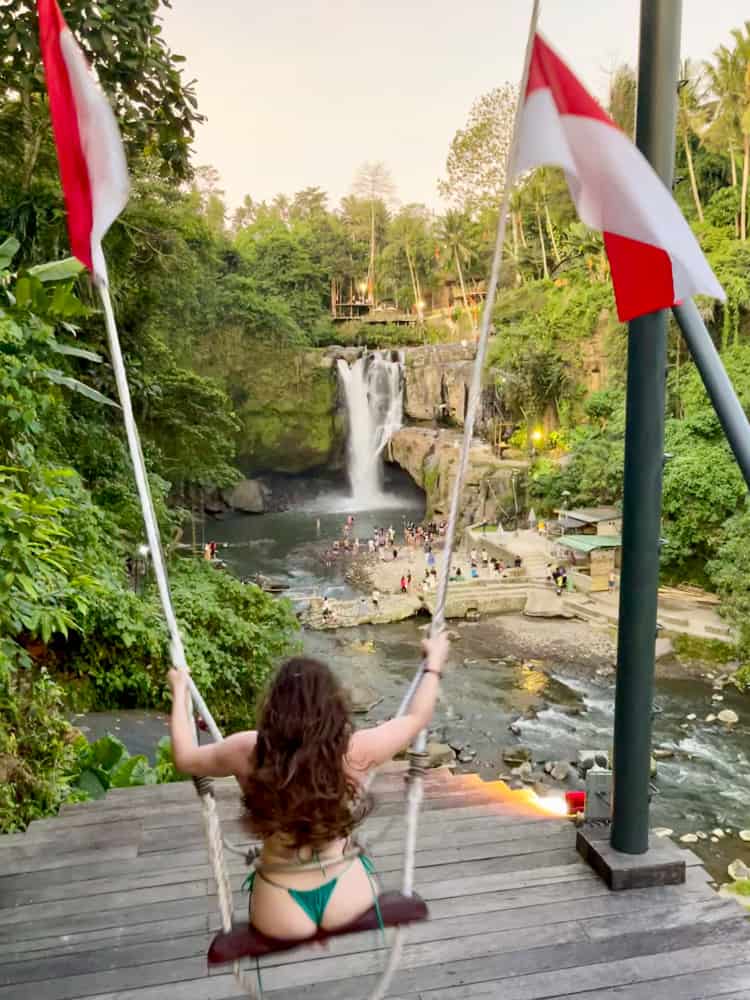
23. Don’t Get Stressed Out By Street Harassment
Walking down any street in a town or city in Bali you’ll hear “taxi? taxi? taxi? come into my shop? just looking?” over and over. and over. and over again.
It’s annoying! And honestly, tourist harassment is part of the reason I always use ride-sharing apps in Bali, because I don’t want to encourage it, but it’s just people trying to make a living. They don’t mean any harm and a quick “no thank you” usually does the trick.
24. Don’t Worry About The Honks – People Honk the Horn a Lot in Bali, But It’s Not Aggressive
Honking a car or scooter horn means something different in Indonesia than it does in America. In New York, honking at someone can be considered a big “F-You!”, but in Bali, it just means ‘hey, watch out – I’m here”.
A lot of the time drivers honk lightly when turning a corner so if anyone is driving in the opposite direction they will know another car is there. This is necessary because the streets are so narrow, so if you’re driving around tight corners remember to honk before turning!

Bali Travel Tips: Health & Safety
25. don’t drink the tap water.
You can’t drink the tap water in Bali – It’s not filtered. You can avoid Bali Belly by only drinking bottled water, or if you want to be more environmentally friendly you can invest in a travel water purifier. I have been using my GRAYL travel purifier for three years now, and it’s perfect for Bali.

26. Don’t Forget Your Bug Spray – Mosquitos Carry Dengue Fever in Bali
There are mosquito-borne illnesses in Bali, particularly Dengue Fever makes its way through the tourist population a lot. To avoid Dengue, always keep your bug spray on you. You can buy a bug spray called “Soffel” in any convenience store in Bali for around $1 – It works great, just remember to wear it every day!

27. Do Know About the Recommended Travel Vaccines Before Travel to Bali
Even if you had all your routine vaccines as a child, you’ll likely need additional travel vaccines to go to Bali. On my first trip to Indonesia, I received a Typhoid vaccine, a Tdap booster, and a Hepatitis A vaccine. Recently I was playing with a puppy on the beach and wound up having to get a rabies vaccine in Bali as well! Check the CDC guidelines and at your local travel clinic if you need any additional travel vaccines!

28. Don’t Approach Stray Animals Due to the Risk of Rabies in Bali
I know, they’re cute! But rabies is a very real problem in Indonesia and a lot of tourists have their trip cut short by being bitten by some animal or another. I recently had to seek rabies post-exposure treatment after playing with a puppy on a Bali beach, it’s not fun!

29. Don’t Be Afraid Of Dogs Barking & Following You On the Street
If you walk anywhere in Bali, especially at night, you’ll probably be charged by a dog (or 10). Every house has a dog and they’re just doing their job when they bark at passers-by. Once you leave their owner’s territory they’ll leave you alone, so it’s best to just ignore them.

30. Don’t Mess With The Monkeys – They’re Known to Randomly Bite & Attack
In Bali, there are these famous open-air animal sanctuaries called “Monkey Forests” where tourists can go and interact with the monkeys in their natural habitat. Monkeys have a tendency toward being capricious and aggressive, and there’s a specific way you’re supposed to act around them. Sometimes tourists come and they don’t know how to act around a monkey, and they wind up getting bit (which is where your travel insurance will come in handy!).

31. Do Use Scooter Taxis Instead of Driving – Most of Bali Isn’t “Learner-Friendly”
Most tourists come to Bali and think they need to rent and learn how to drive a scooter , but that’s not true! It’s much easier to just call a scooter taxi to get around. A scooter taxi is when a guy drives up on a scooter and you just hop on the back! It’s a lot safer than driving yourself because they’re professionals and know how to navigate the crazy Balinese traffic. You can call a scooter taxi from any major city in Bali through the Grab App.
Another bonus of taking a scooter taxi is that they’re incredibly cheap. If you only plan on going to one or two places per day, it’s probably more affordable to call a scooter taxi than to rent a scooter and drive yourself.

32. Don’t Forget To Wear Your Helmet, Always , When Riding A Scooter
I see foreign tourists zipping around Bali on scooters in bikinis with no helmets and barely any clothes, it’s terrifying!!! These scooters aren’t toys, and you want to be as safe as possible especially if you’re a novice rider. It’s best to always wear a helmet, jacket, long pants, and close-toed shoes on a scooter. I don’t always wear full clothing while on a scooter, but I do always wear a helmet!
If you call a scooter taxi from Grab or Gojek they’ll have a spare helmet for passengers, but sometimes you have to ask for it.

33. Don’t Forget Travel Insurance! Healthcare in Bali is Expensive
Even if it’s not required for entry, I would always recommend signing up for travel insurance for a trip to Indonesia. So much can go wrong, and it’s important to be covered. Healthcare in Bali is also pretty expensive if you go to the foreigners clinics.
I’ve been using Safety Wing Travel Health Insurance over the past three years of full-time traveling because it caters to full-time traveling digital nomads like myself, but you can also use it for vacations and short trips.
It’s one of the cheapest travel health insurance out there. You can buy a 1-month package starting at $45 and it covers most countries, whereas other brands I looked at charged over $100 for a 1-week trip. It’s just good to have peace of mind while traveling without having to think too hard!
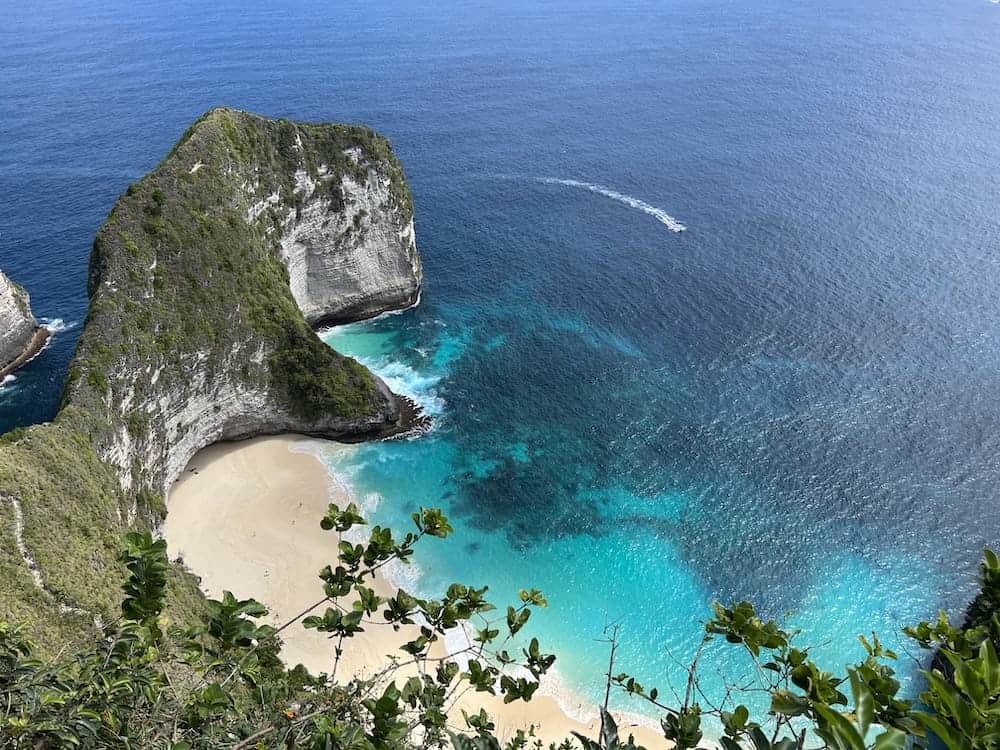
34. Don’t Drink Things With Ice If You’re Off-The-Beaten-Track
The only time I’ve ever gotten sick while traveling was from ice in a drink, and since then I’ve been very cautious. Most places know to serve tourists only filtered water, but there’s less vigilant about ice for some reason. If you’re off the beaten track at a local warung it’s best to skip the ice. Indonesians can handle the water better than foreigners can because they’re used to it.

35. Do Be Aware Of Earthquakes!
I was sitting at a cafe in Ubud while I wrote this post and all of a sudden the ground started shaking. Since the cafe shares a building with a yoga studio, at first, I thought maybe there was an intense exercise class going on but then everyone started running outside. It was an earthquake!
It only lasted 15-20 seconds and then everyone went back inside after a few minutes. Later we learned it was a magnitude 5.8 earthquake! The earthquake magnitude scale goes out of 10, so it was quite high – but not high enough to cause damage. Bali is a high-risk area for earthquakes, so just be aware while you’re visiting.

Bali Travel Tips: Housing
36. do stay in a traditional guest house at least once.
After staying in a variety of hotels, Airbnb, and homestays in Bali I was pleasantly surprised that my favorite place to stay in all of Indonesia was the traditional homestays. Usually family-run, Balinese traditional houses are located in compounds, which are homes to small communities or extended families.

💸 They’re cheaper
🙋 The hosts (In my experience) are more attentive
🍳 Free homemade breakfast
👪 Supporting small businesses directly
🏠 Traditional Balinese architecture is beautiful
🐱 There are usually a ton of animals around
For solo female travelers : I felt more safe located in a compound than in a stand-alone villa or apartment complex.

37. Don’t Stay In The Same Place For Your Whole Trip!
Bali is a pretty tiny Island, you can drive the whole length of it in less than 5 hours, but all the different cities within it have a totally different vibe. Canggu has become the digital nomad capital with lots of long-term tourists, Kuta and Seminyak are where people go surfing and partying, and Ubud is the spiritual yoga retreat center on the island.
38. Don’t Be Afraid to Stay In Hostels If You’re Solo Traveling
Hostels are the best for making friends while solo traveling! If it’s your first time staying in a hostel, don’t be worried – the ones in Bali are world-class. Some hostels in Bali are even as nice (or nicer) than hotels.

39. Do Treat Yourself To A Luxury Experience (Because It’s Cheaper to Do in Bali Than Anywhere Else)
Bali is world-renowned for its spas and luxury services. Even if you’re a budget traveler, having a luxury experience in Bali is something you shouldn’t miss out on!

Bali Travel Tips: Tourism
40. do be a respectful visitor .
While it’s okay to be a tourist, it’s not okay to disrespect the local culture. The Balinese people welcome foreigners into their temples and ceremonies from the goodness of their hearts. Since I started staying in Indonesia, I’ve been invited to two weddings, a cremation, and even a circumcision ceremony!
- Cover up in temples: For men AND women. That’s one thing I love about Balinese culture is that it’s not just the women who are expected to be modest and respectful in houses of worship. You’ll also see men be asked to tie sarongs around their waists if they show up in shorts.
- Don’t make fun of the culture: You’d think that goes without saying, but all the time you hear about tourists getting in trouble, and even banned from Indonesia, for mocking Balinese culture.
- Don’t step on the offerings: You’ll see these sacred offerings all over, usually on the floor. Just because they’re on the floor doesn’t mean you should step on them! It’s considered to be extremely disrespectful to step on the offerings.

41. Don’t Get Too Disappointed By “Instagram vs Reality”
A lot of “Influencers” in Bali make their living by selling the dream. While Bali is an amazing place, there have been a handful of times when I arrived at a popular location just to be let down! The photos online of a location completely didn’t match the reality. While that can be disappointing, don’t let it get you down! For every overhyped spot in Bali, there are three more hidden gems.
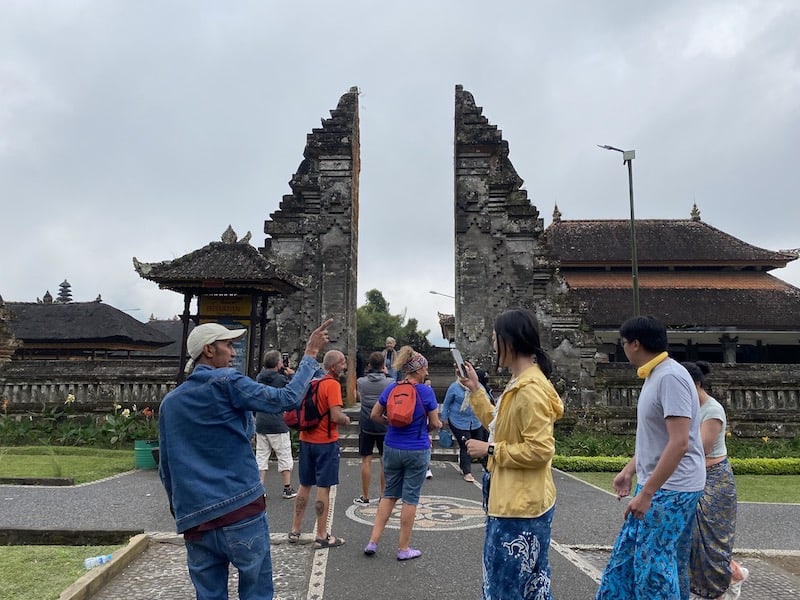
42. Do Show Up Early & Beat The Crowds
Planning on going to some amazing place you saw on Instagram? Well, so is everyone else! If you want to visit a popular tourist spot in Bali make sure to go first thing in the morning – Otherwise, your time at the attraction might be ruined by crowds.

43. Do Venture Off The Beaten Track
For every over-hyped thing in Bali, there are 10 secret gems that you can’t find on Instagram! I recommend going to Google Maps to find undiscovered spots. If you just zoom in on different locations you’re guaranteed to find a ton of waterfalls, temples, etc people don’t usually go to.
44. Don’t Go During The Rainy Season (If You Can Help It)
Bali doesn’t have Winter, Spring, Summer, and Fall as North America does. Bali only has two seasons: the rainy season, and the dry season. The rainy season is between November and March, with the best (and dryest) time to visit Bali between May and September. It’s the worst in January and February.

45. Do Venture Outside Of Bali To Other Indonesian Islands! Java, the Gilis, & the Komodo Islands +
Craving adventure? You can climb Kawah Ijen acid volcano and visit giant waterfalls like Tumpak Sewu on Bali’s neighboring island of Java. Or, if you’re more into relaxing you can swim on the white sand beaches at the Gili Islands east of Bali. There’s so much to do in Indonesia! If you have a week or more I recommend exploring other islands as well as Bali.

46. Don’t Forget – It’s Bagus!
Bagus (pronounced bag-goose) means “good” in Indonesian but it’s used in a much wider context – Bagus is cool, Bagus is peace, Bagus is fun.
How’s Bali lately? It’s Bagus 🤙.
Katie Caf, founder of Katie Caf Travel, is a seasoned travel expert who has explored over 30 countries and lived abroad in places like Egypt, Morocco, Mexico, India, Indonesia Thailand, Europe, and the USA. Her goal is to help other traveler see the world by providing first-hand accounts of what to expect on the road.
Leave a Reply Cancel reply
Your email address will not be published. Required fields are marked *
Save my name, email, and website in this browser for the next time I comment.
12 things to know before going to Bali, Indonesia
Jan 18, 2024 • 8 min read
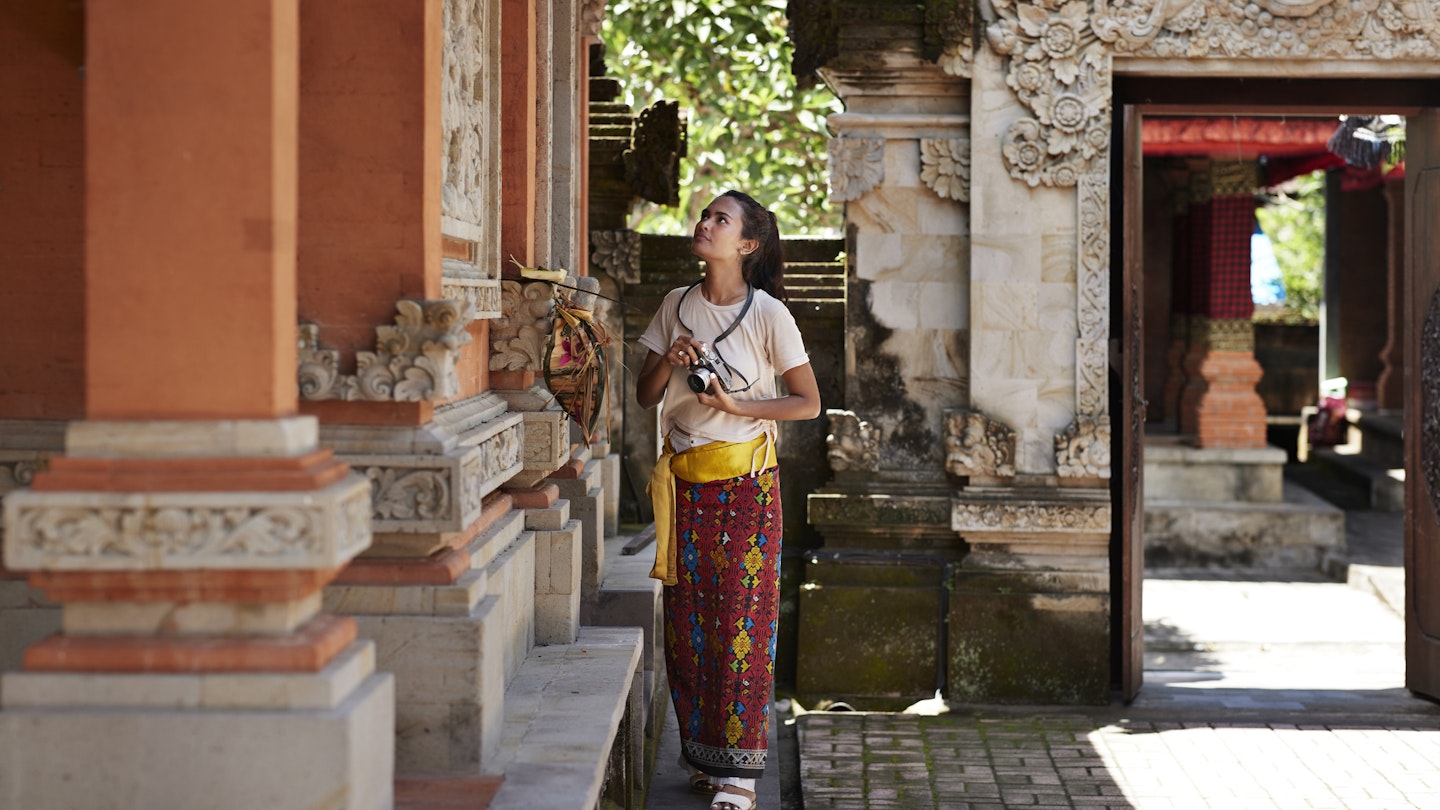
These top tips for visiting Bali can help you plan the perfect trip © Klaus Vedfelt / Getty Images
The Indonesian island of Bali is a sun-soaked paradise that attracts every type of traveler, from budget-conscious backpackers to luxury jet-setters.
But – as with any destination – the vast majority of travelers (especially first-timers) will have a number of questions, whether it's "Can unmarried couples stay together in Bali?" (an increasingly common one in the light of recently-introduced new rules for tourists in Bali, which we'll get to later) or "What should I wear?"
Thankfully, Bali is one of the easiest destinations to explore, although its size – the island covers 5776 sq km (2230 sq miles) – means travelers should take the time to think about what they want to see and do relatively early on. For example, places such as Seminyak , with its beach clubs and five-star hotels, tend to become somewhat crowded during peak season, while more rural destinations, such as Ubud , might well require a longer taxi journey but are absolutely worth the effort, especially for those keen to avoid the crowds.
It's also worth bearing in mind that Bali is one of Asia's safest destinations. As with any holiday hot spot, there are always going to be certain things we can do to ensure we stay safe while traveling, but crackdowns on petty theft and bad behavior have all helped transform the island into a wonderfully family-friendly destination .
Here are our top tips for anyone heading to Bali.

1. Check your vaccinations are up-to-date before traveling to Indonesia
There are no mandatory vaccinations for visitors to Bali (barring the need for travelers arriving from countries with a high yellow fever transmission risk to carry a yellow fever vaccination certificate), although Hepatitis A, typhoid and tetanus are often recommended. Bali falls into the "low to no risk" category when it comes to malaria.
Rabies remains a big problem in Indonesia, and although it claims fewer lives in Bali than elsewhere (according to the World Health Organization, 11 people died from rabies in the first half of 2023), it still exists, and the rabies vaccination is worth considering. Working out what vaccinations you need for a holiday to Bali is mostly a personal choice, but if you have concerns, contact your local physician for the latest guidance.
2. Bring a reusable bottle
One of the most asked questions by tourists: "Is Bali's tap water safe to drink?" The short answer is "no." Stick to bottled water or, better still, bring a bottle with a built-in water filtering membrane. Purchasing bottled water – especially in restaurants – can quickly become expensive, which is another reason we're fans of reusable filtered ones, such as Larq and Lifestraw. These are also handy when it comes to purifying water used for cleaning fruits and vegetables. Additionally, try to steer clear of ice and use bottled water to brush your teeth.

3. Don't write off the rainy season
Having a rough idea of when dry and rainy seasons fall is undoubtedly something that is useful to know before heading to Indonesia . But bear with us – Bali's rainy season, which takes place between October and April, is a great time to visit. It's typified by short, sharp showers that often only last a few minutes. And in addition to the fact that prices for everything – from regional airfares to hotels – plummet, the island becomes wonderfully lush, the weather is still warm (typically hovering between 24°C/75°F and 29°C/85°F), and the main tourist attractions are blissfully crowd-free. You'll also find it easier to snap up places on excursions, such as snorkeling tours and guided hikes.
4. Buy some bug spray
To be clear, Bali doesn't have a major mosquito problem, but like anywhere in Southeast Asia, these pesky biting bugs love the occasional bloodsucking session – in the case of Bali, particularly during the rainy season between November and April. Lighten the load on your wallet by purchasing your repellent in Bali and opting for bug sprays made in Asia. Popular (and much cheaper) Asian brands you'll find throughout Indonesia include Soffell (snap up the surprisingly pleasant floral-scented version if you can).
5. Avoid traveling during peak times
Traffic in Bali can be horrendous – especially around busier spots such as Denpasar and Kuta – and estimated journey times on apps like Google Maps or Grab are notoriously unreliable. Peak times tend to be 6am to 8am (but roads often remain busy until 10am when day-trippers head out) and 4pm to 7pm. Allow plenty of time to get from A to B, especially when heading to the airport.
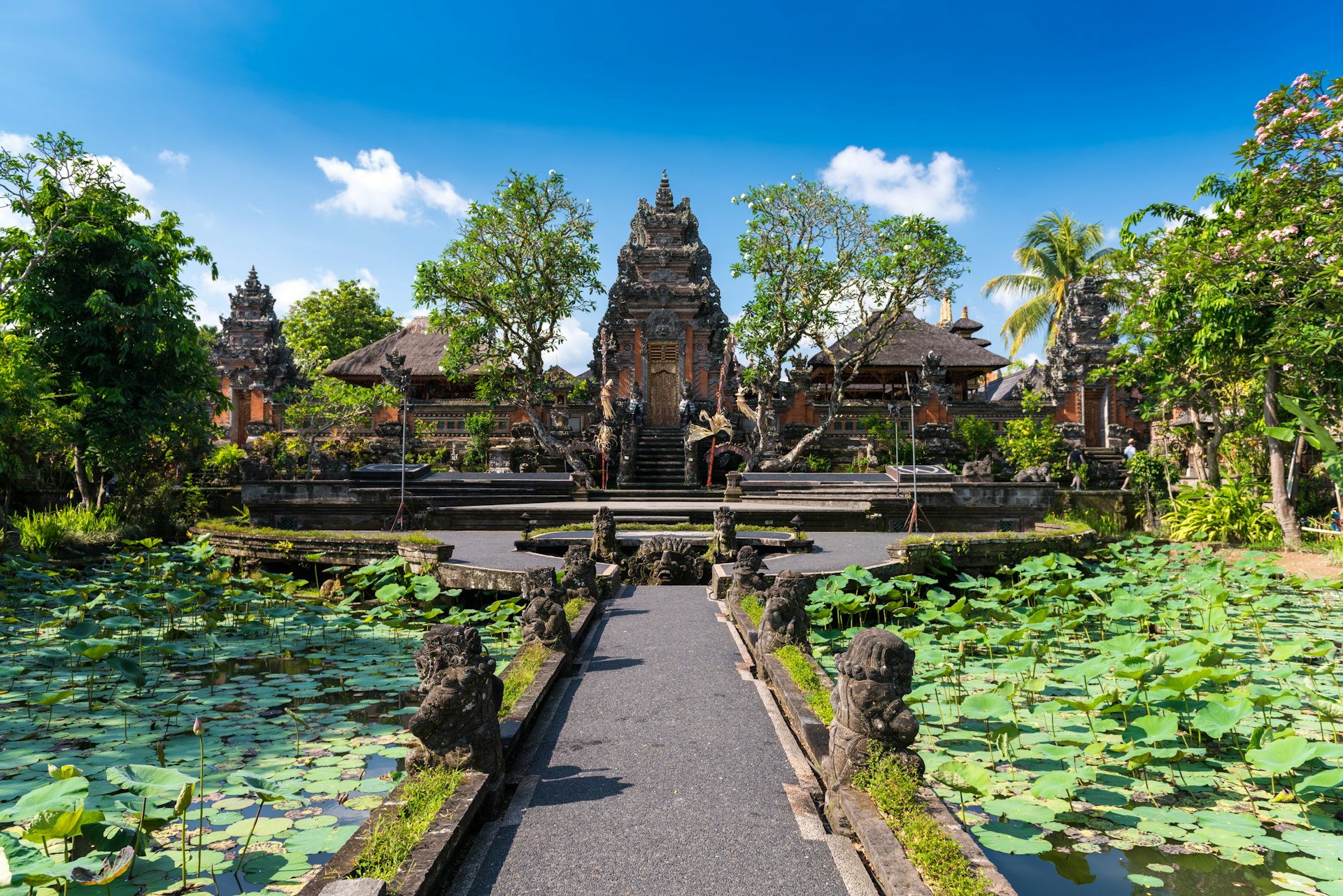
6. Pack clothes that will cover you up for when you're not on the beach
In Bali, skimpy swimwear is fine for the beach, but definitely not for trips to a supermarket or restaurant.
Men and women need to ensure their shoulders and upper legs are covered when visiting religious sites, although most of these places will have sarongs for visitors to borrow. Pack like a pro by taking a light cotton scarf that can double as a sarong if you visit a temple or other religious site, and a pair of light cotton trousers (bonus points if they've got a built-in mosquito repellent), which will protect you from bites while also providing enough coverage at sites where tiny denim shorts or a vest just won't cut it.
7. Behave respectfully
Various media reports might give the impression it's easy to get into trouble in Bali, but it's not. In reality, you just need to be sensible: don't do drugs (being caught with under a gram of cannabis will land you in prison), be respectful and dress appropriately at religious sites, don't ride a motorbike or moped without a helmet (Bali's police have recently started cracking down especially hard on foreign moped drivers), and treat locals with respect.
8. Locals will be keen to share their knowledge with you
Staying at a hotel with a concierge or a friendly receptionist? Feel free to grill them about the best local bar, beach or restaurant. The Balinese are incredibly proud of their island – don't be surprised if the bartender at your favorite beach bar ends up inviting you to their home for dinner with their family – and love nothing more than telling visitors about their favorite beach, nature walk or temple.

9. Eat, drink, stay and shop locally
Don't be afraid to go local, whether this means eating at tiny family-run restaurants or opting for local drink brands. You'll pay less and enjoy delicious local dishes, and you'll be contributing directly to the local economy, too. These days, even the smallest restaurants, bars and independent hotels will be listed on online review sites such as Zomato (especially popular in Asia), and a quick glance should tell you whether the business in question is reputable or not.
10. Carry some loose change
Many businesses in Bali will take payment by card, but there are still plenty of places that only take cash. These include temples, smaller souvenir shops and beachfront masseuses (which, by the way, offer some of the best massages going). ATMs on the island can be unreliable and are also few and far between in some areas. Additionally, don't assume you'll always have the mobile data you'll need to book a ride-share taxi. If you need to hail a tuk-tuk or taxi from the side of the road, it's highly likely you'll need to pay in cash.
When using ATMs, opt for ones connected with major banks (in Indonesia, these include BNI, Bank Mandiri, BCA and CIMB Niaga) to avoid withdrawal fees and remember that Indonesian ATMs issue the cash first, so don't forget to wait for your card to appear.
11. Get around by moped (but always wear a helmet)
Mopeds are the cheapest way to get around Bali and often – especially during rush hour in places such as Kuta – the quickest, too. They're also offered as a mode of transport by Grab and Gojek (Bali's most popular ride-sharing apps), and prices for journeys via mopeds are significantly cheaper than those made by car. Just remember to check the reviews of your chosen driver and always wear a helmet (the driver will typically provide one). Avoid hailing scooter taxis on the street – you won't be able to check their credentials, and, in reality, Grab and Gojek have so many scooter drivers (both identifiable for their bright green jackets) that there's simply no need.
12. There is a no-sex-before-marriage law
In December 2022, the Indonesian government brought in a new law that forbids sex outside of marriage. Technically, this law applies to visitors as well as locals.
At the time, it was announced that the legislation won't be introduced until late 2025. Since then, Bali's governor has said that the law – dubbed by some newspapers as the "Bali bonk ban"– won't apply to tourists and, additionally, guilty parties can only be reported by spouses, parents or children. In summary, the law represents a worrying development for human rights in Indonesia, but it's not one that is likely to affect tourists.
This article was first published May 30, 2019 and updated Jan 18, 2024.
Explore related stories
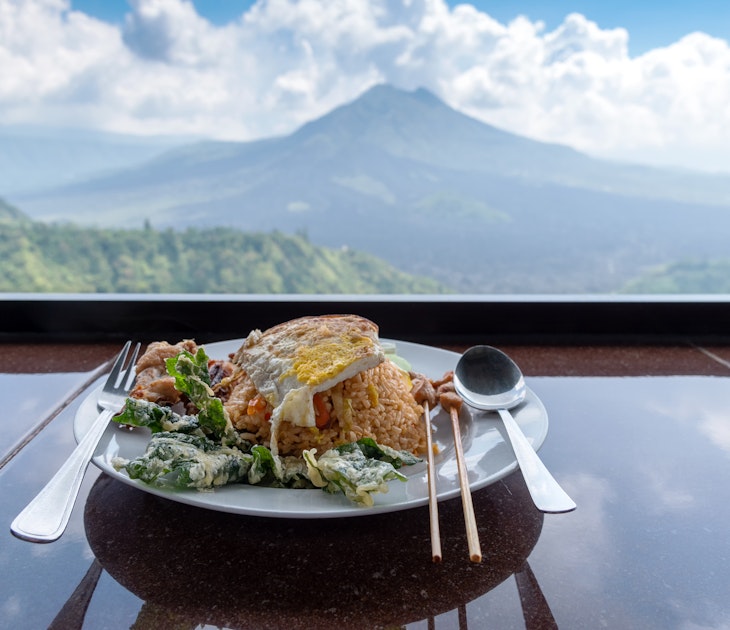
Tips & Advice
Apr 29, 2024 • 6 min read
Explore Indonesia’s diverse culinary landscape across the world's largest island nation, from satay to the globally renowned beef rendang.

Apr 22, 2024 • 6 min read

Apr 21, 2024 • 6 min read

Apr 18, 2024 • 5 min read

Jan 17, 2024 • 6 min read

Jan 2, 2024 • 8 min read

Dec 7, 2023 • 10 min read

Dec 2, 2023 • 7 min read

Nov 28, 2023 • 5 min read
Bali dream vacations on hold for Americans as island reopens to international travel
DENPASAR, Indonesia — The Indonesian resort island of Bali reopened for international travelers to visit its shops and white-sand beaches for the first time in more than a year Thursday — if they're vaccinated, test negative, hail from certain countries besides the U.S., quarantine and heed restrictions in public.
However, foreign visitors may be slow to arrive. No international flights to Bali were scheduled on the first day of the reopening and a tourism official forecast travel would pick up in November.
Bali’s airport will welcome new foreign arrivals from 19 countries that meet World Health Organization’s criteria such as having their COVID-19 cases under control, Luhut Binsar Pandjaitan, the government minister who leads the COVID-19 response in Java and Bali, said in a statement late Wednesday.
►Thailand travel: Quarantine requirements to end for fully vaccinated American tourists
►Come explore with us: Subscribe to USA TODAY's Travel newsletter
Learn more: Best travel insurance
Those countries are Saudi Arabia, United Arab Emirates, New Zealand, Kuwait, Bahrain, Qatar, China, India, Japan, South Korea, Liechtenstein, Italy, France, Portugal, Spain, Sweden, Poland, Hungary and Norway.
Pandjaitan said all international flight passengers must have proof they’ve been vaccinated two times, test negative for the coronavirus upon arrival in Bali and undergo a 5-day quarantine at designated hotels at their own expense. They'll also have to follow stringent rules at hotels, in restaurants and on beaches.
“We have to do this with caution because we need to stay alert,” Pandjaitan said.
President Joko Widodo credited Bali’s high vaccination rate for the decision to reopen. The country’s COVID-19 caseload has also declined considerably; Indonesia has had around 1,000 cases a day in the past week after peaking around 56,000 daily in July. The country has confirmed more than 4.2 million cases and 142,811 deaths from COVID-19, the most in Southeast Asia, over the course of the pandemic.
Tourism is the main source of income on the idyllic “island of the gods” that is home to more than 4 million people, who are mainly Hindu in the mostly Muslim archipelago nation. Bali's tourist areas were deserted two decades ago after visitors were scared off by deadly terror attacks that targeted foreigners, but the island has worked to overcome that image.
More than 6 million foreigners arrived in Bali each year prior to the pandemic.
Foreign tourist arrivals dropped six-fold from 6.2 million in 2019 to only 1 million in 2020, while 92,000 people employed in tourism lost their jobs and the average room occupancy rate of classified hotels in Bali was below 20%. Statistics Indonesia data showed the island’s economy contracted 9.31% year-on-year last year.
After closing the island to all visitors early in the pandemic, Bali reopened to Indonesians from other parts of the country in the middle of last year. That helped the island’s gross domestic product grow a modest 2.83% in the second quarter this year, ending five consecutive quarters of contraction.
The July surge, fueled by the delta variant, again totally emptied the island's normally bustling beaches and streets. Authorities restricted public activities, closed the airport and shuttered all shops, bars, sit-down restaurants, tourist attraction spots and many other places on the island. It reopened to domestic travelers in August.
►From Belize to Brazil: Travel restrictions across Central and South America due to COVID-19
Sang Putu Wibawa, the general manager at Bali’s Tandjung Sari Hotel, said only two of its 40 rooms were occupied on average and he hoped the reopening would help the occupancy rate back to normal.
“We have been waiting for this moment for so long,” he said. “This outbreak has hammered the local economy ... we are very excited to welcome foreign guests by observing health protocols.”
Widodo said deciding to reopen Bali was based on its high vaccination rate as well as wanting to revive its economy. He said more than 80% of the Bali population has been fully vaccinated.
“Based on this situation, I am optimistic and we have decided to reopen international flights to Bali,” Widodo wrote in his official Instagram on Saturday.
The tight timing is one reason tourists were not immediately arriving, said Putu Astawa, head of the Bali Tourism Office
Airlines need time to schedule flights to Bali, while tourists need time to arrange travel documents such as tickets, insurance and virus tests as well as their five-day quarantine accommodations.
He predicted new visitors would start coming in early November.
Accessibility Links

Can I travel to Bali? The entry requirements explained
Here’s what you need to know about travelling to bali, from pre-departure testing and visas to mask-wearing requirements.

B ali, the ever-popular Indonesian holiday island in the Java Sea, has long attracted visitors who come to marvel at its crumbly temples, hippy villages and black-sand beaches (emblazoned with cracking sunsets). The island’s reliance on international tourism has made for a challenging two years — it’s been largely closed to outside visitors since the pandemic began in March 2020. Just 45 international tourists arrived between January to October 2021 — a far cry from the nine million who landed on its shores in 2019.
In March 2022, it reopened to international tourism as part of a pilot scheme to welcome visitors back.
Here’s everything you need to know about entry requirements, pre-departure testing and regulations on the ground in Indonesia.
Main photo: Mount Agung on Bali and fishing boats, Gili Isles, Indonesia (Alamy)
What are Bali’s entry requirements?
British visitors can enter Bali without quarantine or applying for a visa in advance if they’re fully vaccinated, with the last dose being administered more than 14 days prior.
Advertisement
A visa will be issued on arrival at a cost of IDR 500,000 (around £30) which is valid for 30 days (although there is the option of extending the visa for an extra fee) — visitors applying for this via a mobile app will have to show proof of vaccination.
Arriving passengers aged 18 and over must be fully vaccinated to enter (two doses); or in the case of only one jab, have a Covid recovery certificate. It’s advisable to have a booster jab if you intend to travel domestically, or you may be asked for a negative Covid test result.
They will also have a temperature check on arrival, and if showing symptoms of Covid, undertake a PCR test.

Can I travel to Bali unvaccinated?
Yes, if you have proof of a medical exemption. Otherwise, unvaccinated visitors will have to take a PCR test on arrival and quarantine for five days, with a second negative PCR result needed to exit isolation.
What are the restrictions when there?
Masks should be worn inside. Travellers can expect strict Covid protocols such as temperature checks and sanitising stations at hotels.
Get inspired
• Bali travel guide • Best hotels in Bali • Best villas in Bali
Take me there
Inspired to book a Bali trip? Find the best options with Tui and Virgin Holidays .
Sign up for the Times Travel Newsletter here .
We’re sorry, this site is currently experiencing technical difficulties. Please try again in a few moments. Exception: request blocked

- 2 Weeks for Couple
- 2 Weeks for Family
- Thailand Lantern Festival
- Indonesia(Bali)
- South Korea
- China (HK, Taiwan)
- Itinerary Ideas
- Asia Highlights Travel Reviews
- Thailand Travel Reviews
- Vietnam Travel Reviews
- Cambodia Travel Reviews
- Japan Travel Reviews
- Myanmar Travel Reviews
- China Travel Reviews

How to Plan a Trip to Bali
If you are looking for a dream holiday destination, then Bali meets most people's expectations. From various luxury beach villas with infinity pools, rainforest hotels, and one-eighty cliff-clubs and bars, to the numerous beautiful beaches, rice-terraced fields, and top-class restaurants and food, Bali can fulfill all your holiday dreams.
Bali is also a favorite place for all kinds of water sports, including swimming, diving, surfing, snorkeling, and dolphin watching. As a sacred place of yoga and meditation, which draws people to experience it, Balinese culture was impacted greatly by Hinduism.
The below travel information will help you plan your dream trip to Bali.
Bali's Travel Policy and Restrictions
Entry policy: International travelers can visit Bali and the rest of Indonesia now, and most travel restrictions have been lifted. Travelers who are fully vaccinated do not need to undergo quarantine and can enter Indonesia without a PCR test before and upon arrival. Read more about Bali travel restrictions.
Visa policy: Nationals of many countries can obtain a visa on arrival (VOA), including Australia, New Zealand, Canada, the United Kingdom, and the United States .
Best Times to Visit Bali
Bali can be visited all year round. The weather of Bali can be divided into two seasons: wet season and dry season . The ideal time to visit Bali during the dry season, which is from April to October . July and August are the busiest times in Bali. So, if you don't want to join the crowds, just avoid these two months.
The dry season (high season): April to October, with less rainfall, is the best season for surfing, diving, snorkeling, mountain hiking, and bike riding. During this half of the year, there are many local festivals, which are good times to enjoy cultural activities. For example, the Bali Art Festival, held from mid-June to mid-July, is very attractive to visitors.
The wet season (off-season): November to March is the rainy season. Although there is much rainfall, humid air and many mosquitoes, most activities can be carried out except for the volcano hiking. As most of these five months are the off-season for tourism, flight and hotel prices are relatively cheap, and the price of tour products and activities is also be discounted. It is a good time to save money.
During the Christmas and New Year holidays and Chinese New Year, the number of visitors rises sharply. Hotel rooms are easily fully-booked in these two periods, and reservations need to be made 1–3 months in advance.
Read more about best time to Bali . With Asia Highlights, you enjoy no-risk booking, 100% refund policy! (up to 14 days before departure)
Best Places to Visit in Bali
With over 5,000 square kilometers (over 2,000 square miles), there are many places you can visit in Bali. In general, tourism in Bali can be divided into three regions: southern , northern/eastern , and central .
- The northern and eastern parts are good for mountain climbing, hiking, volcano adventures, and diving.
- Central Bali is well-known for its village scenery, terraced rice fields, arts, and cultural towns.
- Southern Bali has the best places for beach time, sunbathing, surfing, and various water sports.
You can choose which region to visit based on your interests.
Southern Bali (Nusa Duo, Kuta, Seminyak, Canggu)
The south of Bali is the top destination area for most visitors. It has charming sea views and plentiful water activities.
Nosa (Nusa) Dua — Honeymoons, Family/Kids-Friendly, Golf Courses
Located on Bali's southern shores, Nusa Dua is well known for its many kinds of beach resorts and clean white sand. There is an 18-hole golf course at Nusa Dua. Compared to other beaches of Bali, Nusa Dua is much quieter and safer for families with kids. The beach has less small coral and less gravel, which makes it a good spot for paddling, bare foot fun, and running.
Another top attraction in Nusa Dua is Pura Gegar temple. This Balinese temple is located on a cliff, and you need to walk up a small path to get to the temple. The temple is surrounded by trunk trees and it is a fantastic view point for overlooking the sea.
Spend a half day to go Shopping at Bali Collections. There are various souvenirs shops at Bali Collections, where you can buy all kinds of local arts and crafts at reasonable prices.
For honeymoon travelers, we recommend you have high tea at St. Regis. It is a gift to yourselves. Having some high afternoon tea and finger food, cakes, and dainty sandwiches in a top-class restaurant in Bali's most famous high-end resort can be a really romantic memory-making treat.
Seminyak — Beautiful Beach Sunsets, Luxury Resorts
Located on Bali's southern coast, Seminyak is well-known for its beautiful beaches, delicious food, and luxury resorts and villas. The night life of Seminyak is well-known, as there are many high-end clubs, bars, restaurants, and shopping malls. The beach sunset there attracts many photography lovers.
Learning how to surf from Seminyak or Double Six Beach is a rewarding experience. The inviting waves there make it a good spot to learn surfing. Join a class to become a surfer.
Joining a cooking class is another popular activity in Seminyak. Try to make Balinese favorites like satay, gado gado salad, and spicy salads with the local chef. It will be an unforgettable experience on your Bali trip.
To learn more about Indonesian culture and history in Seminyak, you can explore the Palace and Museum, including Puri Agung (the Palace of Amlapura), Budakling Village, Tirta Gangga Royal Water Palace, and Lontar Museum.
Bukit Peninsula (Uluwatu) — Snorkeling, Surfing, Rock formations
Located at the southernmost point of Bali, Bukit Peninsula is also known as Uluwatu, which is actually only part of the Bukit Peninsula. It is well-known for its world-class surf breaks and white sand beaches. On the beach of Uluwatu, you can see a stunning beach with unrivalled views over the Indian Ocean.
Uluwatu is also a good place for surfing and snorkeling lovers. At high tide, the waves can reach heights of 5–8 meters, which offers great conditions for professional surfing. The dramatic cliffs that plunge into the crystal blue waters make it a good place for snorkeling and swimming.
Discover real reviews of Highlights Travel Family 's best-rated service across trusted platforms.
Canggu — Surfing, Sea Temple, natural scenery
Canggu used to be a fisherman village, and now it has become one of the most popular destinations in Bali. The laid-back town is surrounded by green rice fields. The picturesque views, various activities, and peaceful vibes are the highlights of Canggu. People come to Canggu for surfing, hiking the active volcano, enjoying the beautiful sunset, and tasting delicious food. Its easy-to-surf waves, and cheaper accommodation prices attract numerous backpackers.
Another must-visit attraction in Canggu is the Pura Tanah Lot Sea Temple. Built on a rocky islet and surrounded by crashing waves, the sea temple looks awesome with its spectacular seaside setting, especially at sunset. It is a one of the most sacred of all the island's sea temples for the Balinese people.
Central Bali (Ubud)
The top-visited region in central Bali is Ubud. There is a saying that those who don't visit Ubud are not really visiting Bali.
Ubud Town Area — Natural Scenery, Culture, History, and Art
Located in the center of Bali Island, Ubud is rich in natural resources and unique culture. The famous film Eat, Pray, Love was set near the rice terraces outside the Ubud Town. Besides the natural scenery, Ubud is also well known for its historical temples, ancient buildings, traditional local dancing, and hand-made arts and crafts.
Spend some hours to explore Sukarno Museum and the Pakerisan River Area to learn more about local culture and historical sites, where three ancient temples and monuments are located. The monuments and temples were recently listed as a World Heritage site.
Visit a Brahman in the house of the pedanda (high priest), where you will see how a large gebogan (flower, fruit, and cake offering) is carried to the temple to be blessed. The ancient village of Mas was a former royal residence. The rice terraced fields around the village are the top must-visit attraction in Ubud. Try to walk the small roads along the paddy fields and experience the quiet life there.
Spend half a day to explore Monkey Forest if you are traveling with kids. It is a funny activity to "explore" using paved pathways through the thick forests of giant banyan and other jungle trees.
The Ubud market is also a must-visit if you are traveling to Bali for the first time. There you can buy leather goods, clothes, handicrafts, musical instruments, local fruits, and many other souvenirs at reasonable prices.
Northern and Eastern Bali
Northern and eastern Bali are well-known for their rich natural attractions including hiking and volcano exploring. The Agung Volcano, the highest peak of Bali Island in the east, and the Jingdamani Volcano in the north are the favorite places for mountaineers who love adventure and excitement.
The most famous beach in the north of Bali is Lovina Beach, where you can have the opportunity to see rare wild dolphins.
How Long to Stay in Bali?
Different people may have different travel durations in Bali. It really depends on your travel budget, your interests, and your vacation time.
For most tourists coming to Bali, 5–8 days is a good length of stay to visit the highlights of Bali. For honeymoon tourists, such a trip deserves more days to enjoy the relaxed and romantic activities in Bali, which typically need 10–15 days. The following are some of the most popular tour arrangements.
5–8 days: Ubud (3–4 days), Seminyak (2–3 days):
Ubud: 3 days.
- Day 1: Explore the town and Monkey Forest
- Day 2: Trek through the Tegallalang Rice Terraces and visit Tirta Empul Temple
- Day 3: Join a cooking class and wander the Ubud markets
Seminyak: 2 Days
- Day 1: Enjoy beach time and learn how to surf at Seminyak or Double Six Beach
- Day 2: Explore the palaces and museums, including Puri Agung (the Palace of Amlapura), Budakling Village, Tirta Gangga Royal Water Palace, Lontar Museum.
Uluwatu: 2 Days
- Day 1: Enjoy beach time on Uluwatu Beach and watch a sunset at Uluwatu Temple.
- Day 2: Surf or snorkel, then join in the Sunday Party at Single Fin.
Canggu: 2 Days
- Day 1: Relax on the beach and enjoy the nightlife at Old's Man, the main bar in Canggu.
- Day 2: Visit the Pura Tanah Lot Sea Temple
9–14 Days: Ubud (3–4 days), Seminyak (2–3 days), Uluwatu (3-4 days)
Southeast Asia Tour Including Bali
If you are visiting Southeast Asia for the first time, we recommend you cover some of the top destinations in Southeast Asia. 90% of our clients prefer 2 to 3 weeks for their first Southeast Asia trip. The most popular tour itineraries usually include Thailand (Bangkok, Chiang Mai, Phuket / Koh Samui), Vietnam, and Maynmar. Get some inspiration from our 15-Day Myanmar, Thailand and Bali Honeymoon Tour to Create Memories Together in the Best Honeymoon Destinations
For a trip of 20–30 days, you can enjoy an in-depth tour of the whole peninsula area (Thailand, Vietnam, Cambodia, Myanmar, and Laos). Check our 28-Day Grand Indochina Tour for more info.
The above sample itineraries are just for your information. You are welcomed to contact your own experienced 1:1 tour consultant for a tailor-made itinerary .
How to Get to and around Bali
Getting to bali.
The most popular way to get to Bali is by flight. There is only one airport in Bali: Denpasar International Airport, which is also called Ngurah Rai International Airport.
Travelers from the USA are suggested to go Bangkok, Hong Kong, or Doha as stopover places before flying to Bali. It takes about 20–23 hours from NY or LA.
There are no direct flights operating between Bali and the main cities in Europe. Travelers from Europe are suggested to go to Singapore, Dubai, or Kuala Lumpur as stopover places before flying to Bali. For travelers from Australia, there are directs flights from Perth, Melbourne, and Sydney, which take about 3, 6, and 6 hours respectively.
Getting around Bali
Hiring a Private Car and Guide
There is not much public transport on Bali's islands. Local people rely on their scooters to travel around the island. If you are looking to have a comfortable travel experience, you'd better hire a private car, driver, and guide, who can give you the best travel advice in Bali. Contact us to arrange a private car service in Bali.
Hiring a taxi is the most expensive way to get around Bali. Blue Birds Taxis is the main taxi company in Bali.
By Renting a Scooter
If you are good at scooter riding and don't have too much luggage, then riding a scooter can be another option. It costs about 4–6 USD to rent a scooter per day. You can drive the scooter to the place you like in Bali.
Travel Costs for Bali
For most Western visitors, Bali is an affordable and reasonably-priced travel destination, typical of Southeast Asia. The travel costs in Bali greatly depend on personal preferences.
Bali offers everything from low priced homestays to luxury resorts, cheap street food to top-class restaurants. And many beaches and attractions are free to visit in Bali.
For tight budget or backpackers, 25–30 USD per day is a good amount to stay in a hostel, eat local street food, and travel by taxi or rent a scooter.
If you are planning to stay in an air-conditioned private room of a guesthouse, a cheap villa or hotel, and enjoy meals at sit-down Western restaurants, you need to spend 60–100 USD per day. On this budget, you can hire a private car or take a taxi to get around.
If you are going to spend over 100 USD per day, you can stay in hotels, nice resorts, and villas. Bali has some of the most luxurious hotels in the world. You can enjoy most of the top-class activities and services on the island with this budget.
Tour activity costs in Bali range from 10–20 USD. Entry tickets to temples or other historical sites range from 1–5 USD. A yoga class will cost you about 6–10 USD and cooking class will cost about 20 USD. Hiking on Mount Batur will cost about 20 USD.
Travel with Asia Highlights
As one of the leading tour companies in Asia, we have been providing travel services for more than 20 years to thousands of satisfied customers. Let us know your requirements and interests for a tailor-made a tour in Bali to fulfill your holiday dreams. Contact us now.
Why Asia Highlights (10,000+ reviews & 98.8% 5-star rating)
- Save Your Time:
- Less research, more enjoyment!
- Real-time 1V1 expert planning
- Maximize Your Flexibility:
- Personal local guide and ride
- Explore at your own pace
- Celebrate Your Journeys:
- Specially-crafted family adventures
- Celebrate milestones with style!
Get Inspired with Some Popular Itineraries
At Asia Highlights, we create your kind of journey — your dates, your destinations, at your pace. You can have any trip tailor made for your travel.
More Travel Ideas and Inspiration
Sign up to our newsletter.
Be the first to receive exciting updates, exclusive promotions, and valuable travel tips from our team of experts.
Why Asia Highlights
Where can we take you today.
- Middle East
- African Safari
- Travel Agents
- Loyalty Program
- Our Differences
- Privacy Policy
Address: Building 6, Chuangyi Business Park, 70 Qilidian Road, Guilin, Guangxi, 541004, China
Bali Safety: Am I Safe to Travel to Bali, Indonesia in 2024?
Bali, known as the Island of the Gods, offers lush landscapes, vibrant culture, and stunning beaches. Wondering if Bali is safe? A common traveler concern.

The short answer is yes, Bali is generally safe for tourists. However, like any popular tourist destination, it has its share of safety concerns and challenges. Knowing what to expect and how to navigate these can make all the difference in enjoying your Bali adventure worry-free. Let's dive into what makes Bali a safe destination and the tips you need to stay secure.
Key Takeaways
- Bali is Safe but Stay Cautious: While Bali is generally safe for tourists, awareness and precautions are essential due to petty crime, natural hazards, and health risks.
- Secure Your Belongings: Petty thefts, such as pickpocketing and bag snatching, are common in crowded areas. Keeping valuables secure and avoiding displays of wealth can mitigate risks.
- Natural and Health Risks: Be aware of natural hazards like volcanic activity and earthquakes. Protect against mosquito-borne diseases and follow COVID-19 health guidelines.
- Stay Informed: Regularly check local news and travel advisories, especially concerning natural disasters or health warnings, to make informed decisions during your stay.
- Respect Local Customs: Understanding and respecting Bali's cultural practices, especially in religious settings, ensures a harmonious and enriching experience.
- Prioritize Health Safety: Use insect repellent and adhere to health precautions to prevent diseases like Dengue fever and follow COVID-19 protocols to ensure well-being.
Safety in Bali: What You Need to Know
When plotting your Bali itinerary, safety surely ranks high on your priority list. Bali is largely safe for tourists , but like any popular destination, it has its share of petty crime and safety concerns. Being informed is your first step toward a hassle-free holiday.
Petty Crime in Bali
Theft is the most common issue tourists might face in Bali, particularly incidents of pickpocketing in crowded places and snatch-and-grab thefts on the street. Important to note is that the risk increases at night , especially on less populated beaches or streets. Here are some tips to mitigate these risks:
- Always keep your belongings secure and within sight.
- Avoid flashy jewelry or displaying large amounts of cash.
- Use ATMs in secure locations, preferably inside banks or shopping centers.
Natural Hazards
Bali's natural beauty comes with its own set of challenges, including occasional natural disasters like volcanic eruptions and earthquakes. The Mount Agung volcano has shown activity in recent years, leading to temporary closures of the Bali Airport and evacuation orders in proximate areas. Stay updated with local news and adhere to any travel advisories issued by your home country.
Health Risks
Mosquito-borne diseases, such as dengue fever, are prevalent in Bali. It's crucial to use insect repellent and wear long-sleeved clothing, especially after dusk. The COVID-19 pandemic has also led to enhanced health and safety guidelines across the island. Ensure you're familiar with and follow the latest health protocols to safeguard your well-being.
Bali's allure is undeniable, and with the right precautions, you can explore this paradisiacal island with peace of mind. Staying informed about safety and health risks empowers you to navigate Bali's wonders safely.
Understanding the Safety Landscape of Bali
When planning your trip to Bali, it's crucial to take a deep dive into the safety aspects that might affect your visit. Bali, a jewel among Indonesia's thousands of islands, is generally safe for tourists. However, like any popular destination, it has its share of safety concerns that you should be aware of.
Petty Crime in Bali is not uncommon, prompting you to be vigilant, especially in crowded spaces like markets, beaches, and nightlife areas. Incidents of pickpocketing, bag snatching, and scams are reported more frequently than violent crimes. The key to avoiding such unpleasant experiences lies in staying cautious and keeping your belongings secure at all times.
The natural beauty of Bali comes with its own set of Natural Hazards . The island is located on the "Ring of Fire," making it susceptible to volcanic activities and earthquakes. Mount Agung , an active volcano, has had eruptions affecting flights and local activities. Staying informed through local news and adhering to safety advisories during such events is non-negotiable.
Your health and well-being are paramount. Bali's tropical climate is conducive to mosquito-borne diseases such as Dengue Fever , which has been reported throughout the year. Protecting yourself against mosquito bites and staying updated on the latest COVID-19 regulations will ensure a healthy stay.
Embracing these safety tips and insights into Bali's safety landscape can significantly enhance your travel experience. Remember, being informed and prepared is your best defense against any potential risks. Whether it's securing your valuables, respecting natural warnings, or protecting your health, your proactive measures are key to enjoying Bali's enchanting beauty to the fullest.
Tips for Staying Safe in Bali
When planning your dream vacation to Bali, safety should always be a top priority. The island is generally safe, yet like any popular tourist destination, it has its own set of challenges. Following these tips can help ensure your trip is as safe and enjoyable as possible.
Stay Informed About the Local Situation
Keeping abreast of local news and alerts can be priceless. Bali has faced natural disasters, including volcanic eruptions and earthquakes. The Regional Disaster Management Agency (BPBD) regularly updates information on such events. For instance, the 2018 eruption of Mount Agung prompted evacuations and flight cancellations. By staying informed, you can avoid areas of risk and make timely decisions.
Secure Your Valuables
Petty theft, including pickpocketing and bag snatching, is reported, especially in crowded areas like Kuta and Seminyak. Investing in a good quality, theft-proof backpack or purse can save you a lot of trouble. Remember, out of sight, out of mind.
Prioritize Your Health
Health concerns, particularly mosquito-borne diseases like Dengue fever, are prevalent. Using insect repellent and wearing long-sleeved clothing during dusk and dawn can significantly reduce your risk. Additionally, the global pandemic has underscored the importance of health precautions. Adhere to local COVID-19 guidelines and consider travel insurance that covers medical emergencies.
Travel With Respect
Understanding and respecting local customs and laws can go a long way in ensuring a harmonious trip. Bali's traditions are deeply rooted in the Hindu religion, and being mindful of religious practices, dressing modestly when visiting temples, and not disturbing sacred rituals will earn you respect in return.
By keeping these tips in mind, you're not just ensuring your safety; you're also paving the way for a richer, more enjoyable Bali experience. Stay safe, stay informed, and most importantly, enjoy the incredible beauty and culture Bali has to offer.
Common Safety Concerns for Tourists in Bali
When you're planning a trip to Bali, being aware of the common safety concerns is key to ensuring a smooth and enjoyable experience. Bali is a stunning destination, known for its vibrant culture, breathtaking landscapes, and warm hospitality. However, like any popular tourist spot, it has its own set of challenges that you should be prepared for.
Traffic Accidents One of the main safety concerns in Bali is traffic accidents. The island's roads can be chaotic, and the driving habits might be different from what you're used to. According to the Bali Provincial Government, there were over 490 traffic accident deaths in 2019 alone. Riding scooters, a popular mode of transportation among tourists, often contributes to these statistics. Always wear a helmet, follow local traffic rules, and consider hiring a driver if you're not confident about navigating Bali's busy roads.
Petty Crime While violent crime is rare, petty crime such as pickpocketing and bag snatching is more prevalent, especially in tourist-heavy areas. In 2020, Bali police reported a significant number of theft-related cases targeting foreigners. To minimize risks, keep your belongings secure and be vigilant in crowded places.
Health Risks Health risks, particularly from mosquito-borne diseases like Dengue fever, are also a concern. The Bali Health Agency recorded thousands of Dengue cases in 2020. Protect yourself by using mosquito repellent, staying in accommodations with good mosquito control measures, and avoiding areas with stagnant water where mosquitoes breed.
Scams Tourists should also be cautious of various scams. From overpriced taxi fares to fraudulent tour operators, being informed and vigilant is your best defense. Ask for recommendations from reliable sources and agree on prices before accepting services.
Bali is a breathtaking destination that promises adventure, relaxation, and cultural immersion. While it's true that, like any popular tourist spot, it comes with its set of safety concerns, being well-informed and prepared is key to a worry-free visit. Remember to stay vigilant on the roads, safeguard your possessions, protect yourself against health risks, and steer clear of common scams. By taking these precautions, you'll not only ensure your safety but also maximize your enjoyment of all the incredible experiences Bali has to offer. So pack your bags with confidence and get ready for an unforgettable journey to this island paradise.
Frequently Asked Questions
What are the main safety concerns for tourists in bali.
The primary safety concerns in Bali include traffic accidents, petty crime, health risks like Dengue fever, and various scams. Tourists are advised to be cautious and prepared to navigate these challenges during their visit.
How can tourists prevent traffic accidents in Bali?
Tourists can significantly reduce the risk of traffic accidents by wearing helmets, following local traffic laws, and exercising caution when driving or riding scooters and motorcycles on the island.
What steps can be taken to avoid petty crime in Bali?
To avoid becoming a victim of petty crime, tourists should secure their belongings, be vigilant in crowded places, and use safes for valuables in their accommodation.
How can travelers protect themselves against Dengue fever in Bali?
Travelers can protect themselves against Dengue fever by using mosquito repellent, wearing long-sleeved clothing, and sleeping under mosquito nets, especially during the rainy season when the risk is higher.
What should tourists know about scams in Bali?
Tourists should be aware of common scams in Bali, including overpriced taxi fares and fake tour operators. Always negotiate prices beforehand, use reputable services, and verify the authenticity of any tour or activity offering to avoid scams.
73 Basic Dutch Phrases for Your Next Trip to Netherlands 🇳🇱
Learn essential Dutch phrases for a smooth trip to the Netherlands. Perfect for travelers looking to connect with locals and enrich their experience.
Win a $500 Flight!
Embark on the adventure of a lifetime! Enter our Dream Journey Sweepstakes for a chance to win a $500 travel voucher, redeemable with any major US airline. Whether it's sandy beaches, bustling cities, or tranquil mountains, your dream destination is just an email away!*

Is Batik Air Safe? Discover How They Prioritize Your Peace of Mind
When planning your next trip, you're likely considering a bunch of airlines, and Batik Air might've popped up on your radar. It's natural to wonder about safety, especially with the myriad of choices out there. Safety is, after all, a top priority for everyone.

Is Lion Air Safe? Unveiling the Truths Behind Your Flight Fears
When you're planning a trip, the safety of the airline you choose is always a top concern. You've probably heard mixed reviews about Lion Air and are wondering, "Is it really safe to fly with them?" It's a valid question, especially considering the airline's history and the scrutiny it's faced over the years.

Is Malindo Air Safe? Discover What Experts Say About Your Next Flight's Security
When you're planning your next adventure or business trip, the airline you choose can make all the difference. You've probably come across Malindo Air in your search and wondered, "Is Malindo Air safe?" It's a valid question, especially in today's world where safety isn't just a luxury—it's a necessity.

Is Citilink Safe? Discover Why It's a Top Choice for Fearful Flyers
When planning your next trip, you're likely scrolling through countless options for flights, wondering which airline ticks all the boxes for safety, comfort, and affordability. Citilink, Indonesia's low-cost carrier, often pops up as a tempting choice. But how safe is it really?

Is Garuda Indonesia Safe? Unveiling the Truth for Anxious Flyers
When planning a trip that includes flying, safety naturally tops your list of concerns. And if you're considering Garuda Indonesia for your next journey, you might be wondering just how safe it is to fly with them. It's a valid question, especially when you're about to spend hours in the sky.

December Gems: Top Cultural Havens to Explore This Winter
December's here, and it's the perfect time to pack your bags and explore some amazing places. Whether you're into snowy landscapes or sunny beaches, there's a spot just waiting for you to discover.

Uncover Hidden Gems: Best Places to Visit in September for a Perfect Escape
September's the sweet spot for travel. It's when the summer crowds thin out, but the weather's still nice. You get the best of both worlds: fewer people and great days to explore. Imagine walking through a city or hiking a trail without bumping into tons of tourists. Sounds awesome, right?

August Escapes: Top National Parks & Hidden Gems to Explore
August's here, and it's the perfect time to pack your bags for an adventure. Whether you're into sunny beaches or cool mountains, there's a spot just waiting for you to explore. Imagine dipping your toes in crystal-clear waters or hiking trails that lead to breathtaking views. Sounds awesome, right?

July Gems: Discover 5 Off-the-Beaten-Path Destinations
July's here, and it's the perfect time to pack your bags and set off on an adventure. With the sun shining bright and the days longer, there's no better time to explore some of the most amazing places our world has to offer.

June Jewels: Top Unexpected Destinations & Tips for Your Summer Escape
June's the perfect time to pack your bags and hit the road. Why? Well, schools are out, the weather's great, and there are tons of cool spots begging for a visit. Whether you're into sunny beaches, quiet mountains, or bustling cities, there's something out there for you.

November Nirvana: Unveil India's Best-Kept Secrets & Festive Charm
November's the perfect time to explore Asia. The weather's cool, not too hot or too cold, just right for adventure. Imagine walking through colorful streets, tasting amazing foods, and seeing places you've only dreamed of. It's all waiting for you.

Bali in October: Asia's Best Kept Secret for Beach Bliss & Festivals
October's the perfect time to explore Asia. The weather's cool, the crowds are smaller, and there's so much to see. Whether you're into stunning beaches, breathtaking mountains, or bustling cities, Asia's got it all in October.

Discover Gyeongju: Asia's Hidden Gem for September Getaways
September's here and you're itching for an adventure, right? Asia's got some cool spots that are just perfect this time of year. Imagine wandering through ancient temples, exploring lush jungles, or chilling on stunning beaches without the crazy crowds. Sounds good, doesn't it?

August Adventures: Asia's Hidden Gems Unveiled
August is a great time to explore Asia. The weather's warm, and there are so many cool places to check out. Whether you're into beaches, mountains, or big cities, Asia's got something for everyone.

July Gems: Asia's Best Hidden Spots to Explore This Summer
July's here, and it's the perfect time to pack your bags for an adventure in Asia. Why? Because Asia's got some of the coolest spots that are just right for exploring in July. From beaches to mountains, there's a little bit of everything for everyone.

June Gems: Top Asian Escapes from Kyoto to Cameron Highlands
June's the perfect time to pack your bags and explore Asia. The weather's warm, but not too hot, making it just right for adventures. From stunning beaches to cool mountains, Asia's got it all.

May Magic in Asia: Best Temples and Serene Spots to Visit
May's the perfect time to explore Asia. Why? The weather's just right - not too hot, not too rainy. It's like Goldilocks' porridge, just perfect. You're probably thinking, "But where should I go?" Don't worry, we've got you covered.

April in Asia: Explore Top Spots from Luang Prabang to Bali
April's the perfect time to explore Asia. The weather's just right—not too hot, not too cold. It's like Goldilocks finally found the perfect bowl of porridge. And let's be real, who doesn't love a good adventure without sweating buckets or freezing their toes off?

May Magic: Top City Escapes from Rome to Kyoto
May's the perfect month to pack your bags and hit the road. Why? The weather's just right—not too hot, not too cold. It's like Goldilocks' porridge, but for travel. Plus, it's before the big summer rush, so you can enjoy places without bumping elbows with a crowd.

Best Time to Visit Bali for Cultural Festivals Only Locals Celebrate
Thinking about hitting up Bali for your next vacation? Great choice! This island paradise has got it all - sunny beaches, cool surf spots, and amazing culture. But knowing the best time to visit can make or break your trip.

Jakarta Safety: Am I Safe to Travel to Jakarta, Indonesia in 2024?
Planning a trip to Jakarta, you might wonder about its safety. As a cultural and commercial hub, it's complex yet faces typical big city safety issues.

Best Time To Visit Indonesia (Tropical Islands & Active Volcanoes)
Explore the best times for tropical island bliss and volcano adventures in Indonesia. Perfect for travelers seeking optimal weather, budget tips, and crowd avoidance.

Jakarta, Indonesia: Is it worth Visiting?
Explore Jakarta's hidden gems & cultural wonders. Is Jakarta worth visiting? Find out what makes this vibrant city a unique destination for travelers.

Mentawai Islands: Indonesias Secret Jungle
Explore the Mentawai Islands, Indonesia's secret jungle paradise. Perfect for surfers, backpackers, and culture enthusiasts seeking a genuine off-the-grid escape.

Floating Breakfast in Bali: 10 Resorts to try it!
Experience luxury like never before with a floating breakfast at Bali's top 10 resorts. Ideal for couples and honeymooners. Book your unforgettable meal now!
You may also like...

Chiapas Safety: Am I Safe to Travel to Chiapas, Mexico in 2024?
Explore if Chiapas, Mexico is safe for travel with insights on local safety, contrasting news, and traveler tales. Is Chiapas safe? Read on.

Quepos Safety: Am I Safe to Travel to Quepos, Costa Rica in 2024?
Exploring Quepos, Costa Rica safety for travelers. A guide to enjoying this Pacific coast gateway to Manuel Antonio National Park worry-free.

Liberia Safety: Am I Safe to Travel to Liberia, Costa Rica in 2024?
Wondering if Liberia, Costa Rica is safe for travel? Explore safety tips for this Pacific Coast gateway, a must-read for cautious travelers.

Santa Teresa Safety: Am I Safe to Travel to Santa Teresa, Costa Rica in 2024?
Is Santa Teresa, Costa Rica safe for travelers? Explore safety tips for a worry-free trip to this tropical paradise with surf and sun.

Am I Safe to Travel to Puerto Viejo de Talamanca, Costa Rica in 2024?
Exploring Puerto Viejo de Talamanca, Costa Rica? Learn if this lush, vibrant destination is a safe haven for travelers in our latest blog post.

Tijuana Safety: Am I Safe to Travel to Tijuana, Mexico in 2024?
Is Tijuana safe for travel? Explore safety tips, culture, cuisine & markets of this vibrant border city. Perfect for cautious travelers.
The travel site inspired by travelers and locals alike. Find amazing destinations, unique trip ideas, the best hotels, and most comfortable resorts.
Update April 12, 2024
Information for u.s. citizens in the middle east.
- Travel Advisories |
- Contact Us |
- MyTravelGov |
Find U.S. Embassies & Consulates
Travel.state.gov, congressional liaison, special issuance agency, u.s. passports, international travel, intercountry adoption, international parental child abduction, records and authentications, popular links, travel advisories, mytravelgov, stay connected, legal resources, legal information, info for u.s. law enforcement, replace or certify documents.
Share this page:
Indonesia Travel Advisory
Travel advisory july 24, 2023, indonesia - level 2: exercise increased caution.
Reissued with obsolete COVID-19 page links removed.
Exercise increased caution in Indonesia due to terrorism and natural disasters. Some areas have increased risk. Read the entire Travel Advisory.
Do Not travel to:
- The provinces of Central Papua (Papua Tengah) and Highland Papua (Papua Pegunungan) due to civil unrest.
Terrorists continue plotting possible attacks in Indonesia. Terrorists may attack with little or no warning, targeting police stations, places of worship, hotels, bars, nightclubs, markets/shopping malls, and restaurants.
Natural disasters such as earthquakes, tsunamis or volcanic eruptions may result in disruptions to transportation, infrastructure, sanitation, and the availability of health services.
Demonstrations occur frequently and have the potential to become violent. Avoid demonstrations and crowds.
Indonesia’s revised criminal code, which takes effect January 2026, includes penalties for defamation, blasphemy, cohabitation, and sex outside of marriage. It is unclear how Indonesian authorities will implement the revised criminal code.
Read the country information page for additional information on travel to Indonesia.
If you decide to travel to Indonesia:
- Monitor local media for breaking events and be prepared to adjust your plans.
- Visit the websites for Badan Geologi (Indonesian Geological Agency, Indonesian language only) for the latest information from the Government of Indonesia on current natural disasters.
- Review the CDC’s suggestions on how to prepare for natural disasters.
- Be aware of your personal safety and security at all times.
- Enroll in the Smart Traveler Enrollment Program ( STEP ) to receive alerts and make it easier to locate you in an emergency.
- Ensure your passport is valid for at least six months beyond your intended stay.
- Follow the Department of State Facebook and Twitter . Follow the U.S. Embassy Jakarta on Facebook , Instagram , and Twitter .
- Review the Country Security Report for Indonesia.
- Prepare a contingency plan for emergency situations. Review the Traveler’s Checklist .
Central Papua and Highland Papua– Level 4: Do Not Travel
In Central Papua and Highland Papua, violent demonstrations and conflict could result in injury or death to U.S. citizens. Avoid demonstrations and crowds. Armed separatists may kidnap foreign nationals.
The U.S. government has limited ability to provide emergency services to U.S. citizens in Central Papua and Highland Papua as U.S. government employees must obtain special authorization before traveling to those areas.
Travel Advisory Levels
Assistance for u.s. citizens, indonesia map, search for travel advisories, external link.
You are about to leave travel.state.gov for an external website that is not maintained by the U.S. Department of State.
Links to external websites are provided as a convenience and should not be construed as an endorsement by the U.S. Department of State of the views or products contained therein. If you wish to remain on travel.state.gov, click the "cancel" message.
You are about to visit:
- SIMCards / eSIMS
Staying in Bali for more than just a holiday
- Animal Welfare
- Green Traveling

Hotels, Resorts, Villas & Holiday Rentals

Bali's no. 1 Travel Guide
Don't Forget:
Things to Do in Bali
With our BaliCard, Bali's Digital Discount Card & Tourist Pass, you save 10% and more
What's on Bali

Events at W Bali Seminyak

Events at Desa Potato Head

Events at AYANA Bali

Events at MRS SIPPY
Bali Visa – Regulations for Indonesia
Updated visa requirements , all you need to know about the bali visit visa regulations.
Your Nationality and Length of Stay determine the Visa you need to enter into Indonesia.
Which Visa Regulation for Bali / Indonesia applies to you?
Updated Visa Requirements & Visa Regulations for Indonesia / Bali
On this page we will inform you about the Visa requirements with the traveling purposes of:
Tourism , Business Meetings, Government Visits, Sourcing, Transit, Pre-Investment – VISIT or TOURIST VISAS , which would apply for most of our readers.
Prepare for your Bali Trip
Pay the New Bali Tourist Tax Fill in the custom form before Arrival Get your International Driving License Secure Discounts on Best Activities & more Get your Bali eSIM before you arrive Book Your Hotel, Villa, Resort Get an Airport Transfer
Must-Know Tips
Where to Stay in Bali Bali Weather & Seasons Plugs, Sockets, Voltage Complete Travel Guide
Stay less than 30 days
- Citizens ASEAN citizens do NOT need a Visa ( list of ASEAN countries )
- Citizens of 90+ Countries need a Visit Visa (also known as visa on arrival or VoA / eVoA) ( Visit Visa – list of countries & details)
- Citizens of the remaining countries have to apply for a 211A Visa (60days) BEFORE arrival (bali.com can facilitate this visa online for you)
Check Visa Regulations per Country
Stay 30-60 days
- Nationals of 90+ Countries can get a Visit Visa / Visa on Arrival (30 days) and then have to get one extension (+30days) – both can be done online
- Citizens of countries not listed for the Visa on Arrival have to apply for a 211A Visa (60days) BEFORE arrival (bali.com can facilitate this visa online for you)
Stay longer than 60 days
- Apply for a 211A Visa (60days) BEFORE arrival (bali.com can facilitate this visa online for you), can be extended twice for 60 days each without having to leave Indonesia. Therefore max stay is 180 days. ( More Info & Application options )
- 1 or 2 years Visit Visa, Multiple Entry ( More Info & Application options ).
- 1 or 2 years Pre-Investment Visa, Multiple Entry ( More Info & application options )
Digital Nomads
Visas & Stay Permits Overview
All Nationalities

Indonesia Visa Requirements - Overview of the most important Visas and Resident Permits for Indonesia
Disclaimer: Any information on regulations are carefully researched. However we are not responsible nor liable for any information that might not be accurate or change.
Book & Purchase your Bali Essentials Online
Discount Card & Tourist Pass
Hotels, Villas & Resorts
Intern. Driving License
Bali SIMcard & eSIM Cards
Car Rental with Driver & Tours
Private Airport Transfer

Guided Tours & Sightseeing
Scooters & Motorbike Rental
Medical Travel Insurance
Flights to Bali & Beyond
LIST OF ASEAN COUNTRIES
Visa exemption for bali & indonesia, following nationalities do not need a visa (visa-free entry ).
- for tourism purpose only
- maximum 30 days
- not extendable, you need to leave the country within 30 days
- valid passport (not residency!)
Tourist Visit Visa (30 days) known as Visa on Arrival (VoA, or eVoA)
90+ nationalities can get now online a Visitor Visa (known as Visa on Arrival). You can still purchase it also at the airport in the arrival hall upon arrival.
This Visa is Valid for 30 days, and can be extended ONCE, for another 30 days (also online). You can still also get this Visa upon arrival in the arrival hall at the airport. If you get the Visa at the airport (or harbours) then cannot extend this visa online, but you can still extend it for another 30 days with the help of an agent (or by going twice to the immigration office.
Prices & Details, List of Nationalities eligible for B1 Visit Visa (Visa on Arrival), and official immigration online application link
Visit Visa 211A – suitable also for digital nomads, valid 60 days
211a visit visa needed.
- if your nationality is not listed for standard Visitor Visa ( B1 Visa on Arrival)
- if you intend to stay longer than 60 days
- If you don’t have a passport but a Titre de Voyage , or Laissez-Passer, or Refugee Travel Document
…then you need to apply for the 211A Visit Visa BEFORE arriving in Indonesia.
Bali.com can facilitate this visa for you online. This Visa is single entry only.
Visa Requirements for Bali & Indonesia per Country / Nationality
What Visa do I need when traveling to Bali?
- Visa & Entry Regulations
- Bali Tourist Tax
- Bali DISCOUNT Card
- Hotels, Resorts, Villas
- Buy SIMCards & eSim
- Int. Driving License (mandatory)
- Airport Shuttle
- Scooter & Bike Rental
- Car Rental & Driver
- Reliable Medical Insurance
- Destinations | Where to Stay
- Going Out & Nightlife
- Weather & Seasons
- Complete Travel Guide
- Weddings & Getting Married
- Things to Do
- What’s-On Calendar
- Events @ W Bali
- Events @ Potato Head
- Events @ Rock Bar
- Living in Bali
No products in the cart.
Return to shop
Username or email address *
Password *
Remember me Log in
Change Location
Find awesome listings near you.

Search Smartraveller

Latest update
Exercise a high degree of caution in Indonesia overall due to security risks.
Higher levels apply in some areas.

Indonesia (PDF 699.19 KB)
Asia (PDF 2.21 MB)
Local emergency contacts
Fire services, ambulance and rescue services, medical emergencies.
Call 110 or 112.
Tourist Police, Bali
Call (+0361) 759 687.
Tourist Police, Jakarta
Call (+201) 526 4073.
Advice levels
Exercise a high degree of caution in Indonesia overall.
Reconsider your need to travel to the provinces of Papua (Papua), Papua Highlands (Papua Pegunungan), Central Papua (Papua Tengah) and South Papua (Papua Selatan).
Reconsider your need to travel to the provinces of Papua, Papua Pegunungan, Papua Tengah and Papua Selatan due to the risk of serious security incidents or demonstrations that may turn violent.
- There's an ongoing risk of terrorist attack in Indonesia. Be alert to possible threats. Take official warnings seriously and follow the advice of local authorities. Popular tourist areas may be the target of terrorist attacks.
- Public protests and events that draw large groups of people occur regularly and can turn violent with little notice. Expect traffic delays and restricted access to locations if there are protests. Avoid protests and demonstrations and monitor local media for the latest updates.
- Many of Indonesia's volcanoes are active and can erupt without warning. Adhere to exclusion zones around volcanoes, which can change at short notice, and follow the advice of local authorities. Domestic and international flights can be disrupted. Monitor Indonesia's Volcano Observatory Notice for the latest volcanic activity (Bahasa Indonesia and English), Global Disaster Alert and Coordination System and the Volcanic Ash Advisory Centre for updates.
- There's been tension, including demonstrations and violence, in certain towns in the provinces of Papua, Papua Pegunungan, Papua Tengah and Papua Selatan in recent years. Armed groups have stated that they're targeting foreigners, including Australians. Our ability to provide consular support in these provinces is limited. Armed groups have shot at aircraft, including commercial planes, in remote airports in Papua Pegunungan and Papua Tengah provinces.
- Petty and violent crime occurs in Indonesia. Opportunistic crime, such as pickpocketing occurs. Drinks may be spiked or mixed with toxic substances. Crimes involving taxis and taxi drivers occur. Solo women are at higher risk. Be alert in taxis, public transport, crowds, bars and nightclubs.
- Legal disputes over real estate are common, including in Bali. Before entering into an agreement or providing financial details, do your research and get legal advice.
- Natural disasters such as severe weather, floods, landslides, earthquakes, volcanic eruptions and tsunamis occur regularly. Weather conditions can change quickly during the wet season (October – April). Regularly check weather reports, monitor media and speak to your travel provider before continuing with planned activities. Follow the advice of local authorities.
- When undertaking adventure activities, ensure that functioning safety equipment is available, that you have travel insurance and that your policy covers you for these activities.
Full travel advice: Safety
- The standard of medical facilities in Indonesia is generally lower than in Australia. Many regional hospitals only provide basic facilities.
- Some medications, including prescription medications, drugs for attention deficit hyperactivity disorder (ADHD), all cannabis-based products including medicinal cannabis, cannabis-based oils and creams, hemp-based products, CBD, THC, hash and edibles, are illegal in Indonesia. Harsh penalties, such as arrest and jail time, can apply even if you have a prescription. Make sure your medication is legal in Indonesia .
- Purchasing prescription medication online or over the counter in Indonesia without an Indonesian prescription is illegal. Ensure you provide a valid prescription from an Indonesian doctor before purchasing prescription medication and confirm that it's accepted by the seller before your purchase.
Full travel advice: Health
- Indonesia has revised its criminal code, which includes penalties for cohabitation and sex outside of marriage. These revisions will not come into force until January 2026.
- Penalties for drug offences include heavy fines, long prison sentences and the death penalty. Police target tourist destinations.
- Some medications are illegal in Indonesia. Harsh penalties can apply even if you have a prescription. It is also illegal to purchase prescription medications online or over the counter without an Indonesian prescription. Ensure you have a valid Indonesian prescription. See ' Health '.
The death penalty exists for some crimes in Indonesia.
- Standards of dress and behaviour are conservative in many parts of Indonesia. Learn about local customs. Take care not to offend.
- Aceh province upholds aspects of sharia law. Sharia law applies to everyone, including travellers. Inform yourself about the laws, and be careful not to offend or break local laws. If in doubt, seek local advice.
Full travel advice: Local laws
- The Bali Provincial Government has introduced a new tourist levy of IDR 150,000 per person to foreign tourists entering Bali. The tourist levy is separate from the e-Visa on Arrival or the Visa on Arrival. Cashless payments can be made online prior to travel or on arrival at designated payment counters at Bali's airport and seaport. See the Bali Provincial Government's official website and FAQs for further information.
- If you're travelling to Indonesia for tourism, official government duties or business meetings, you can apply for an e-Visa on Arrival (e-VOA) online at least 48 hours before your travel to Indonesia. This also applies if you're transiting through Indonesia at international airports, seaports and land crossings. You can get a Visa on Arrival (VOA) at some international airports, seaports or land crossings.
- To apply for the e-VOA or VOA, you must have an ordinary (non-emergency) passport with at least 6 months of validity from the date you plan to enter (we also recommend having at least 6 months of passport validity from the date you plan to leave Indonesia, to avoid any issues for your departure or onward travel) and a return or onward flight booking to another country.
- You may need to apply for a visa in advance to enter Indonesia for purposes not covered by the e-VOA or VOA. Check the latest entry requirements with your travel provider or an Embassy or Consulate of Indonesia before travel. Entry, exit and transit conditions can change at short notice. Monitor media for the latest updates.
- You'll be required to complete an e-customs declaration for arrival. You can complete this within 3 days of departure to Indonesia.
- Travel requirements may change at short notice, including travel to Bali and Jakarta by air, land or sea. Contact your travel provider and monitor media for up-to-date details.
Full travel advice: Travel
Local contacts
- The Consular Services Charter tells you what the Australian Government can and can't do to help when you're overseas.
- For consular help, contact the Australian Embassy, Jakarta , the Australian Consulate-General, Bali , the Australian Consulate-General, Makassar or the Australian Consulate-General, Surabaya .
- To stay up to date with local information, follow the Embassy's social media accounts.
Full travel advice: Local contacts
Full advice
The terrorist threat in Indonesia is ongoing. Attacks could happen anywhere and anytime. This includes places that foreigners visit.
Be alert to possible threats. Take official warnings seriously and follow the advice of local authorities. Remain respectful of religious and local customs.
Indonesian authorities continue to investigate and disrupt terrorist groups in Indonesia, including Bali.
Terrorist attacks are motivated by extreme beliefs. Both local grievances as well as events in other parts of the world could motivate extremists in Indonesia towards violence.
Recent terrorist attacks
In December 2022, an explosion occurred at a police station in Bandung, Jawa Barat, killing 2 and injuring 11.
In March 2021, 2 suicide bombers attacked a church in Makassar, injuring dozens.
In the past, police have said that terrorist suspects remain at large and may seek Western targets.
Indonesian security agencies continue to conduct operations against terrorist groups.
Terrorists in Indonesia may carry out small-scale violent attacks with little or no warning.
Be alert in places of worship, especially during periods of religious significance.
Terrorists have targeted places of worship in:
As well as places of worship, other possible targets by terrorists include:
- Indonesian government facilities, premises and symbols associated with the Indonesian Government
- police stations and checkpoints
- bars, nightclubs, cafes and restaurants
- cinemas and theatres
- shopping centres, public transport and transport hubs
- airports and airlines
- clubs, including sporting clubs
- tourist areas and attractions, tour buses and tour groups
- outdoor recreation events
Supporters have committed additional acts of violence in response to high-profile extremists being detained or killed.
To protect yourself during a terrorist attack:
- leave the area as soon as it's safe
- follow the advice of local authorities
- don't gather in a group after an attack
- don't gather in a group if you're evacuated from a building
Security remains at a high level at:
- the Australian Embassy in Jakarta
- the Consulates-General in Bali, Makassar and Surabaya
More information:
Civil unrest and political tension
Most events are announced before they happen; however, protests may occur with little or no notice.
Protests and events are often held near major government buildings and embassies in Jakarta, including the Australian Embassy.
Protests may also occur at any of Australia's Consulates-General in Surabaya, Bali and Makassar, at government buildings, or the offices of international organisations in Indonesia.
You can expect traffic delays and restricted access to locations if there are protests.
Phone or email ahead for an appointment before going to the Embassy or the Consulates-General (see Local contacts ).
Demonstrations and acts of violence can happen when courts try and sentence extremists.
Conflict between different communities can sometimes occur, including in the provinces of Papua, Papua Pegunungan, Papua Tengah and Papua Selatan. Our ability to provide consular support in these provinces is limited.
Local violence can also be directed at minority groups in other parts of Indonesia, including in Java.
If you're found to endanger security or public order, you may be prosecuted under Indonesia's Immigration laws, which may result in imprisonment or deportation.
To protect yourself from possible violence:
- avoid protests and demonstrations
- monitor local media for the latest security updates
- plan your activities to avoid potential unrest on significant dates
- be prepared to change your travel plans
- Demonstrations and civil unrest
Armed conflict
The provinces of Papua, Papua Pegunungan, Papua Tengah and Papua Selatan experience regular violent clashes involving armed groups, civilians, Indonesian police, and the military. Armed groups have stated that they are targeting foreigners, including Australians. Our ability to provide consular support in these provinces is limited.
Many people have been killed and injured in clashes. This includes members of security forces, armed groups and civilians. Violent attacks have occurred in several areas of these provinces, including in and around Jayapura. There's a risk of more attacks.
On 23 February 2023, a riot broke out in Wamena, Papua Pegunungan, when a crowd attacked Indonesian security personnel following the arrest of two people accused of child kidnapping. 12 civilians and rioters were killed.
Violent attacks have occurred around the Freeport Mine in Papua Tengah.
Armed groups have:
- taken a New Zealand pilot hostage in Paro, Papua Pegunungan
- shot at aircraft, including commercial planes, at Beoga airport in Pupua Tengah province and Nop Goliat Dekai airport in Papua Pegunungan province.
- killed people in attacks, including one Australian
- attacked vehicles using the road between Grasberg and Timika
- killed people in violent attacks in Puncak Jaya District, Papua Tengah
- more attacks are possible and could target infrastructure and national institutions.
A range of crimes, including violent crime, occur in Indonesia. Crimes can happen in popular tourist locations in Bali.
To protect yourself from crime:
- be aware of your surroundings
- be alert in crowds
- understand the potential crime risks
Theft, robbery and bag and phone snatching have occurred. These crimes can sometimes involve violence. Opportunistic crime such as pickpocketing occurs.
Be careful of thieves:
- on motorcycles targeting pedestrians
- in upmarket shopping malls
- in crowded public transport
- at traffic lights targeting people in stopped cars
- at bars and nightclubs
- when entering accommodation, including villas in Bali
Keep bags and valuables out of sight in vehicles.
If you're travelling on foot, walk:
- on footpaths
- away from the curb
- with your bag held away from traffic
Sexual assault
If you're a victim of sexual assault :
- get immediate medical assistance. If you have any doubts about seeking medical assistance after a sexual assault, contact your nearest Australian Embassy or Consulate in Indonesia (see Local contacts ) as quickly as possible.
- make a full statement to local police, in person, so they can conduct a criminal investigation. You may wish to seek consular help before you visit the police station. Contact your nearest Australian Embassy or Consulate (see Local contacts ).
Local police can only investigate a crime after you've left Indonesia if you've reported it.
Your sworn statement, or statements by witnesses, can be used as evidence in criminal court proceedings.
You don't always need to be in Indonesia for trial. Neither do witnesses who live outside of Indonesia.

Counselling support
Should you wish to speak to a counsellor, you can call the 24-hour Consular Emergency Centre on +61 2 6261 3305 or contact your nearest Australian Embassy or Consulate (see Local contacts ). They can connect you to counselling hotlines and services.
- Reducing the risk of sexual assault
Bars and nightclubs
Be alert in bars and nightclubs. Drink-spiking and snatching of valuables may occur if you're not alert.
Drinks may be contaminated with drugs or toxic substances. See Health .
Don't leave your food or drinks unattended.
Never accept drinks, food, gum, cigarettes, vapes or e-cigarettes from people you've just met.
- Partying safely
Credit card and ATM fraud
Credit card, online banking and ATM fraud occurs in Indonesia.
Check your bank statements.
Make sure your bank doesn't block your cards. Tell your bank you'll be visiting Indonesia.
Never let your card out of your sight. This includes when you pay in restaurants.
Shield your PIN from sight.
Some vendors install hidden cameras and use card skimmers.
Don’t click on unknown links in WhatsApp or mobile phone text messages, particularly if your phone is linked to mobile banking.
Use ATMs at controlled and secure places, such as:
- shopping centres
Scams and confidence tricks
Beware of scams and confidence tricks.
Only exchange money at authorised money changers. Authorised money changers can also be found on the Bali Foreign Exchange website . Unauthorised money changers have been known to scam foreign tourists in Bali and elsewhere.
All types of gambling are illegal in Indonesia.
Australians have lost large sums of money in card game scams run by organised gambling gangs, particularly in Bali. See Local laws
Some tourists have been robbed or planted with drugs after taking new acquaintances back to their hotel rooms. In some cases, their drinks were spiked.
Legal disputes over the purchase of real estate are common, including in Bali, involving:
- holiday clubs and resorts
- timeshare schemes
Before entering into an agreement or providing financial details:
- thoroughly research the proposal
- get legal advice and know your rights, especially before you sign any documents
Using taxis
Only use licensed official metered taxis. Crimes involving unregistered taxis include:
- taxis departing before the passenger can take their baggage from the vehicle
- taxi drivers robbing or temporarily holding passengers, including in urban areas
- taxi drivers forcing passengers to withdraw money at ATMs before releasing them
Lone female travellers are at higher risk of crime.
If you're in an incident involving a taxi, leave the taxi and the immediate area if it's safe to do so.
To protect yourself from overcharging and scams:
- only travel in licensed taxis with signage, a "taxi" roof sign and meters working
- ensure the driver's identification card is visible
- book via your phone, on an official taxi company mobile app, from inside an airport, or at stands at major hotels
See Travel .
Cyber security
You may be at risk of cyber-based threats during overseas travel to any country. Digital identity theft is a growing concern. Your devices and personal data can be compromised, especially if you're connecting to Wi-Fi, using or connecting to shared or public computers, or to Bluetooth.
Social media can also be risky in destinations where there are social or political tensions, or laws that may seem unreasonable by Australian standards. Travellers have been arrested for things they have said on social media. Don't comment on local or political events on your social media.
- Cyber security when travelling overseas
Kidnapping occurs across the world with political, ideological and criminal motives. Foreigners, including Australians, have been kidnapped overseas while travelling. Kidnaps can happen anywhere, anytime, including destinations that are typically at lower risk.
On 7 February 2023, a New Zealand pilot was taken hostage by an armed group in Paro, Papua Pegunungan.
The Australian Government's longstanding policy is that it doesn't make payments or concessions to kidnappers.
Adventure activities
Many businesses don't follow safety and maintenance standards. This includes transport and tour operators, water sports providers, hotels, restaurants and shops.
It may affect adventure activities, such as:
- bungee jumping
- scuba diving and snorkelling
- chairlift or gondola rides
In the past, Australians have been seriously injured or died while participating in adventure activities. If you require intensive care medical treatment, emergency surgery or medical evacuation. The Australian Government won't pay for these costs.
If you plan to do an adventure activity :
- check if your travel insurance policy covers it
- ask about safety, search and rescue procedures
- ask about and insist on minimum safety requirements
- always use available safety gear, such as life jackets or seatbelts
- check with your travel provider on vessel capacity limits before embarking on sea, land or air travel
- check weather and ocean conditions, and whether the vessel has had any mechanical issues, on the day and before continuing with water activities or sea travel
- check where the nearest medical facilities are
If proper safety equipment isn't available or you're unsure of the provider's safety or maintenance procedures, use another provider.
Trekking and climbing
Some mountain treks suit only experienced climbers. Travel with a guide and check the level of difficulty beforehand.
Many trekking options may be on or around an active volcano. Many of Indonesia's volcanoes are active and can erupt without warning. Volcanic and seismic activity may continue for some time. Adhere to exclusion zones around volcanoes, which can change at short notice, and follow the advice of local authorities. If you're planning to travel to an area near an active volcano, check with local authorities before climbing and check:
- Bureau of Meteorology Volcanic Ash Advisory Centre
- MAGMA Indonesia (Bahasa Indonesia) for daily updates on status and alert levels
- National Disaster Management Authority (BNPB) (Bahasa Indonesia)
- Global Disaster Alert and Coordination System
Swimming safety
People have drowned in coastal areas, including in Bali, due to rough seas, strong currents, or from swimming, snorkelling or scuba diving in areas where there is frequent passage of boats, resulting in collisions.
Local beach rescue services may not be of the same standard as in Australia.
Saltwater crocodiles are in rivers throughout Indonesia. Avoid swimming around river estuaries and seek local advice in other locations.
If you plan to spend time in or on the water:
- regularly check weather reports as sea conditions can change rapidly
- take warnings seriously
- check media and local sources for information about potential dangers
- speak to your travel provider about safety equipment and weather conditions before continuing with planned activities
- take a friend or family member with you when you undertake swimming or water activities
- be careful when swimming, snorkelling or scuba diving near motor-powered boats or where there is frequent passage of boats
- ensure you have travel insurance and that your policy covers you for planned activities
Ensure you have travel insurance and that your policy covers you for planned activities.
Climate and natural disasters
Indonesia experiences natural disasters and severe weather , including:
- landslides and mudslides
- volcanic eruptions
- earthquakes
- storms resulting in turbulent sea conditions
- tsunamis and high wave events
If there's a natural disaster or severe weather:
- always carry your passport in a waterproof bag
- keep in contact with family and friends
- check the media and local sources for information
- don't undertake sea, land or air travel if it's not safe to do so
- Indonesian Meteorology, Climatology and Geophysics Agency (BMKG) (English and Bahasa Indonesia)
- BMKG Multi-Hazard Early Warning System app (English and Bahasa Indonesia)
Floods and mudslides
Floods , landslides and mudslides occur regularly during the wet season from October to April, with some severe events resulting in injury, displacement, death or damaged infrastructure.
Heavy rains can cause significant flooding in urban areas, including the greater Jakarta region, causing disruption to transportation. Monitor the local media for updates.
Walking and driving in flooded areas can be dangerous. Flood waters may hide uncovered drainage ditches.
Volcanic activity may escalate with little or no notice, leading to flight disruptions and airport closures, including in surrounding provinces. Contact your airline for the latest flight information.
There are 147 volcanoes in Indonesia. 76 of them are active volcanoes and could erupt at any time.
Volcanic alert levels and exclusion zones may rise quickly. You may be ordered to evacuate at short notice. Volcanic activity can disrupt domestic and international flights. There are 4 volcano alert levels in Indonesia; 1 - normal, 2 - advisory, 3 - watch, 4 - warning.
Before you travel to areas that are prone to volcanic activity, monitor media and ensure you read the Indonesian Government's latest advice on current volcanic activity, including:
- Volcanic Activity Report by Indonesia's Multiplatform Application for Geohazard Mitigation and Assessment (MAGMA) (Bahasa Indonesia)
- Volcano Activity and Observatory Notices (English and Bahasa Indonesia)
- MAGMA Indonesia Map of Latest Volcano Levels and Climate Information (Bahasa Indonesia)
- Bureau of Meteorology's Volcanic Ash Advisory Centre
If there's volcanic activity:
- avoid the area
- take official warnings seriously and adhere to exclusion zones
- follow the instructions and advice of local authorities
- follow evacuation orders
- read our advice on Volcanic eruptions while travelling
Volcanic ash can cause breathing difficulties. The risk is higher for people with chronic respiratory illnesses, including:
Recent and frequent volcanic activity has included:
- Mount Ile Lewetolok in East Nusa Tenggara (Nusa Tenggara Timur)
- Mount Lewotobi Laki Laki in East Flores Regency, Nusa Tenggara Timur
- Mount Marapi in West Sumatra
- Mount Anak Krakatau, to the south of Sumatra
- Mount Merapi, near Yogyakarta
- Mt Dukono in North Sulawesi
- Mount Semeru, near Malang, East Java
- Mount Agung in Bali
- Mount Sinabung in North Sumatra
Some trekking routes are on or near active volcanoes, including Mount Agung and Mount Batur in Bali, Mount Marapi in West Sumatra, Mount Merapi near Yogyakarta, Mount Rinjani in Lombok, Mount Bromo and Mount Ijen in East Java. See 'Trekking and climbing'.
If you're planning to travel to an area near an active volcano, make sure you have comprehensive travel insurance and check if any restrictions apply.
If a volcanic eruption occurs:
- make a backup plan in case you're affected
- contact your airline or travel insurer to confirm flight schedules and get help
- keep in touch with family and friends
- Learn more about volcanic eruptions (Geoscience Australia)
- See practical advice and information about volcanic eruptions (US CDC)
- See worldwide volcanic activity reports in real-time (GDACS)
Earthquakes
Indonesia is in an active earthquake region. It has a high level of earthquake activity, that sometimes triggers tsunamis.
There are approximately 4,000 earthquakes across Indonesia every year. Around 70 to 100 of these are over 5.5 magnitude.
Earthquakes can cause death, injury and significant damage to infrastructure.
Strong earthquakes can occur anywhere in Indonesia. They are less common in Kalimantan and south-west Sulawesi.
To stay safe during an earthquake:
- know the emergency plans at your accommodation
- take precautions to avoid exposure to debris and hazardous materials, including asbestos
- MAGMA Indonesia (Bahasa Indonesia)
- Indonesia's Meteorology, Climatology and Geophysics Agency (Bahasa Indonesia) or BMKG Multi-Hazard Early Warning System app (English and Indonesia)
- Indonesia's Centre for Volcanology and Geological Disaster Mitigation (Bahasa Indonesia)
- US Federal Emergency Management Agency advice on what to do before, during and after an earthquake (English)
Forest fires and smoke haze
During the dry season in April to November, widespread forest fires can cause smoke haze resulting in poor air quality across parts of Indonesia, particularly the Riau Islands, central Sumatra and Kalimantan.
Smoke haze could affect your health and travel plans.
Keep up to date with local information and seek medical advice on appropriate precautions.
- ASEAN Regional Haze Situation
- Smartraveller advice on Bushfires
Tsunamis and high wave events
The Indian and Pacific Oceans experience more frequent, large and destructive tsunamis than other parts of the world.
There are many large earthquakes along major tectonic plate boundaries and ocean trenches.
High wave events can happen throughout coastal regions and between islands. They're caused by strong weather conditions and storms.
If you plan to surf, undertake water activities or travel by sea, check local conditions regularly.
If there’s a tsunami or high wave event:
- don't travel by sea if it's not safe to do so
- Indonesia Tsunami Early Warning Centre issues warnings when a potential tsunami with significant impact is expected
- Indonesia's Meteorology, Climatology and Geophysics Agency with the latest list of earthquakes with a magnitude greater than 5.0 on the Richter scale (Bahasa Indonesia) or BMKG Multi-Hazard Early Warning System app (English and Bahasa Indonesia)
- US Federal Emergency Management Agency page on what to do before, during and after an earthquake
Piracy occurs in the coastal areas of Indonesia.
The International Maritime Bureau (IMB) issues weekly piracy reports.
If you decide to travel by boat in these regions:
- check IMB piracy reports
- get local advice
- arrange security measures
- Travelling by boat
- Going on a cruise
- International Maritime Bureau
Travel insurance
Get comprehensive travel insurance before you leave.
Your policy needs to cover all overseas medical costs, including emergency treatment and medical evacuation. The Australian Government won't pay for these costs.
If you can't afford travel insurance, you can't afford to travel. This applies to everyone, no matter how healthy and fit you are.
If you're not insured, you may have to pay many thousands of dollars up-front for medical care.
Before you travel, confirm:
- what activities and care your policy covers
- that your insurance covers you for the whole time you'll be away, including on all forms of transport you plan to take
- whether it covers medical evacuation in the event of hospitalisation or injury
- any exclusions to your policy
Physical and mental health
Consider your physical and mental health before you travel, especially if you have an existing medical condition.
See your doctor or travel clinic to:
- have a basic health check-up
- ask if your travel plans may affect your health
- plan any vaccinations you need
Do this at least 8 weeks before you leave.
If you have immediate concerns for your welfare or the welfare of another Australian, call the 24-hour Consular Emergency Centre on +61 2 6261 3305 or contact your nearest Australian Embassy, High Commission or Consulate to discuss counselling hotlines and services available in your location.
- General health advice
- Healthy holiday tips (Healthdirect Australia)
Not all medication available over the counter or by prescription in Australia is available in other countries. Some may even be considered illegal or a controlled substance, even if prescribed by an Australian doctor.
Some drugs used to treat attention deficit hyperactivity disorder (ADHD) are illegal in Indonesia.
If you plan to bring over-the-counter or prescription medication, check if it's legal in Indonesia by contacting the Indonesian Embassy in Canberra well in advance of your planned travel. Take enough legal medicine for your trip and carry it in its original packaging. Purchasing prescription medication online in Indonesia without an Indonesian prescription is illegal. Ensure you provide a valid prescription from an Indonesian doctor before purchasing prescription medication and confirm that it's accepted by the seller prior to your purchase.
Carry a copy of your prescription and a letter from your doctor stating:
- what the medicine is
- your required dosage
- that it's for medical treatment or use
If you're caught with illegal medicine, you could face detention, fines or harsher penalties. You could face charges even if an Australian doctor prescribed the medication.
Ask the Indonesian Embassy in Canberra for advice before you travel.
Medicinal cannabis and cannabis-based products
Cannabis-based products such as cannabis oil and creams, hemp, CBD, THC, hash and edibles remain illegal in Indonesia, including for medicinal purposes. A medical prescription does not make it legal. If you take such products to Indonesia or purchase or use them in Indonesia, you can be arrested and face imprisonment, fines, deportation or the death penalty.
- Medications
Health Risks
Critical care for Australians who become seriously ill, including in Bali, is significantly below the standard available in Australia. Medical evacuation may not be possible.
The Australian Government cannot guarantee your access to hospitals and other health services in Indonesia.
Medical evacuation to Australia for medical conditions, is possible but is very expensive and may not be covered by travel insurance. Check your policy before you travel.
Ban on sale of liquid/syrup medication
The Indonesian Ministry of Health (MoH) has advised local health workers and pharmacists to stop selling liquid/syrup medication, including commonly used medications containing paracetamol and cough syrups. MoH and the Indonesian Paediatrician Association (IDAI) received reports of a sharp increase in cases of Atypical Progressive Acute Kidney Injury (AKI) in children , especially under the age of 5 years.
Insect-borne illnesses
Insect-borne illnesses are common throughout the year.
To protect yourself from disease:
- research your destination
- ask locals for advice
- make sure your accommodation is mosquito-proof
- use insect repellent
- wear long, loose, light-coloured clothing
Dengue occurs throughout Indonesia, including Bali, Jakarta and other major cities.
Dengue is common during the rainy season.
Australian health authorities have reported an increase in dengue infections in people returning from Bali in recent years.
Consult your travel doctor for further information on available vaccines and their suitability for your individual circumstances.
Zika virus can occur in Indonesia.
Protect yourself from mosquito bites.
The Australian Department of Health and Aged Care advises pregnant women to:
- discuss any travel plans with their doctor
- consider deferring non-essential travel to affected areas
Malaria , including chloroquine-resistant strains, is widespread in rural areas, particularly in the provinces of Papua, Papua Pegunungan, Papua Tengah, Papua Selatan, Papua Barat Daya, Papua Barat, Maluku and Nusa Tenggara Timur. There is no malaria transmission in Jakarta.
- Consider taking medicine to prevent malaria.
Japanese encephalitis and filariasis
Japanese encephalitis and filariasis occur in Indonesia, especially in rural agricultural areas.
Japanese encephalitis has been present in Australian travellers returning from Indonesia, including Bali.
Vaccination is recommended for certain groups of travellers.
- Infectious diseases
Drink poisoning
People have been poisoned by alcoholic drinks contaminated with harmful substances, including methanol and arak (a traditional rice-based spirit). Locals and foreigners, including Australians, have died or become seriously ill from poisoned drinks.
Cases of drink poisoning have been reported in Bali and Lombok.
Contaminated drinks have included:
- local spirits
- spirit-based drinks, such as cocktails
- brand name alcohol
To protect yourself from drink poisoning:
- consider the risks when drinking alcoholic beverages
- be careful drinking cocktails and drinks made with spirits
- drink only at reputable licensed premises
- avoid home-made alcoholic drinks
Labels on bottles aren't always accurate.
Symptoms of methanol poisoning can be similar to drinking too much. However, they are usually stronger.
Symptoms of methanol poisoning include:
- vision problems
Vision problems may include:
- blindness, blurred or snowfield vision
- changes in colour perception
- difficulty looking at bright lights
- dilated pupils
- flashes of light
- tunnel vision
If you suspect that you or someone you're travelling with may have been poisoned, act quickly. Urgent medical attention could save your life or save you from permanent disability.
Report suspected cases of methanol poisoning to the Indonesian police.
Magic mushrooms
Don't consume magic mushrooms. They're illegal.
Australians have become sick or injured after taking magic mushrooms.
Australians have been in trouble with local police after taking magic mushrooms, particularly in Bali.
Magic mushrooms can cause major health problems, including:
- erratic behaviour
- severe hallucinations
Rabies is a risk throughout Indonesia, especially in:
- Nusa Tenggara Timur, including Labuan Bajo
- South Sulawesi
- West Kalimantan
- Nias, off the west coast of Sumatra
To protect yourself from rabies:
- avoid direct contact with dogs
- don't feed or pat animals
- avoid contact with other animals, including bats and monkeys.
Talk to your doctor about getting a pre-exposure rabies vaccination.
If bitten or scratched by an animal:
- immediately use soap and water to wash the wound thoroughly for 15 minutes
- seek urgent medical attention.
Rabies treatment in Indonesia may be limited, including the rabies vaccine and immunoglobulin availability. If you're bitten, you may need to return to Australia or travel to another country for immediate treatment.
You're at risk of contracting rabies if you visit a market where live animals and fresh food are sold because:
- live rabies-positive dogs may be present
- rabies-positive dog meat may be sold as food
Selling dog meat for human consumption is a breach of government disease control regulations.
Avoid contact with monkeys, even in places where you're encouraged to interact with them. This includes:
- popular markets
- tourist destinations
- sanctuaries
Legionnaires' disease
Cases of Legionnaires' disease have been reported in people who have travelled to Bali. Travellers who are unwell with flu-like symptoms within 10 days of returning from Bali are advised to consult their GPs.
- Legionnaires' disease warning for Bali travellers (Western Australian Government Department of Health)
- Legionnaires’ disease (Better Health Channel, Victorian Government Department of Health)
- Legionnaires' disease (World Health Organization)
Cases of poliovirus (type 1) have been reported in the provinces of Papua, Papua Pegunungan, Papua Tengah and Papua Selatan. Poliovirus (type 2) cases have been reported in the provinces of Aceh, East, West and Central Java. There may be unreported cases in other provinces in Indonesia.
Ensure that you're vaccinated against polio.
- Factsheet on poliovirus types (World Health Organization)
- Health emergencies information for Indonesia (World Health Organization)
Periodic outbreaks of measles continue to be reported in Indonesia, including Bali.
You need 2 doses of vaccine 4 weeks apart to be fully vaccinated against measles.
If you have symptoms of measles, seek medical attention.
Measles is highly infectious. Call before attending a healthcare facility.
Nipah Virus and Yellow Fever
There are no cases of Nipah virus or Yellow Fever in Indonesia. You may be temperature checked on arrival at international and domestic airports. If you have fever symptoms, you may be referred to the airport clinic for further tests and asked to seek medical treatment. See your doctor or travel clinic before you travel to plan any vaccinations you need.
HIV/AIDS is a risk for travellers. Take steps to reduce your risk of exposure to the virus.
Other health risks
Waterborne, foodborne, parasitic and other infectious diseases are widespread. These include:
- tuberculosis
Serious outbreaks sometimes occur.
To protect yourself from illness:
- boil drinking water or drink bottled water
- avoid ice cubes
- avoid raw food, such as salads
To minimise the risk of food poisoning, only eat meat from reputable suppliers.
Seek urgent medical attention if you suspect food poisoning or have a fever or diarrhoea.
Seafood toxins
You can become sick from naturally occurring seafood toxins, including:
- ciguatera fish poisoning
- scombroid (histamine fish poisoning)
- toxins in shellfish
Avoid temporary black henna tattoos. The dye often causes serious skin reactions.
Before you get any tattoo, check the hygiene and safety of your tattoo provider.
Medical care
Medical facilities.
The standard of medical facilities in Indonesia is generally lower than Australia. Many regional hospitals only provide basic facilities.
Hospitals expect families to provide support to patients, including all financial support.
Psychiatric and psychological services are limited in Indonesia. Hospital staff may use physical restraints on patients.
When diving in Indonesia, there is a risk that you may experience decompression illness. An illness may occur when a diver ascends to the water surface too quickly and may have severe consequences. Understand the risks before you dive.
Decompression chambers are available in various areas, including the following locations:
- Bali's Sanglah General Hospital
- Siloam Hospital in Labuan Bajo
- Hospitals in Jakarta, Balikpapan, Bintan, Medan, Makassar, Raja Ampat (Waisai), Maluku, Tual and Manado near popular dive sites
Before admitting patients, hospitals usually need:
- guarantee of payment from the patient or their next of kin (family or friend)
- confirmation of medical insurance
- deposit payment
There's no reciprocal healthcare agreement between Australia and Indonesia.
The Australian Government cannot provide guarantee of payment, confirmation of medical insurance or a deposit payment for services.
If you become seriously ill or injured, you may need to be evacuated to a place with better care. Medical evacuation can be very expensive. Check your insurance policy before you travel. The Australian Government won't pay for these costs. It's best to check with your travel provider on the location and functionality of decompression chambers and other medical facilities available in the area before undertaking remote travel.
You're subject to all local laws and penalties, including those that may appear harsh by Australian standards. Research local laws before travelling.
Indonesian Parliament has passed revisions to its criminal code, which includes penalties for cohabitation and sex outside of marriage. These revisions will not come into force until January 2026.
Indonesia has signed into law revisions to the Electronic and Information Transactions Law (ITE Law). Tough penalties apply for defamation, hate speech, spreading hoaxes and uploading immoral content to the Internet. The law applies both within and outside Indonesia.
If you're arrested or jailed, the Australian Government will do what it can to help you under our Consular Services Charter . But we can't get you out of trouble or out of jail.
- Arrested or jailed
Penalties for drug offences are severe. They include the death penalty.
You may face heavy fines or jail for consuming or possessing even small amounts of drugs, including marijuana. Cannabis-based products such as cannabis oil and cream, hemp, CBD, THC, hash and edibles remain illegal in Indonesia, including for medicinal purposes. A medical prescription does not make it legal. If you take such products to Indonesia or purchase or use them in Indonesia, you can be arrested and face imprisonment, fines, deportation or the death penalty.
Some prescription medications that are available in Australia are illegal in Indonesia. Purchasing prescription medication online or over the counter in Indonesia without an Indonesian prescription is illegal. Ensure you provide a valid prescription from an Indonesian doctor before purchasing prescription medication and confirm that it's accepted by the seller before your purchase.
Magic mushrooms are illegal. Indonesian police work to prevent their distribution.
Police target illegal drug use and possession across Indonesia. Police often target popular places and venues in Bali, Lombok and Jakarta.
- Carrying or using drugs
Local labour laws can change at short notice. This can affect expatriate workers.
Under Indonesian law, you must always carry identification. For example, your:
- Australian passport; and
- Resident's Stay Permit (if applicable)
Gambling is illegal.
Property laws are strict, seek legal advice before acquiring property in Indonesia.
It's sometimes illegal to take photographs in Indonesia. Obey signs banning photography. If in doubt, get advice from local officials. See Safety .
Australian laws
Some Australian criminal laws still apply when you're overseas. If you break these laws, you may face prosecution in Australia.
- Staying within the law and respecting customs
Local customs
Standards of dress and behaviour are conservative in many parts of Indonesia. Take care not to offend.
Find out what customs apply at your destination.
If in doubt, seek local advice.
LGBTQIA+ information
Same-sex relationships are legal in Indonesia, except in the province of Aceh. Same-sex relationships in Aceh may attract corporal punishment. Visible displays of same sex relationships could draw unwanted attention.
Some laws and regulations can be applied in a way that discriminates against the LGBTI community, including for pornography and prostitution.
- Advice for LGBTI travellers
The Islamic holiday month of Ramadan is observed in Indonesia. Respect religious and cultural customs and laws at this time.
During Ramadan, eating, drinking and smoking may be illegal in public during this time. If you're not fasting, avoid these activities around people who are. Seek local advice to avoid offence and follow the advice of local authorities.
Explore our Ramadan page to learn more, including dates for Ramadan.
Aceh is governed as a special territory, not a province, and has a degree of special autonomy.
Some aspects of sharia law are upheld. This includes regulations and punishments that don't apply in other parts of Indonesia.
Local sharia police enforce sharia law.
Sharia law applies to anyone in Aceh, including:
- foreigners (expats and travellers)
- non-Muslims
Sharia law doesn't allow:
- drinking alcohol
- prostitution
- same-sex relationships
- extra-marital sex
- co-habitation before marriage
It also requires a conservative standard of dress.
Learn about the laws in Aceh. If in doubt, seek local advice.
Dual citizenship
Indonesia doesn't allow dual nationality for adults, and you may be prosecuted by Immigration authorities should you be found to hold valid passports of two nationalities. If you entered Indonesia on your non-Australian citizenship passport, Indonesian Immigration will require you to exit Indonesia on that nationality's passport.
A child of Indonesian and Australian parents can maintain citizenship of both countries until the age of 18 years. Before a dual Australian-Indonesian citizen minor travels from Indonesia, additional identity documentation may be required from Indonesian Immigration. Check with Indonesian Immigration or the Indonesian Embassy in Canberra well in advance of your planned travel.
- Embassy and Consulate of Indonesia
- Information on limited dual citizenship
- Dual nationals
Visas and border measures
Every country or territory decides who can enter or leave through its borders. For specific information about the evidence you'll need to enter a foreign destination, check with the nearest embassy, consulate or immigration department of the destination you're entering.
Bali Tourism Levy
The Bali Provincial Government has introduced a new tourist levy of IDR 150,000 per person to foreign tourists entering Bali. The tourist levy is separate from the e-Visa on Arrival or the Visa on Arrival. Cashless payments can be made online prior to travel or on arrival at designated payment counters at Bali's airport and seaport. Exemption from payment of the levy applies to transit passengers and certain visa holders. See the Bali Provincial Government's official website and FAQs for further information.
e-Visa on Arrival and Visa on Arrival
You can apply for an e-Visa on Arrival (e-VOA) no later than 48 hours prior to travelling to Indonesia if you are travelling for tourism, business meetings, purchasing goods or transiting only. Check the e-VOA requirements from Indonesian Immigration before applying.
You can still apply for a regular Visa on Arrival (VOA) at certain international airports, seaports and land crossings, including Jakarta, Bali, Surabaya, Makassar, Lombok, Batam, Medan, Manado, Aceh, Padang, Tanjung Pinang and Yogyakarta, if you do not apply for an e-VOA at least 48 hours in advance of your travel to Indonesia.
The e-VOA or VOA can be used for tourism, official government duties, business meetings, or to transit through Indonesia. You cannot transit in Indonesia without an e-VOA or VOA.
Additional requirements apply if you are travelling on government duties.
For the latest list of entry points for the e-VOA or VOA, refer to the Directorate General of Immigration's list of land border crossings, international airports, and international seaports .
The e-VOA and VOA cost IDR 500,000 (approximately $A 50), with the e-VOA charging a small online processing fee.
For the VOA, some airports, including Jakarta's international airport, are only accepting cash payment. Card payment facilities are available at Bali's international airport. ATM facilities may be in high demand. Be prepared to pay in cash if required.
The visa is valid for a 30 day stay and can be extended once (for a maximum of 30 days) by applying at an immigration office within Indonesia. Ensure you extend your visa within the initial 30 days to avoid an overstay fine and deportation.
To apply for a regular VOA, you must show:
- your ordinary (non-emergency) passport with at least 6 months of validity from the date you plan to enter (we also recommend having at least 6 months passport validity from the date you plan to leave Indonesia, to avoid any issues for your departure or onward travel)
- a return flight booking to Australia or onward flight booking to another country
Contact your travel agent, airline, or your nearest Embassy or Consulate of Indonesia for details.
Other visas
If you're entering Indonesia from a port or airport that does not issue a visa on arrival, or you're visiting Indonesia for a purpose not allowed under the e-VOA or VOA conditions, you must apply for a visa in advance of travel. Check the Indonesian Immigration website for further information, or contact your nearest Embassy or Consulate of Indonesia .
Overstaying your permit may result in fines, detention and/or deportation.
- check your visa and permit, and contact the Directorate General of Immigration (DGI) for advice specific to your needs
- if you use an agent to extend your visa or stay permit, use only reputable companies
- if you have specific enquiries on visas or stay permits, contact DGI's Customer Service team via WhatsApp on +62 821 1295 3298
Entry and exit conditions can change at short notice. Contact the nearest Embassy or Consulate for details about visas, currency, customs and entry rules.
You can't work or conduct research in Indonesia unless you have the appropriate visa. Fines of IDR1,000,000 (approx. $A 100) per day apply for the maximum 60 day overstay period.
If you breach Indonesian immigration regulations, you may face:
- deportation
- re-entry bans
You may not be allowed to enter Indonesia if you have a criminal record. This is regardless of how long ago the offence took place. If you're concerned, contact an Embassy or Consulate of Indonesia before you travel.
Indonesian Immigration and visa decisions are final. The Australian Government can't help you.
- Embassy or Consulate of Indonesia
Border measures
You'll be required to complete an e-customs declaration for arrival . You can complete this within 3 days of departure to Indonesia.
Check entry requirements with your travel provider or the nearest Embassy or Consulate of Indonesia before you travel.
You may be temperature checked on arrival at international and domestic airports. If you have fever symptoms, you may be referred to the airport clinic for further tests and asked to seek medical treatment. See your doctor or travel clinic before you travel to plan any vaccinations you need.
Departure from Indonesia
Indonesia, including Bali, currently has an outbreak of foot-and-mouth disease affecting animals. In preparing to travel to Australia, read Smartraveller's advice on biosecurity and border controls . Measures include cleaning dirty shoes, clothing or equipment before boarding your flight to Australia and not packing meat or dairy products. On your Incoming Passenger Declaration, you must declare any meat, dairy or animal products and any of your travel in rural areas or near animals (e.g., farms, zoos, markets).
Other formalities
If you're staying in a private residence, not a hotel, register when you arrive with both:
- the local Rukun Tetangga Office
- local police
If you plan to be in Indonesia for more than 30 days:
- register with the local immigration office
- make sure you have the right visa
- Embassy of Indonesia in Canberra
Indonesia won't let you enter unless your passport is valid for 6 months after you plan to leave Indonesia. This can apply even if you're just transiting or stopping over. You can end up stranded or returned back to your previous port overseas at your own cost, if your passport is not valid for more than 6 months from the date you enter and the date you plan to leave Indonesia.
Indonesia does not accept entry with an emergency passport, even if it is valid for more than 6 months. Ensure you enter Indonesia on a valid ordinary, official, or diplomatic passport.
Some foreign governments and airlines apply these rules inconsistently. Travellers can receive conflicting advice from different sources.
The Australian Government does not set these rules. Check your passport's expiry date before you travel. If you're not sure it'll be valid for long enough, consider getting a new passport .
Lost or stolen passport
Your passport is a valuable document. It's attractive to people who may try to use your identity to commit crimes.
Some people may try to trick you into giving them your passport. Always keep it in a safe place.
If your passport is lost or stolen, tell the Australian Government as soon as possible:
- In Australia, contact the Australian Passport Information Service .
- If you're overseas, contact the nearest Australian Embassy, Consulate or High Commission.
Damaged Passports
Indonesian authorities have strict standards for damaged passports, and travellers have been refused entry into Indonesia with a damaged passport. Normal wear and tear, including water damage, minor tears or rips to the pages, can be considered damaged.
It's important that:
- there are no tears or cuts in the passport pages, especially the photo page
- everything on the photo page is legible and clear
- there are no marks across your photo or in the Machine Readable Zone (MRZ) on the photo page
- no pages have been removed
- there is no alteration or tampering
If you're not sure about the condition of your passport, call the Australian Passport Office on 131 232 or contact your nearest Australian embassy or consulate overseas . We may need to see your passport to assess it.
- Passport Services
- Damaged and faulty passports
- Using and protecting your passport
Passport with ‘X’ gender identifier
Although Australian passports comply with international standards for sex and gender, we can’t guarantee that a passport showing 'X' in the sex field will be accepted for entry or transit by another country. Contact the nearest embassy, high commission or consulate of your destination before you arrive at the border to confirm if authorities will accept passports with 'X' gender markers.
More information:
- LGBTQIA+ travellers
The local currency is the Indonesian Rupiah (IDR).
Declare cash in excess of IDR100,000,000 or equivalent when you arrive and leave. This covers all forms of currency, not only cash.
IDR100,000,000 is worth about $A10,000.
Local travel
Travel permits.
You may need a travel permit or Surat Keterangan Jalan to travel to some areas of the Papua provinces.
Check if you need a permit with the nearest Embassy or Consulate of Indonesia or with your travel provider.
Mobile Phone Reception and Wi-Fi
Mobile phone reception and Wi-Fi are not always available, including in remote areas and some resort islands.
If you plan to stay in Indonesia for more than 90 days and would like to use your mobile phone purchased overseas, you'll need to register your mobile phone IMEI number with Indonesian Customs within the first 60 days of your stay.
If you plan to stay in Indonesia for less than 90 days, you can visit the local cellular operator/provider booth at the airport to get an access period to use the Indonesian cellular network, which is only valid for 90 days and includes data roaming.
A customs payment may be required, or a tourist SIM card can be purchased for short-term stays. You can use Wi-Fi networks without registration.
To stay in communication and avoid mobile service interruptions:
- check mobile coverage with your service provider
- register your mobile device with Indonesian Customs on arrival if you plan to connect to the mobile network
Driving permit
To drive in Indonesia, you need either:
- an Indonesian licence
- an International Driving Permit (IDP)
Check that your licence or permit is appropriate for the type of vehicle you're driving.
Your Australian licence isn't enough.
Your travel insurer will deny any claims you make if:
- you're unlicensed
- you don't hold the correct class of licence
Road travel
Traffic can be extremely congested.
Road users are often unpredictable or undisciplined.
You're more likely to be killed in a motor vehicle accident in Indonesia than in Australia. Drive defensively. Some traffic incidents can escalate into violent disputes quickly.
Consider hiring a taxi or a driver who is familiar with local roads and traffic conditions.
- Driving or riding
Motorcycles
Motorcycle accidents have killed and injured foreigners, including Australians. This includes in tourist areas, particularly Bali, Lombok and the Gili Islands.
If you're riding a motorbike and there's an accident, you'll often be assumed to be at fault. You may be expected to compensate all parties.
If you hire a motorbike:
- make sure your insurance policy covers you
- check if any policy restrictions apply, for example if you're not licensed to ride a motorcycle in Australia
Always wear a helmet.
Public transport
Buses, trains and the metro rail can be crowded, particularly:
- around public holidays
- during peak commute times
Safety standards may not be observed.
- Transport and getting around safely
Only use licensed official metered taxis.
- only travel in licensed taxis with signage, a "taxi" roof sign and meters
- book via phone or an official taxi company mobile app
You can book licensed official metered taxis
- on the taxi company's official mobile app
- from inside airports
- at stands at major hotels
Unofficial operators can have taxis that look similar to those run by reputable companies. Make sure the taxi meter is working before you get into the taxi.
See Safety .
Rail travel
Inter-city rail networks operate on the islands of Java, Sumatra and Sulawesi.
Commuter trains operate in Java, including Jakarta.
Trains can be crowded, particularly:
- during peak commuter times
Travel between islands
Travel by ferry or boat can be dangerous.
Passenger and luggage limits aren't always observed.
Equipment may not be properly maintained, and they may not have GPS or emergency communications equipment.
There may not be enough life jackets. It's unlikely that the crew will have life jackets for children.
In March 2024, a ferry sank in the Thousand Islands off the coast of Jakarta, resulting in one death, and a liveaboard boat caught fire and sank in Raja Ampat, Papua Barat Daya, requiring several passengers to be rescued.
In August 2023, two crew died after a boat carrying passengers sank in the Banyak Islands, Aceh, and three people went missing after a ship sank in the Thousand Islands off the coast of Jakarta.
In July 2023, 15 people died after a ferry sank off Sulawesi Island.
In January 2023, 23 passengers and 6 crew were rescued after an inter-island ferry sank while returning from Nusa Penida to Sanur Beach, Bali.
In May 2022, 19 people died after a ferry sank in the Makassar Strait.
In June 2018, a ferry sank on Lake Toba in Sumatra and 100s of people died.
If you plan to travel by sea between islands:
- make sure any ferry or boat you board has appropriate safety equipment, GPS and communication equipment, and life jackets
- wear a life jacket at all times
- take enough life jackets for all children travelling with you
- ask your tour operator or crew about safety standards before you travel
- check sea, weather conditions and forecasts before embarking on boat or ferry travel, and delay travel if conditions are not safe
If appropriate safety equipment isn't available, use another provider.
Avoid travelling by water after dark unless the vessel is properly equipped. Avoid travel during wet weather or storms.
DFAT doesn't provide information on the safety of individual commercial airlines or flight paths.
Check Indonesia's air safety profile with the Aviation Safety Network.
The European Union (EU) has published a list of airlines that have operating bans or restrictions within the EU. See the EU list of banned airlines .
Australian travellers should make their own decisions on which airlines to travel with.
Emergencies
Depending on what you need, contact your:
- family and friends
- travel agent
- insurance provider
Search and rescue services
Medical emergencies and ambulance.
SMS 1717 for Jakarta Police
Police Stations in Bali
Refer to the Bali Tourism Board’s list of police stations in Bali
Always get a police report when you report a crime.
Your insurer should have a 24-hour emergency number.
Consular contacts
Read the Consular Services Charter for what the Australian Government can and can't do to help you overseas.
Australian Embassy, Jakarta
Jalan Patra Kuningan Raya Kav. 1-4 Jakarta Selatan 12950
Phone: (+62 21) 2550 5555 Email: [email protected] Website: indonesia.embassy.gov.au Facebook: Australian Embassy Jakarta, Indonesia X: @DubesAustralia Instagram: @KeDubesAustralia
Make an appointment online or call (+62 21) 2550 5500 or (+62 21) 2550 5555.
Australian Consulate-General, Bali
Jalan Tantular 32 Renon Denpasar Bali 80234
Phone: (+62 361) 2000 100 Email: [email protected] Website: bali.indonesia.embassy.gov.au X: @KonJenBali Instagram: @konjenbali
Australian Consulate-General, Makassar
Wisma Kalla Lt. 7 Jalan Dr Sam Ratulangi No. 8 Makassar South Sulawesi 90125
Phone: (+62 411) 366 4100 Email: [email protected] Website: makassar.consulate.gov.au Facebook: Australian Consulate-General, Makassar, Sulawesi X: @KonJenMakassar Instagram: @konjenmakassar
Australian Consulate-General, Surabaya
Level 3 ESA Sampoerna Center Jl. Dokter.Ir. H. Soekarno No. 198 Klampis Ngasem, Sukolilo, Surabaya
Phone: (+62 31) 9920 3200 Email: [email protected] Website: surabaya.consulate.gov.au Instagram: @KonJenSurabaya
Check the websites for details about opening hours and any temporary closures.
24-hour Consular Emergency Centre
In a consular emergency, if you can't contact an embassy, call the 24-hour Consular Emergency Centre on:
- +61 2 6261 3305 from overseas
- 1300 555 135 in Australia

Travelling to Indonesia?
Sign up to get the latest travel advice updates..
Be the first to know official government advice when travelling.

Best sellers
Regional plans
- North America
- Latin America
- United Kingdom
All destinations
- Bosnia and Herzegovina
- Central African Republic
- Democratic Republic of Congo
- Dominican Republic
- Czech Republic
- El Salvador
- Faroe Islands
- Isle of Man
- Ivory Coast
- Liechtenstein
- New Zealand
- Papua New Guinea
- Philippines
- Puerto Rico
- Republic of Congo
- Saudi Arabia
- South Africa
- South Korea
- St. Pierre and Miquelon
- Switzerland
- The Netherlands
- Trinidad and Tobago
- Turks and Caicos
- United Arab Emirates

You haven't added products to the cart
Total: EUR € 0,00
Continue shopping
Choose a currency
Suggested languages
iPhone XS Max
iPhone 11 Pro
iPhone 11 Pro Max
iPhone SE (2020)
iPhone 12 Mini
iPhone 12 Pro
iPhone 12 Pro Max
iPhone 13 mini
iPhone 13 Pro
iPhone 13 Pro Max
iPhone SE (2022)
iPhone 14 Plus
iPhone 14 Pro
iPhone 14 Pro Max
iPad Pro (2018 and onwards)
Watch series 3
Watch series 4
Watch series 5
Watch series 6
Pixel 6 Pro
Pixel 7 Pro
P40 Pro (not including the P40 Pro +)
Mate 40 Pro
Galaxy Z Flip
Galaxy Z Flip 5G
Galaxy Z Flip3 5G
Galaxy Z Flip4
Galaxy Fold
Galaxy Z Fold2 5G
Galaxy Z Fold3 5G
Galaxy Z Fold4
Galaxy S21+ 5G
Galaxy S21 Ultra 5G
Galaxy S22+
Galaxy S22 Ultra
Galaxy Note 20 Ultra 5G
Galaxy Note 20
Galaxy S23+
Galaxy S23 Ultra
Galaxy S20 Ultra 5G
Rakuten Mini
Find X3 Pro
Find X5 Pro
Xperia 10 III Lite
Xperia 10 IV
Xperia 1 IV
Xperia 5 IV
Magic 4 Pro
Aquos Sense6s

Check out our guide on how to find out if my device is eSIM compatible or contact us on our online chat
- Travel Tips
Travel to Bali from the US: Requirements and Advice
Traveling to Bali from the US? Get all the tips and tricks you need, from having a valid passport to what to pack and how to connect!
December 28, 2023
In this article

Holafly saves you +30% compared to other roaming fees
Plans that may interest you

Ready for your trip to discover the beautiful scenery and vibrant culture in Bali? Welcome to the ultimate guide on how to travel to Bali from the US! In this comprehensive guide, we’ll walk you through the essential requirements and provide valuable tips to make your journey seamless and memorable.
Requirements to Travel to Bali from the US

In this first section, we’ll review the requisites to keep in mind before traveling to Bali. Have your passport ready along with any visas or airline tickets so you won’t have issues upon entry.
One of the primary requirements for traveling to Bali is a valid passport . As a vital document, your passport must meet certain criteria for entry into Bali.
- Valid for a minimum of the following 6 months from your arrival date in Bali.
- Have at least 1 available page.
- Be in a good condition, not ripped or deteriorated.
Return Ticket
You might be required to present a valid return airfare at immigration and within the validity of your passport. One of our tips is to get a round trip airline ticket
United States residents and citizens require a visa to enter Indonesia and Bali. However, you can get this visa upon arrival. You can apply online for a small fee of $35 and download your visa once you complete the process.
Travel Insurance
Even though it’s not mandatory, having travel insurance is highly recommended. It provides financial protection in case of unexpected events, such as medical emergencies or trip cancellations. Make sure your insurance covers activities you plan to engage in Bali, like water sports or trekking.
Driver’s License
One of our top recommendations when you travel to Bali is to take with you a drivers licenses to drive a rental car and even a motorbike. The Indonesian government has made it mandatory to have a valid driver’s license to rent out and drive a scooter or motorbike during your visit.
If you’re caught without a license, you might be ordered to pay a fine, and if you’re involved in an accident, without a license, the insurance will not offer coverage.
Restrictions (if any)
There are currently no COVID related restrictions, so you won’t need to present a vaccination certificate or negative antigen test.
Best Way to Travel to Bali from the US

When planning your journey to Bali, consider the best ways to reach this tropical paradise. Explore various options, including direct flights from US airports, airlines that operate routes to Bali, and convenient airports for departure.
Air Flights to Bali
Familiarize yourself with the average price of airfare from several American cities. Additionally, keep in mind that there may be layovers included.
- Los Angeles: $1000 – $1500
- San Francisco: $1050 – $1400
- Atlanta: $1400 – $1800
- Boston: $1500 – $2000
- Seattle: $1450 – $1500
Tips for Planning a Trip to Bali from the US
As you gear up for your Bali adventure, here are some valuable tips:
Best time to travel
Choose the best time to visit Bali based on weather conditions and local events. Festivals are at peak during the summer months of June, July and August with events such as the Bali Kite Festival , the Bali Art Festival and the Sanur Village Festival . Check our Bali Travel Guide for more insights.
Money and Local Currency
Familiarize yourself with the local currency, Indonesian Rupiah , and consider exchanging currency before arrival. Airports tend to be too expensive for currency exchange, get just enough to make it to your hotel and then search for a local bank or reputable exchange house.
What to pack
Pack appropriate clothing for the tropical climate, including lightweight and breathable fabrics.
Overall, you can pack light shirts and loose pants or shorts. For the rainy season, you want to also have a raincoat and umbrella in case of a sudden downpour. Others must pack items are:
- Travel Medication
- Toiletries like soap and shampoo
- Luggage locks
- Charging adaptor
- A data connection
You may be interested in how you can have the best eSIM Bali for tourists.
Appreciate the Language
Learn a few phrases in the local language to show your respect, appreciation to the residents, and this can even help you have a more enjoyable experience.
Internet Connection: Stay connected throughout your travels in Bali and Indonesia with a mobile data connection . Get a digital SIM with reliable providers like, Holafly’s eSIM for Bali or if you plan to travel to nearby countries, take the best Asian eSIM for travelers . This will ensure seamless internet access throughout your journey. Also, if your trip takes you to other borders , Holafly has an alternative Thai eSIM for this destination and many others!

Get ready for your journey with our recommendations and advice. Have your documentation ready, pack sufficiently and stay connected. Embrace the spirit of adventure, savor every moment, and let the beauty of Bali create memories of a lifetime!
Frequently Asked Questions
Absolutely! Bali is known for its warm hospitality and welcomes visitors from all around the world, including Americans.
Flight durations can vary, but the average non-stop flight from major US cities to Bali takes approximately 20 to 24 hours. Remember that this is a long-haul flight , so be prepared.
Certainly! There are several US airlines that offer this route, like American Airlines , Delta and United Airlines . However, keep in mind that during the layovers you might board planes operated by Turkish Airlines , Qatar Airlines , Emirates Airlines and others.
Related reading

Visa for Digital Nomads in Barbados
Learn everything about the new visa for Digital Nomads in Barbados and enjoy your trip while you...

Where to travel in July: Best places in 2024
You don’t know where to go during July? Keep reading this article to learn about the best travel destinations during this time of the year....

Travel Backpack Essentials: Your Guide to a Well-Packed Adventure
Discover travel backpack essentials: documents, finances, electronics, and stay connected. Prepare for a seamless and memorable...

Best USA Travel Insurance in 2024
Find the best USA travel insurance for comprehensive coverage and how to remain connected during your trip. Compare plans...
- Privacy Overview
- Strictly Necessary Cookies
- Statistic Cookies
- Marketing Cookies
This website uses cookies so that we can provide you with the best user experience possible. Cookie information is stored in your browser and performs functions such as recognising you when you return to our website and helping our team to understand which sections of the website you find most interesting and useful.
Strictly Necessary Cookies should be enabled at all times so that we can save your preferences for cookie settings.
If you disable this cookie, we will not be able to save your preferences. This means that every time you visit this website you will need to enable or disable cookies again.
This website uses Google Analytics to collect anonymous information such as the number of visitors to the site, and the most popular pages.
Keeping this cookie enabled helps us to improve our website.
Please enable Strictly Necessary Cookies first so that we can save your preferences!
This website uses the following additional cookies:
(List the cookies that you are using on the website here.)
Bali Holiday Secrets
Bali Covid Vaccination Requirements (2024)
updated January 20, 2024, 5:06 pm 221.9k Views 175 Comments
The Indonesian Government have updated their Immigration laws pertaining to Covid vaccination requirements and proof of vaccination for both international and domestic travellers. You no longer need to provide proof of Covid-19 vaccination to enter Indonesia or travel domestically
Proof of Vaccination is no longer required
The latest government announcement issued June 9th states that showing a certificate of the COVID-19 vaccine is no longer required. Previously, it was mandatory for both foreigners and domestic travellers to present a certificate showing their second dose of the COVID-19 vaccine. With the latest circular, this requirement is no longer necessary .
Do I need to be vaccinated to enter Bali?
Based on the government’s latest circular, the answer is no – you do not need to be vaccinated.
Domestic Travel in Indonesia
Indonesian citizens are no longer required to have a booster to exit and enter Indonesia.

Do I have to download the SATUSEHAT application?
No, the application is no longer required.
Don’t forget you will also need to check what kind of visa is required for entry into Bali and take the hassle out of arriving at Bali airport by booking an airport transfer with a private car and driver to be met on arrival.

© 2024 Bali Holiday Secrets. Hosted with Cloudways .
Cookies on GOV.UK
We use some essential cookies to make this website work.
We’d like to set additional cookies to understand how you use GOV.UK, remember your settings and improve government services.
We also use cookies set by other sites to help us deliver content from their services.
You have accepted additional cookies. You can change your cookie settings at any time.
You have rejected additional cookies. You can change your cookie settings at any time.
- Passports, travel and living abroad
- Travel abroad
- Foreign travel advice
Entry requirements
This advice reflects the UK government’s understanding of current rules for people travelling on a full ‘British citizen’ passport from the UK, for the most common types of travel.
The authorities in Indonesia set and enforce entry rules. If you’re not sure how these requirements apply to you, contact Indonesia’s embassy in the UK .
Death from COVID-19 in Indonesia
If COVID-19 is given as cause of death and you would like to arrange a local cremation and repatriation of ashes, you will need to make contact with a local undertaker within 4 hours of the death registration to give your instructions. If you do not do this, it is likely that a local burial will take place.
You will also require a letter of no objection from the Embassy. This will be issued on the next working day.
Passport validity requirements
To enter Indonesia, your passport must have an ‘expiry date’ at least 6 months after the date you arrive and have at least 2 blank pages.
Check with your travel provider or the nearest Indonesian Embassy or Consulate to make sure your passport and other travel documents meet the requirements.
Dual nationality
Indonesian law does not allow dual nationality for those aged 18 and older. If you are a British national who has retained Indonesian nationality, you could have difficulties with immigration in Indonesia. You might have to renounce your nationality or hand in your Indonesian passport.
Visa requirements
You can apply for an e-visa before arrival on the Indonesian immigration website .
Visas on arrival
British nationals who visit Indonesia for the following reasons can also apply for a visa on arrival at a cost of 500,000 Indonesian rupiah:
- official visit or government duties
- business or official meeting
- procurement of goods
The visa is valid for 30 days. It can be extended once (for a maximum of 30 days) by making an application to an immigration office within Indonesia. Make sure you extend your visa within the initial 30 days to avoid an overstay fine of 1 million rupiah a day.
KITAS extension (stay or work permit)
KITAS holders with expiring stay permit but currently outside Indonesia can apply for an extension through a sponsor. The sponsor must submit the application to the immigration office attaching a copy of the passport and proof of leaving Indonesia. The application is submitted without biometric sampling. The sponsor must report the foreigner’s arrival within 30 days.
Beware of visa scams by fake visa agents who, having taken your money, may fail to provide a visa or supply the wrong visa. This could result in your overstaying and a fine of 1 million Indonesia rupiah per day, detention, deportation and possible re-entry ban. Use the Indonesian Immigration self-service portal.
Visa scams are increasing in Indonesia. Some travellers have lost significant amounts of money. Others have been deported despite paying large fees to an agent to get the correct visa or extension.
If you choose to use to use an agent check they are reputable.
Overstaying your visa
Visitors who overstay without the proper permissions can be held in detention or refused permission to leave the country until a fine of 1 million Indonesian rupiah per day is paid.
If you have overstayed your visa for less than 60 days, you must pay your fine at the airport. After 60 days, you will be detained until the fine is paid.
If your visa will expire during a period of hospitalization or detention, contact Indonesian Immigration before your visa expires to avoid any overstay fines. The British Embassy Jakarta can assist with this.
Proof of onward travel
Immigration officials in Indonesia may ask you for proof of onward travel (such as a return or onward air ticket). Make all reservations before leaving for Indonesia. Some airlines have refused to board passengers without evidence of onward travel.
Airport tax
Airport tax is included in the cost of all domestic flights within Indonesia. For some international flights departing Indonesia, airport tax might not be included in the price of the ticket. Check with your airline or travel agent before you travel.
Tourist levy
On 14 February 2024, the Bali Provincial Government will introduce a tourist levy of 150,000 Indonesian rupiah per person (approximately £8) to all foreign tourists arriving in Bali. Payment can be made online or on arrival at designated payment counters at Bali’s airport and seaport. Further information can be found on the Bali Provincial Government’s official website .
Vaccination requirements (other than COVID-19)
At least 8 weeks before your trip, check the vaccinations and vaccination certificates you may need on TravelHealthPro .
Depending on your circumstances, these may include:
- yellow fever
Accommodation
Registering.
If you stay in private accommodation in Indonesia (not a hotel) you must register your presence with the local police at the nearest police station. You could be fined 5 million Indonesia rupiah if you do not register. If you stay in a hotel you will be registered automatically.
Related content
Is this page useful.
- Yes this page is useful
- No this page is not useful
Help us improve GOV.UK
Don’t include personal or financial information like your National Insurance number or credit card details.
To help us improve GOV.UK, we’d like to know more about your visit today. We’ll send you a link to a feedback form. It will take only 2 minutes to fill in. Don’t worry we won’t send you spam or share your email address with anyone.

The Ultimate Bali Packing List: 60 Things to Pack for Bali
Are you planning your trip to Bali but struggling to decide what to include on your Bali packing list? I’ve got you covered.
The island of the Gods is a magical place. From spectacular beaches to towering waterfalls, iconic rice terraces, and the friendliest locals, Bali is one of my favorite places in the world.
And no matter how many times I visit, I just keep coming back for more!
So, after multiple trips (and a few too many packing mishaps), I think it’s fair enough to say that I know a thing or two about what to pack for Bali. And I’ve covered them all in this mega packing guide.
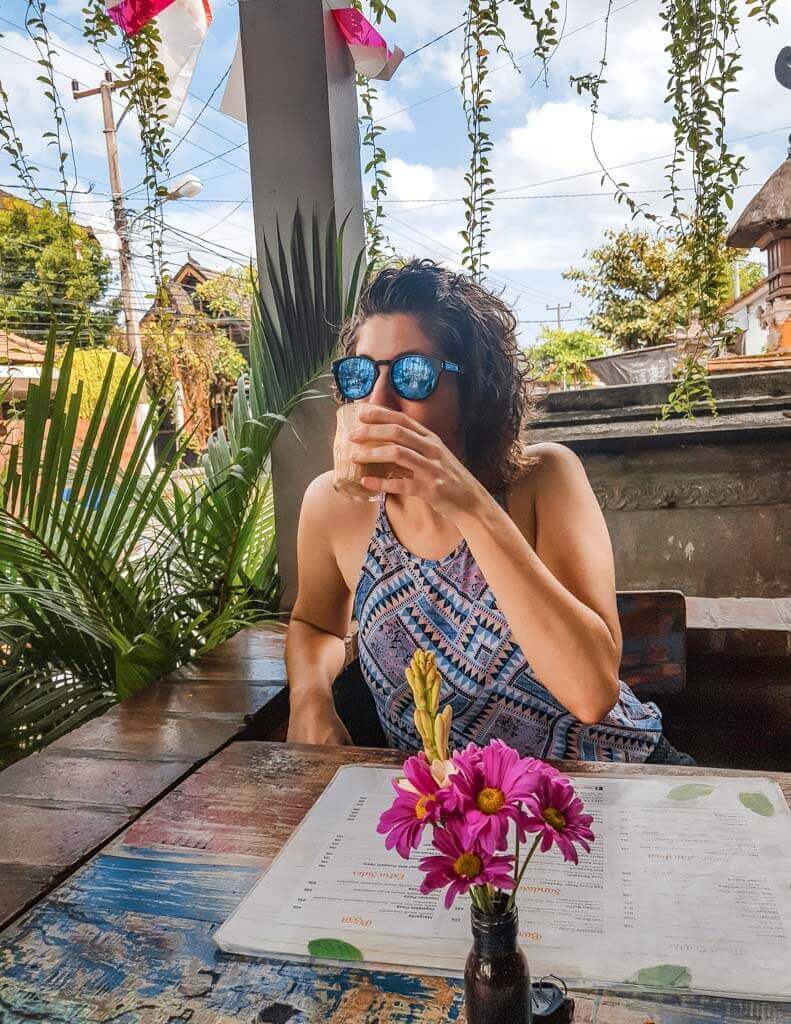
Torn Tackies contains affiliate links. If you make a purchase using one of these links, I may receive compensation at no extra cost to you. See my disclosure for more information.
Quick Navigation
Things to Know About What to Pack for Bali
To pack or not to pack … The age-old questions when packing for Bali.
You’re probably wondering whether that extra maxi dress is necessary or if you’ll need something fancy for a night out on the town.
Short answer – leave them at home!
The vibe in Bali is super relaxed. And whether you’re here for the photos and fashion or to set your inner hippie free, you’ll fit right in.
If you’re beaching it up, then your Bali essentials will include a pair of shorts and a tank top which you’ll wear over your bathing suit.
Then, when the sun begins to set, you’ll pop into a warung or beach bar. And it’s totally acceptable to be in the same clothes you wore earlier in the day.
What I love most about Bali is that I never feel as if I need to look or dress a certain way.
It’s not pretentious, and it’s not image-conscious (although some who visit Seminyak or Canggu may argue with me on this one).

a few things to note when packing for Bali
The seasons.
Indonesia has a tropical climate, so it’s relatively warm all year round.
But there are two distinct seasons, and your Bali must-haves will be dependent on the time of year you’re visiting.
Packing for the dry season (May-September)
The dry season is from May to September. During this time, the days are sunny and warm, and the nights are a moderate temperature.
You might need a warm top for those sunrise scooter missions, but overall, the temperature is pretty warm.
This is my favorite time to visit as it’s not scorching hot, and it’s not rainy either.
Packing for Bali’s wet season (October-April)
As the name suggests, the wet season can be extremely, er wet !
You’ll need to keep a rain poncho handy as the storms sneak up on you. Expect daily downpours, but they only last for an hour or so.
And with the rain comes the humidity!
Yep, Bali in December, January, and February is ridiculously hot and humid. It’s next level and can be uncomfortable.
This weather applies to the entire country, so if you’re planning on visiting more Indonesian islands during your trip, this is something you’ll need to consider when deciding what to pack for Bali.
Appropriate clothing to wear in Bali
It’s important to be respectful of the Balinese culture. When visiting temples or sacred places, dress appropriately and cover your shoulders, chest, and knees.
Don’t worry too much if you haven’t packed long pants, as it’s common practice to rent sarongs from the vendors outside the temples.
But when you leave and hit the beaches, just about anything goes.
The type of traveler you are
How you prefer to travel will determine what you add to your Bali packing list.
Me? I’m always on some adventure, so I just bring what I need.
This packing list includes Bali travel essentials, but I’ve added those extra items that you may want to bring along if you’re a luxury traveler or if you’re moving to Bali for a few months.

Bali Packing List: Your Bags
Before you do anything, you’ll first need to decide what you’re going to pack everything into.
Large Backpack
If you’re a luxury traveler embarking on a 5* resort holiday with private transfers, then you’ll get away with a hard-wheelie suitcase like this .
But for everyone else, use a backpack!
“ But backpacks are for backpackers ” you might add.
Well, before my first Bali trip, I’d only ever used hard suitcases for my travels. I must have been living under a rock because backpacks are game-changers!
And they’re not only for backpackers – they’re for everyone.
Backpacks like this one are so convenient! They’re light, easy to carry, and won’t get muddy or wet (as you won’t have to drag it through dirt roads, rice fields, or between ferries).
And with all the activities and attractions in Bali, you’re most likely going to be moving around quite a bit. If that’s the case, a backpack is the way to go.
Carry-on backpack or day bag
Having a good carry-on backpack is crucial to every Bali packing list. This over-the-shoulder bag is needed for all your day trips, beach-hopping shenanigans, and scooter missions.
Store your water, snacks, phone, camera, sunscreen, and beach towel in here. You’ll be all set and ready for the day.
In addition, I also packed in one of these small foldable backpacks . They are so light and came in handy throughout our trip.
Packing cubes
Packing cubes are essential travel items that should be on your packing list no matter where you’re going.
They can be used to separate all your clothing items, from swimwear to underwear, dresses to shorts.
Packing cubes like this are affordable and come in sets of 3 or 4 varying sizes so you’ll definitely get your money’s worth.
And they’re not only for clothes! Here’s what else I use packing cubes for:
- Laundry bag: Laundry in Bali is so cheap with hostels and homestays offering laundry services for under $5! Keep your dirty clothes aside and have them washed every few days. They’ll be returned the next day, washed, dried, and neatly folded.
- Toiletry bag: Who needs a toiletry bag when you have packing cubes.
- Make-up bag: Ladies, don’t judge me for this! Instead of spending money on a fancy makeup bag, use a packing cube instead.
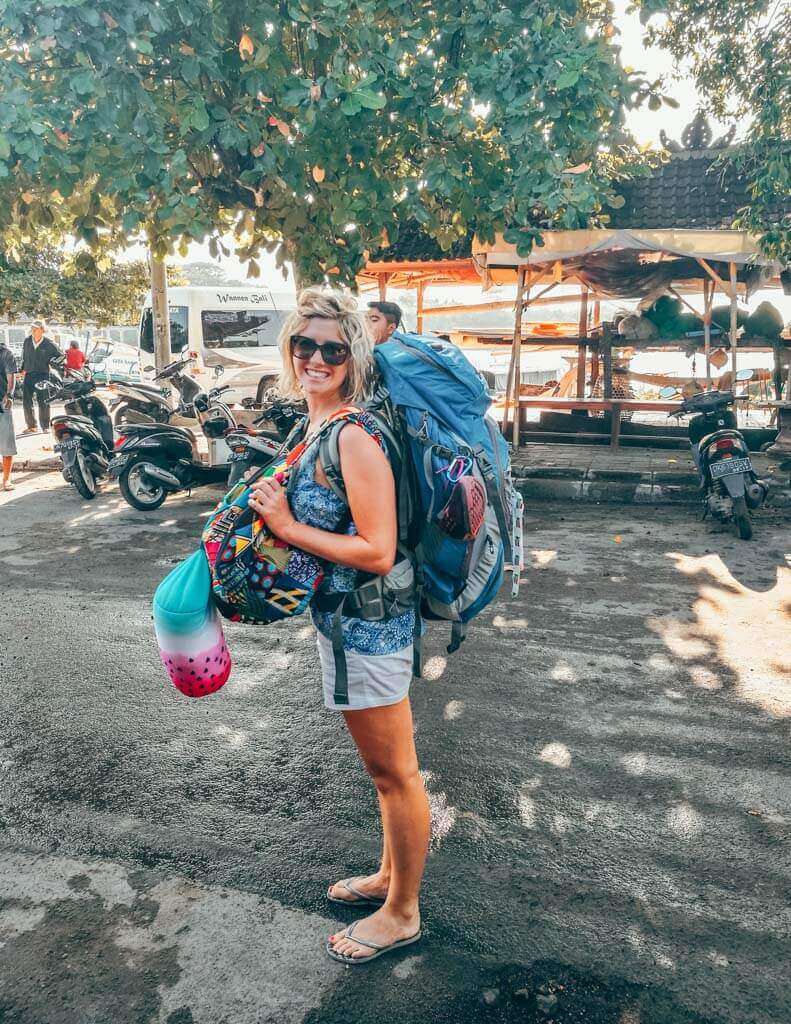
What to Wear in Bali (Female)
Deciding what to bring to Bali is no easy task – especially for us ladies.
You want to be prepared for every occasion, but that often means overpacking. Don’t do that!
When traveling to Bali, less is more!
While the Instagram pics may showcase a more dolled-up side to Bali, the island is super easy-going, and it’s totally acceptable to wear the same shorts and tank tops day in and day out.
Here’s what to add to your Bali packing list (Women)
If you’re planning on hiking Mount Batur or doing a walk through the rice fields, you’ll need a pair of closed shoes.
They’ll get very dirty, so don’t bring your new sneakers! You can also wear these on your scooter trips and during the flight.
I have a pair of these Hoka’s , and I love them as they are so versatile. I use them for running, hiking, and exploring (and they look good too)!
Flip flops (Havaianas)
Every Bali checking list should include a pair of flip-flops. I wore mine every single day – to the beach, shops, restaurants, and bars.
Buy Havaianas here.
I have a pair of these Ray-Ban Wayfarers , and they’re great for Bali as you can wear them on a hike yet also at a beach club.
I have a baseball hat like this and love it as it’s easy to travel with. While the wide-brimmed sun hats look fab, they are a mission to pack.
3 tank tops
These tank tops are light, quick-drying, and don’t take up much space. They’re best worn to the beach and when you’re going out. Check these out.
Bring 2 tops like this that cover your chest and shoulders.
These can be worn when visiting temples, hiking, or doing yoga. And if you get a bit too much sun, you’re going to want to cover up the next day, so these are great for that.
3 pairs of shorts
I recommend a pair of denim shorts and 2 light shorts that you can wear over your bathing suit.
1 pair of yoga pants
I always carry a pair of long tights/yoga pants with me. You can use them for yoga, exercise, and also travel in them.
Here’s the pair I have (and love).
2 sundresses
Bring 1 or 2 flowy dresses that you can dress up or down.
2 bikinis/bathing suits
You might be tempted to bring more, but 2 is enough.
2 sarongs or beach cover-ups
I wore my sarong just about every day. After wearing it around the beaches in Uluwatu, I converted it into a dress or skirt and then hit the warungs on the cliffs.
Although it will be hot, bring a light jacket like this to wear in the mornings, on boat trips, and for your flight.
Avoid a denim jacket as it takes up a lot of space, and you may not even need it.
Cross-body bag
A crossbody bag is a travel essential for Bali that can used when going for dinners or drinks.
It doesn’t need to be big – just something that can fit your purse, phone, and keys. I have this one which comes in 12 different colors.
Other Bali travel essentials for women
- Summer PJ’s
- 3 pairs of socks
- 6 underwear

What to take to Bali (Men)
It’s so easy for guys to pack for Bali. Gary had half the amount of clothing that I did!
- 2 x boardshorts
- 1 x smart shorts
- 4 x round neck t-shirts
- 1 x collar shirt/Polo
- 1 x light jacket
- 1 x exercise top (for hiking)
- 1 x exercise pants (for hiking)
- 6 x underpants
- 1 Pair of trainers
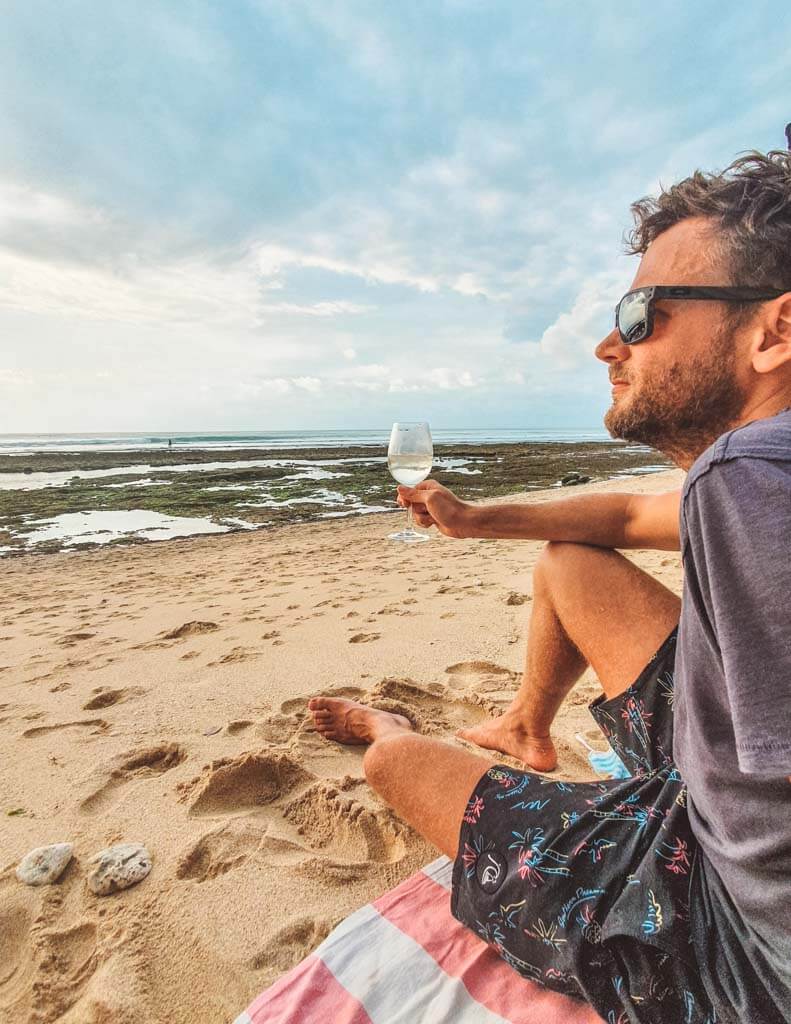
Other things to pack for Bali
Beach towel.
While homestays and hotels will provide you with bath towels, you’ll still need to pack a small, lightweight towel for the beach.
It should be small enough to fit in your day backpack, along with the other items, so don’t bring a large heavy towel. These are the best , and they’re quick drying.
Reusable water bottle
The tap water in Bali is not safe to drink.
Your accommodation may offer complimentary water that you can decanter into smaller reusable water bottles like this .
If this isn’t an option, purchase the bigger 10l water canisters from the corner store and decanter them into smaller bottles for your day trips.
Combination locks
I’ve never had a problem with theft in Bali.
But if you’re traveling in big tour buses or overland to other islands, then bring a combination lock to keep your items safe.
Buy your combination lock here.
READ MORE: The Ultimate 3 Week Bali Itinerary
- Shampoo and conditioner (2 in 1): I’ll let you in on a secret. When I’m traveling, I use the 2-in-1 shampoo and conditioner for my hair and body so no need to bring a separate body wash
- Moisturizer
- Body cream: After hours in the sun, you’re going to want to moisturize
- Toothbrush and toothpaste
- Sunscreen: bring a factor 50 for your face and a 30 for your body. Reef-safe sunscreen is the way to go!
- Make-up: Don’t pack too much makeup. All you need is a bit of foundation, mascara, and blush
- Hair ties and clips

First Aid Kit
There’s no need to go overboard with medical supplies. The island has everything!
But I recommend you add these items to your packing list for Bali.
- Paracetamol
- Bandages/plasters
- Antiseptic cream
- Mosquito spray
- GoPro: If you don’t have one, buy one! You’ll want to capture all your favorite memories (and they’re also great for selfies)
- Portable power bank: Your phone battery may not last an entire day when you’re using it to follow Google maps and taking photos every two minutes. You’re going to need a portable power bank like this (and make sure it’s charged)
- Adapter: US plug ports don’t work in Bali. The plugs here take twin round pins, similar to European and South African pins. If you buy this universal power adapter , you’ll be able to use it worldwide (and not only in Bali)
- Speaker: A speaker will come in handy when you’re chilling at your homestay with a Bintang in hand, playing an intense game of cards. We used ours often but if you’re planning on being on the go all the time, then it might not be necessary.
Travel Insurance
When you’re hiking volcanoes, driving scooters, eating street food, and dodging traffic, you need to be covered for emergencies.
The amount of people who don’t travel with insurance is really scary.
In Bali, it’s a common occurrence for foreigners to end up in the hospital due to motorbike accidents, food poisoning, and even dengue fever. Make sure you’re covered in case this happens to you.
I personally use World Nomads when traveling as they cover everything from stolen luggage, missed flights, natural disasters, vehicle accidents, as well as activities such as surfing and scuba diving.
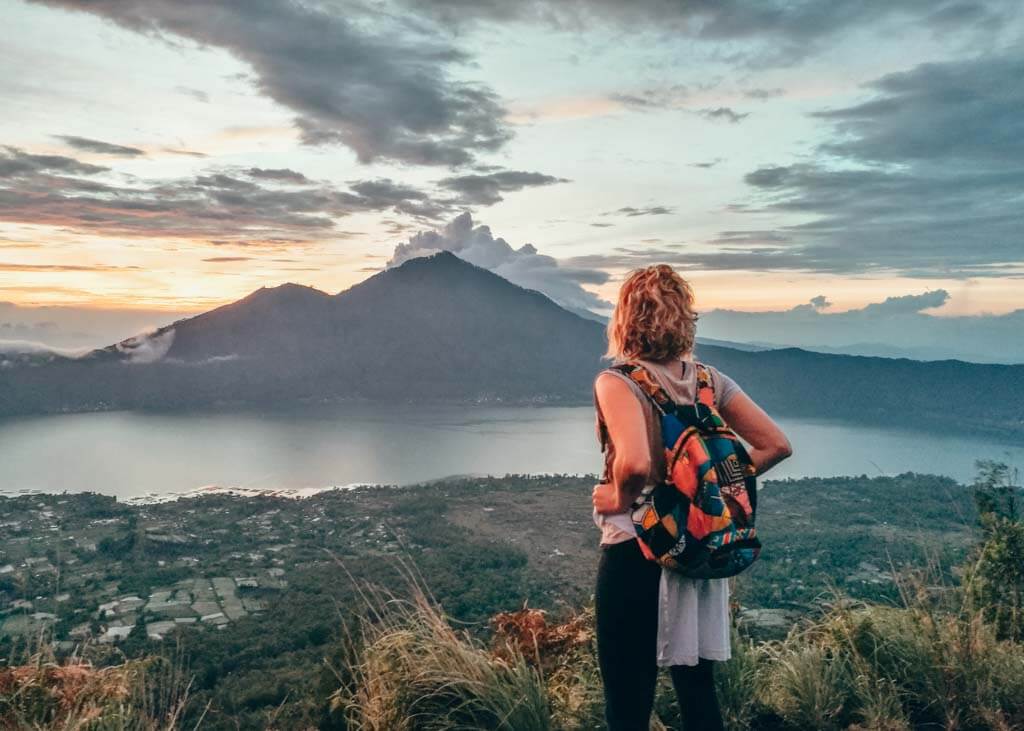
Essential Travel Items to Pack for Bali
- Debit and credit card: bring both as you never know if one will give you issues
- Driving license and International Driving License
- Copy of Passport, Travel insurance, Drivers, accommodation booking
- Passport wallet to hold your Passport and other important documents (all of the above)
- Money purse: When going on day trips or scooter adventures, don’t travel with a big wallet.
- Instead, keep your cards, drivers’ licenses, and other documents in your travel wallet (above) and use a small money pouch to carry cash for the day’s activities
READ MORE: The Best Places to Stay in Uluwatu, Bali
Non-Essential Items That You Might Want to Pack
Here are a few extra items that you might want to include on your Bali packing list, although most are not necessary.
A pair of sandals: If you’re planning a nice dinner in Seminyak (Motel Mexicola is awesome) or a champagne brunch in Nusa Dua (St Regis is incredible) then you’ll need a pair of sandals. But if these types of activities aren’t on your Bali itinerary, leave them at home.
A dry bag: Planning on doing a bit of island hopping, snorkeling, or diving? Bring a dry bag to keep your things safe. But honestly, these dry bags do take up a bit of space so if you’re only doing 1 or 2 boat trips, then it’s not entirely necessary.
A beach bag: Some people may prefer to have a nice beach bag for their day out in the sun. A tote bag also works well and takes up little space. Or better yet, leave these at home and use your small backpack instead – that’s what I did.
Snorkel and mask: The snorkeling in Bali isn’t much to write home about. The Gili Islands and Nusa Penida are a different story though. But carrying around bulky snorkeling gear is a mission and it’s easier to rent them on the islands.
Exercise clothes: Unless you’ll be doing yoga or exercising every day, don’t bring any workout gear. All you need is a pair of yoga pants (which I included earlier) and a normal top.
Money: You don’t need to bring Indonesian Rupiah with you to Bali as there are several ATMs just outside the arrival terminal at the airport.
Rashguard or swim shirt: If you’re learning to surf and expect to spend hours in the water, then you may want to consider adding a rash guard to your Bali packing list.
Rain Poncho: Traveling during the dry season (May-September)? Don’t pack a poncho! But you’ll need one for the rainy season. They’re sold on every street corner so you can pick one up in Bali, they’re far more affordable here.
Playing cards: I always travel with a pack of cards!
The book “Snowing in Bali “: I don’t read much but this book is amazing and I couldn’t put it down. It’s all about the history of drugs and gangs in Bali. Super interesting! Read the reviews here.
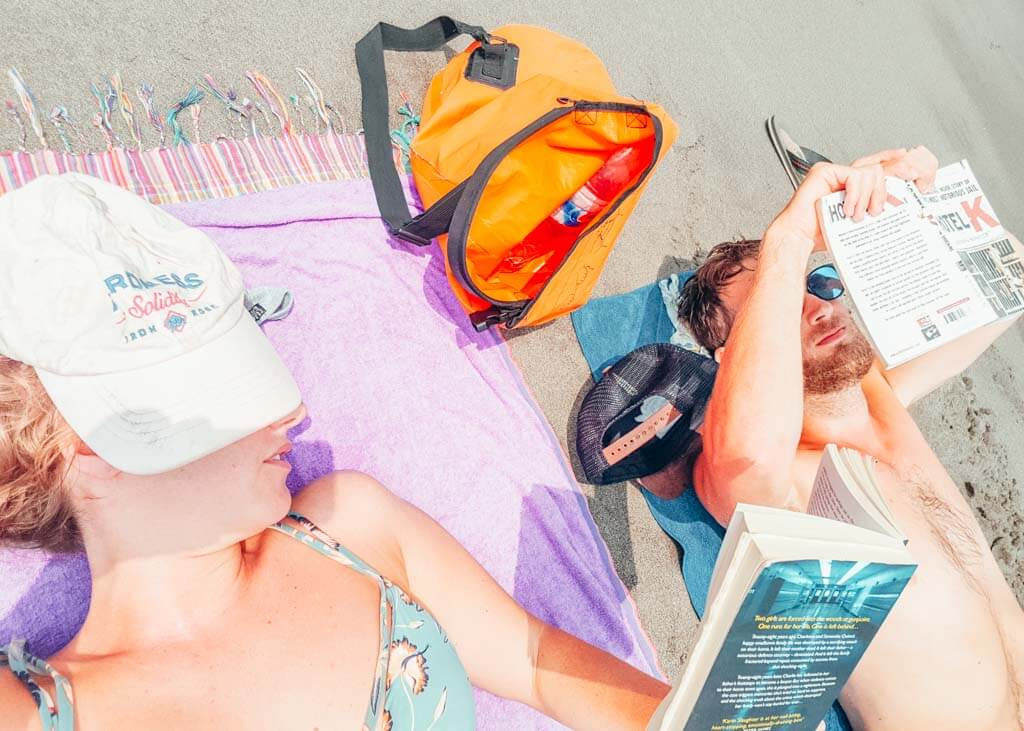
What Not to Add to Your Bali Packing List
- Expensive jewelry: Or any jewelry for that matter. It’s not needed.
- High heels: No one wears heels in Bali. Rather bring a nice pair of sandals.
- Jeans: They’re heavy and bulky and you won’t wear them because it’s so hot.
- Water shoes: I’ve seen a few Bali packing list blog posts that recommend bringing a pair of water shoes. While these could come in handy when you’re walking over the rocks in Uluwatu, they aren’t necessary, and I never needed them during my time on the island.
FAQ’s about Things to take to Bali
What bags to carry in bali.
I recommend bringing 3 bags to Bali: a large travel backpack to store all your clothes, a small over-the-shoulder backpack for day trips, and a crossbody bag for your cell phone and wallet.
Is it best to take a suitcase or backpack to Bali?
If you plan on moving around a bit and staying on either the Gili or Nusa Islands, I recommend bringing a travel backpack. Backpacks are a lot easier to carry around.
Should I wear jeans in Bali?
No, jeans are not necessary for Bali as it is too hot and humid. Rather bring a pair of linen trousers and long sun dresses.
Bali Travel Tips
Now that you’re all packed and ready to go, all that’s left is to get on a flight! If this is your first time in Bali, here are some of the best things to do and travel tips for visiting the island.
- Visit the beaches in Uluwatu, as they’re the best in Bali. Read more.
- Spend a few days inland and explore the hidden gem of Sidemen Valley. Read more.
- Know the rules for renting a scooter, as they’re a lot stricter now than they were a few years ago. Read more.
- Make sure you know what to expect when visiting Indonesia. Read more.
- Go off the beaten track and explore these hidden gems in Bali. Read more.
Are you planning your trip? Have any questions about your Bali packing list? Drop me a message in the comment section below!
Looking for more Bali travel inspiration? Check out my other posts!
- The Best Areas to stay in Bali for First-Timers
- The Ultimate Bali Travel Guide
- 9 Awesome things to do in Munduk, Bali
- The Perfect Ubud Itinerary
- What to Pack For Indonesia: The Essential Packing List
Did you find this post helpful? Save it for later on Pinterest!
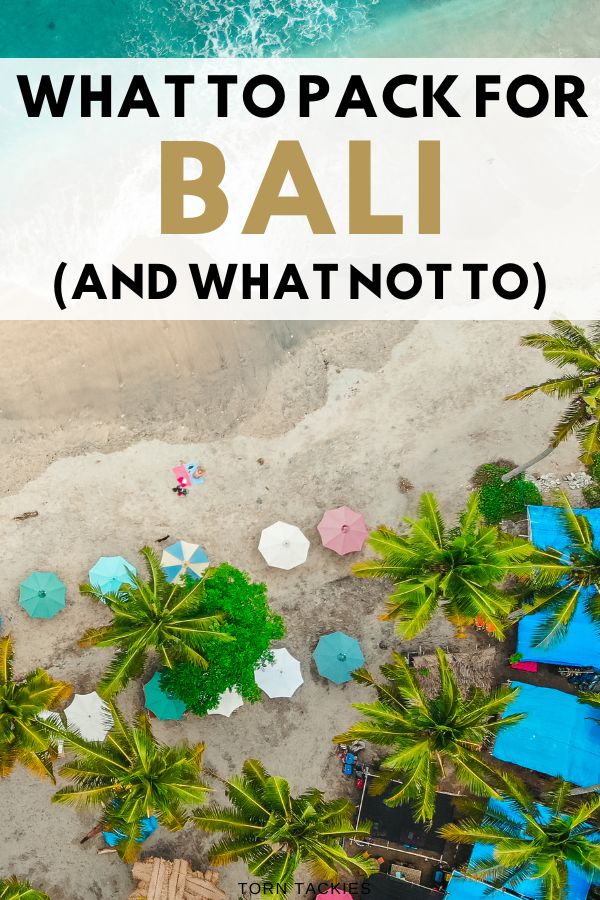
Hi, I'm Carryn. I’m an adventure travel blogger trying to figure out my way through life by traveling and exploring. Join me as I share my travel guides and tips for life abroad. Find out more about me here .
Best Places to Stay in Uluwatu: Insider Guide on Where to Stay in Uluwatu
What to pack for sri lanka: the ultimate sri lanka packing list, 8 thoughts on “the ultimate bali packing list: 60 things to pack for bali”.
Hi there!!! This is so helpful !!! Thank you thank you!!! I do have a question. We are travelling to Bali in December arriving on the 19th…. I don’t want to spend Christmas in ubud would rather be beach side. Could we start at the bottom and end in seminyak?
Hi Lindsay, I’m so glad you found this post helpful. When you say “start at the bottom” do you mean to start your trip in Ubud and the end in Seminyak? You certainly can! But get your accommodation bookings in quickly as you’ll be traveling during peak season. Have fun!
Fellow saffa but been located in the U.S for the past 10 years. I stumbled across your website by chance. I am really glad I did. I am at crossroads as well, mid-life crisis perhaps nonetheless I need change. I’ll be 40 this year July, and have lost the drive/purpose I once had in my 20/30s. Clearly a hard reset is in order. Your postings have inspired that little dormant flame inside again. First visit to bali I’ll aim to visit for 3-4 weeks… I was looking to do this in May 2023.
Questions I have: Did you check your main backpack in? Or was all your luggage carry on only?
I’ll be traveling solo. Any advice for this old guy?
For me the goal is finding purpose, finding who I was before I moved to the U.S. Why I lost the joy in life. Why I dread each day of this rat race. Probably a bit too much information to share… providing context.
Thanks to both you and Gary for sharing your adventures.
Looking forward to hearing from you.
Hi James, thanks so much for your kind words! Sorry for the delay in getting back to you. I checked my main baggage in as it weighed 15kgs. If you’re a light packer, you could get away with a carry on only but be sure to check the airline baggage restrictions first. And take a backpack rather than a suitcase with wheels. It will make your life so much easier. Enjoy!
Going to Bali in August. 7 days in Ubud and some more time by the beach after. Recently heard some horror stories about huge spiders /flying bugs made it inside the bedroom. Have you experienced this? What can we expect? Thanks 🙏
Hi Michelle, you are going to love Ubud! Yes, there are spiders and bugs, but I never experienced anything that made me feel uncomfortable (and spiders and snakes are my worst fear). I never had any bad experiences and don’t recall seeing anything big or frightening. If you’re going far off the beaten track, then you will come across more of that – but Ubud is considered more developed and your chances of seeing huge spiders and bugs is minimal so you don’t need to worry! Have a great time in Bali. Carryn
I am visiting Bali between 23 July and 23 Aug for 30 days. Will be my first time. I am planning to stay in Ubud for at least 10-15 days however the remaining days i’d like to stay in an area where i can possibly enjoy a nice beach and take some surfing classes for beginners. I’d really appreciate any recommendations for the 2nd part of my trip as to where to stay ( could be multiple locations )
Thanks in advance
What type of vibe are you looking? It seems like you have 15 days extra – I suggest visiting 2 or 3 areas.
– If you’re a beginner surfer, then Canggu is a good place to learn. But it’s busy and the surf is crowded (which I didn’t enjoy). – Uluwatu has amazing white sandy beaches but they’re not ideal for beginner surfers due to the size of the waves and the reef. You could try Bingin Beach or Balangan Beach as I’ve had good beginner lessons here (but go on a higher tide, as the reef is gnarly on low tide) – Nusa Lembongan is an amazing island that’s a short boat ride from Bali. The beaches here are awesome and there’s incredible snorkeling with Manta Rays.
I have this guide on the best areas to stay in Bali which might be helpful.
Enjoy your trip! Carryn
Leave a Comment Cancel reply

Everything You Need To Know About Bali’s New Laws For Unmarried Couples
Posted on Published: December 8, 2022
Share The Article
- Facebook 267
Indonesia has officially passed legislation that is being highly debated. The news has triggered much concern for many travelers planning to visit Bali soon. While the new laws apply to all people in Indonesia, whether citizens or visitors, there are only very specific circumstances whereby unmarried foreigners in Bali could fall on the wrong side of the law.
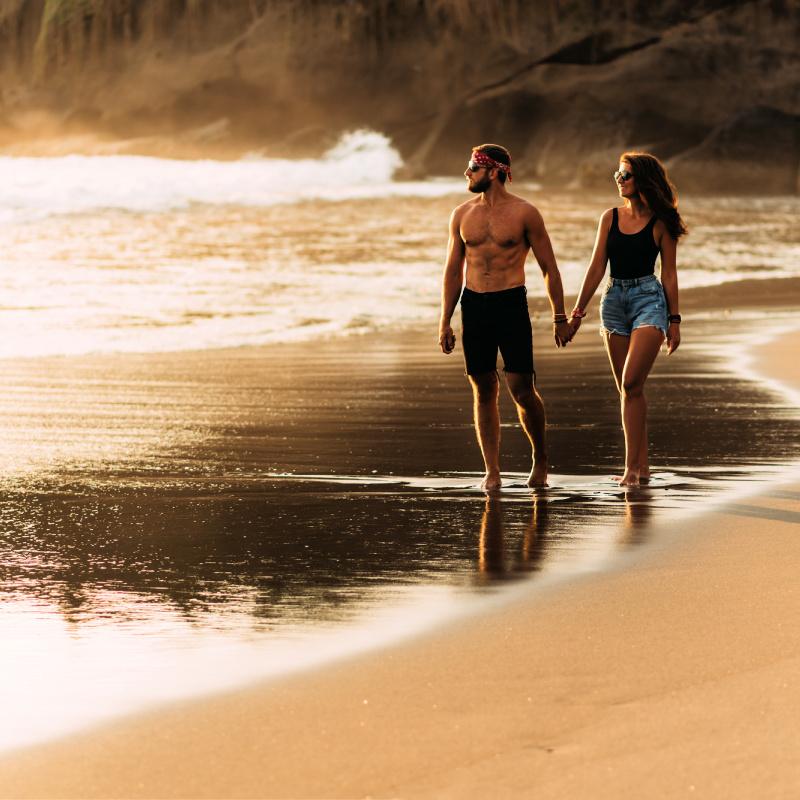
On the 6th of December 2022, the parliament in Indonesia signed off on significant revisions to the Indonesian Criminal Code (RKUJP). The huge changes have bought about genuine concerns for Indonesian citizens as the legislation does not only criminalize cohabitation and sex before marriage but a swathe of other political freedoms.
While much of the media is honing in on ‘Bali’s Bonking Ban’, many have argued that the limiting of freedoms and rights for Indonesian people should be of primary focus.
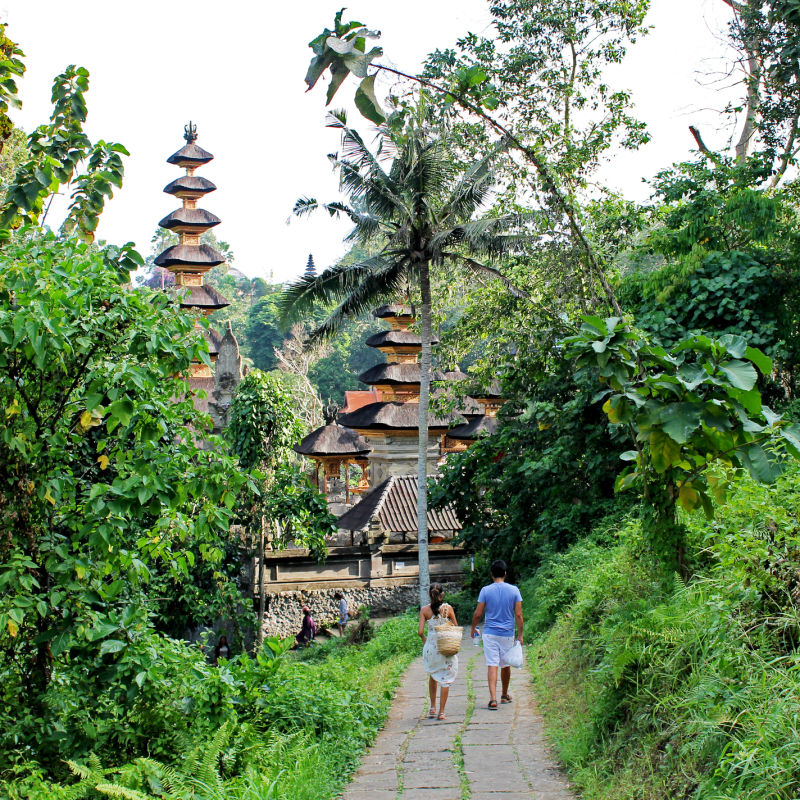
Nevertheless, travelers’ concerns over what the new laws mean for them as tourists in Indonesia are valid. The updates to the law have only been passed in parliament, it will take up to three years for them to come into effect. Legal specialists envisage there being a further backlash against the new laws that could slow the process further. Many political commentators have suggested that the new rules will be tricky to enforce.
The law states that only a person close to the couple can report them to the police. In this regard, only someone who the relationship could negatively impact can report co-habiting or sex before marriage to the police, such as a parent, a child, or a spouse, in the incidence of an extra-marital affair.
Top 5 Travel Insurance Plans For 2023 Starting At $10 Per Week
Easily Earn Points For Free Travel

Therefore, there are only a few scenarios where foreign tourists in Bali could get themselves in hot water. The most likely situation would be where a foreigner hooks up with or gets into a relationship with, or starts living with, an Indonesian person. If a close family member, such as a parent or sibling, disapproves and reports the couple to the police, an investigation may be launched and charges made.
Another scenario, an unlikely one at that, is that an unmarried foreign couple goes on holiday to Indonesia with their own families and their family members report them to the police locally. So, despite the backlash and confusion online, it is clear that unmarried couples do not need to make any immediate changes to their travel plans to Bali.
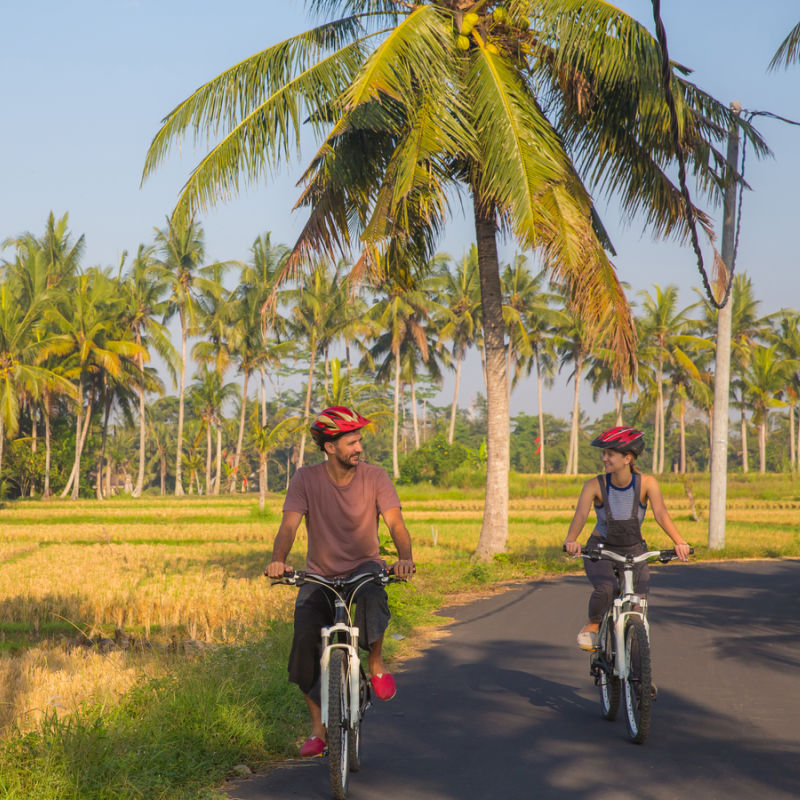
Even hoteliers in Bali are concerned about the implications of the law on their services. Although Bali is making efforts to stamp out badly behaved tourists, on the whole, the island is very lenient when it comes to unmarried couples.
Sex outside of marriage has been illegal in Indonesia for decades. However, it was the case that charges could only be bought by an aggrieved spouse in the case of an affair. The law has been largely unenforced in Bali and other liberal areas of Indonesia.

Indonesia is made up of 17,000 islands and has a huge range of cultural, social, and political diversity. Many areas are further governed by local laws, some of which override national laws. Aceh Province in Sumatra, for example, is governed by Sharia law and central government legislation. The province is incredibly conservative and has strict morals and little leniency regarding behavior that goes against cultural expectations.

In Bali, an area that values tourism and largely depends on international tourism, most people see the law change as nothing to worry about. Speaking to reporters, a New Zealander living in Bali with his wife explained that he doesn’t; think the law will impact holidaymakers. It is tricky to see the benefit for tourism providers in Bali to report unmarried couples to the police.
It remains to be seen whether police would be allowed to act on reports from parties other than close relatives, such as a hotel owner. Caterer Matt said, “People are very worried and many thinking of canceling their holidays. I don’t think this will happen, nor is it anything to worry about.”
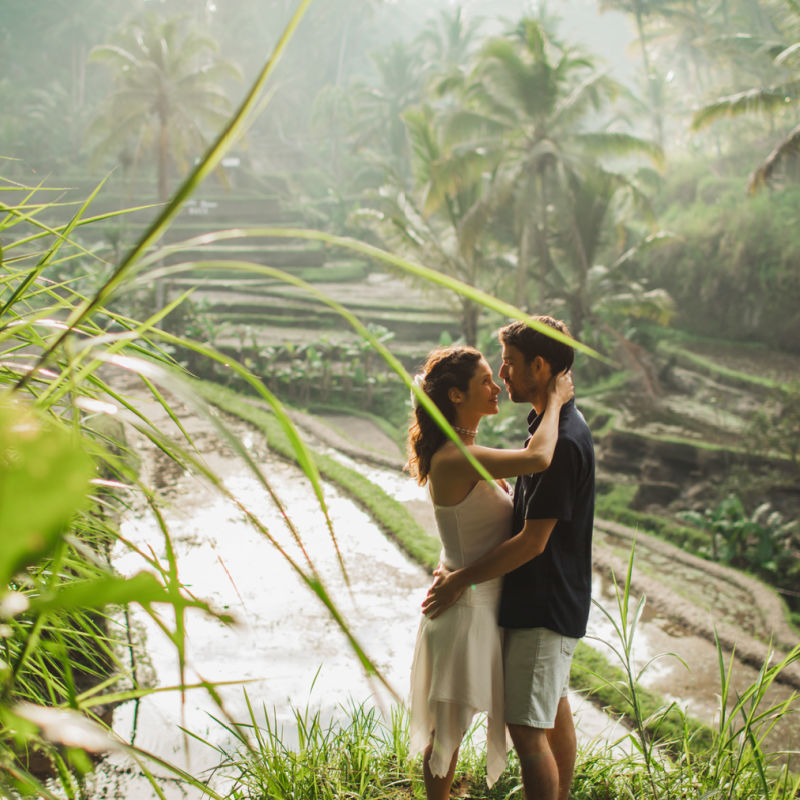
Interestingly, Indonesian Justice Minister Yasonna Laoly told reports that she expects there to be a dialogue about the new laws despite strict policies on freedom of speech. He said, “Our society is multicultural and multiethnic, it’s impossible to accommodate 100 percent of all interests. We have no intention to silence critics”.
Remove All Ads & Unlock All Articles… Sign up for The Bali Sun Premium

Plan Your Bali Holiday: Book The Best English Speaking Drivers For Airport Transfers & Tours Choose From Thousands of Bali Hotels, Resorts, and Hostels with Free Cancellation On Most Properties Book Cheap Flights To Bali Don’t Forget Travel Insurance That Covers Medical Expenses In Bali
For the latest Bali News & Debate Join our Facebook Community
SUBSCRIBE TO NEW POSTS
Enter your email address to subscribe to The Bali Sun’s latest breaking news, straight to your inbox.
Enter your email address
Thursday 17th of August 2023
Everyone is misreading this! the law states that only relatives can report and as tourist won't be related to locals try and see what the point is! it's to combat sex tourism because the only way you will get in trouble is if you fly in and sleep with a local and only the locals parents or siblings can report it!!!
this law does nothing to couples who come together or tourists who sleep with other tourists, only tourists who are in bali for sex tourism which we should all except is a law that is not "from the dark ages"
Sunday 9th of July 2023
For those that just read the headline and are flipping out, the article stated:
The law states that only a person close to the couple can report them to the police. In this regard, only someone who the relationship could negatively impact can report co-habiting or sex before marriage to the police, such as a parent, a child, or a spouse, in the incidence of an extra-marital affair.
Therefore, there are only a few scenarios where foreign tourists in Bali could get themselves in hot water. The most likely situation would be where a foreigner hooks up with or gets into a relationship with, or starts living with, an Indonesian person. If a close family member, such as a parent or sibling, disapproves and reports the couple to the police, an investigation may be launched and charges made.
Another scenario, an unlikely one at that, is that an unmarried foreign couple goes on holiday to Indonesia with their own families and their family members report them to the police locally. So, despite the backlash and confusion online, it is clear that unmarried couples do not need to make any immediate changes to their travel plans to Bali.
Now I don't support it, and I really couldn't care less about it as I'm not Balinese, but it's not banning boinking in Bali.
Tropical Rick
Friday 6th of January 2023
While your article attempts to down play the new law it misses the point . There are a host of possibilities that could create chaos . Such as blackmail.
Indonesia has many problems why are they trying to legislate into peoples private lives .
This law is a affront to everyone
Thursday 15th of December 2022
Do what I say but not what I do... Its a shame to pass that kind of law when so many married governement just go to karaoke for cheating of their wife during the night... and then pass a law to forbid that... Its like porn.. "Everyone" watch porn but governement keep blaming and blocking it
Wednesday 14th of December 2022
It means nothing. It's not due to come into effect for 3 years. It's just ignorant, unresearched headline grabbing hot air by untold Western media, with little or no attempt at understanding RI and its diversity. There will be court challenges, amendments....and remember by then a change of government and president. BTW Douglas,LGBTQ is not eve mentioned in the proposed legislation.

Where to go after Bali: Curated List of the 10 Best Nearby Places
This website contains no sponsored content. The content is written entirely on my own and is based on my personal experience and extensive research. This post may contain affiliate links. If you make a purchase through one of these links, I may receive a small commission at no extra cost to you. As an Amazon Associate I earn from qualifying purchases. Please read the disclaimer for more information.
Wondering where to go after Bali? I’ve got you covered!
Indonesia is a land of over 17,000 islands and yet the only place most people in the world put on their bucketlist is Bali. There is absolutely no doubt that Bali is mesmerizing and that there are plenty of things to do in Bali. However, Bali’s location in Indonesia and in Asia too is such that visiting nearby islands, cities, and countries should hardly be a challenge.
So which are the places that you should visit after Bali? Or in other words, if you have extra time on your hand to extend your vacation, where should you go after Bali? The best places to go to after your trip to Bali are nearby islands like Gili Air, Lombok, Kawah Ijen, or other Indonesian places like Ancol, Flores Island or Borneo. Alternatively, you could even combine your Bali trip with a holiday in Kyoto, Japan, Hoi An, Vietnam or Penang, Malaysia.
Remember that I am not just randomly recommending places from Asia here. But to provide you with a diverse range of options from Indonesia and other Asian countries, this list has been put together by curated inputs from some of the best travel bloggers in the world.
So what are to go after Bali? Read all about the best islands near Bali, the best Indonesian cities to visit after Bali, and the most diverse overseas places to visit close to Bali in the detailed guide below.
Where to go after Bali?
Contributed by: Leah, Officer Travels
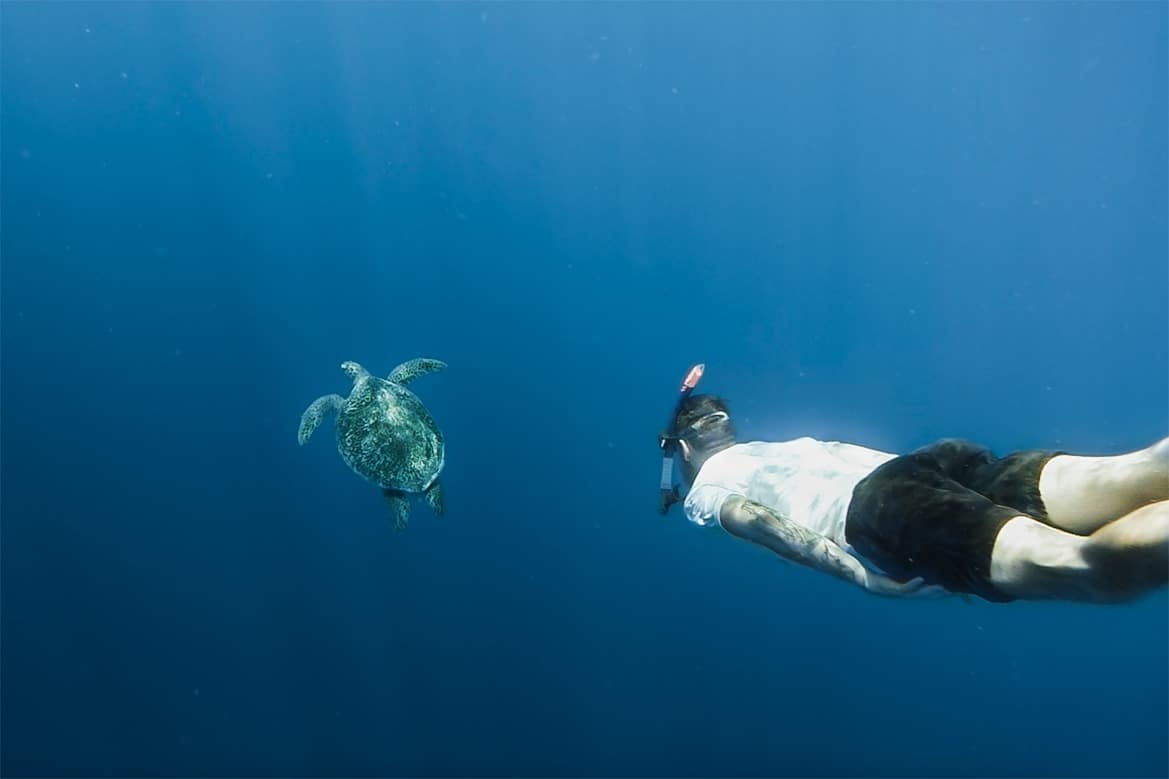
How to reach Gili Air from Bali: By boat from Padang Bai, Central Bali or by boat from Nusa Penida or Nusa Lembongan.
How many days should you spend in Gili Air: 2-3 days
If you have an extended holiday planned in Bali, you’ll probably want to take a trip to some of the surrounding Islands too. The Gili Islands are a popular side trip from Bali because of their diverse nature.
‘The Gili Three’ is made up of three vastly different islands that offer different scenes depending on what you’re looking for.
– Gili Trawangan (or Gili T) is the party island, popular with the younger crowd, and has a much livelier atmosphere.
– Gili Meno is where the couples go, it’s quiet, romantic and a great option if you’re looking for peace & tranquility
– Gili Air has a hippie vibe
Then there’s Gili Air. Quiet, but sociable enough that solo travelers won’t feel isolated. Its reputation for yoga retreats is growing year on year.
With no cars here, locals and tourists get about by foot, bike, or horse. It has a great mix of quiet cafes, beautiful restaurants, and beach-side bars but unlike Gili T, clubbing isn’t the top priority here.
The top activities for Gili Air include walking and exploring the island, diving lessons, and snorkeling tours. There are plenty of operators to choose from but I recommend looking for one that takes you to all three Islands and includes a lunch stop at Gili Meno.
With its peace and tranquility, it won’t come as a surprise to hear that you can’t fly to the Gili Three from Bali, so be prepared for somewhat of an adventure by boat. Depending on your Bali itinerary, there are several starting points for a fast boat from Bali to Gili Air including Padang Bai if you’re in Ubud or Central Bali. Or, if you’re planning to visit Nusa Penida as well, you can also get a smaller boat from Nusa Lembongan which takes a couple of hours. Allow for at least a couple of days at Gili Air to really experience the beach life and unwind.
Komodo National Park
Contributed by: Jackie, Life of Doing
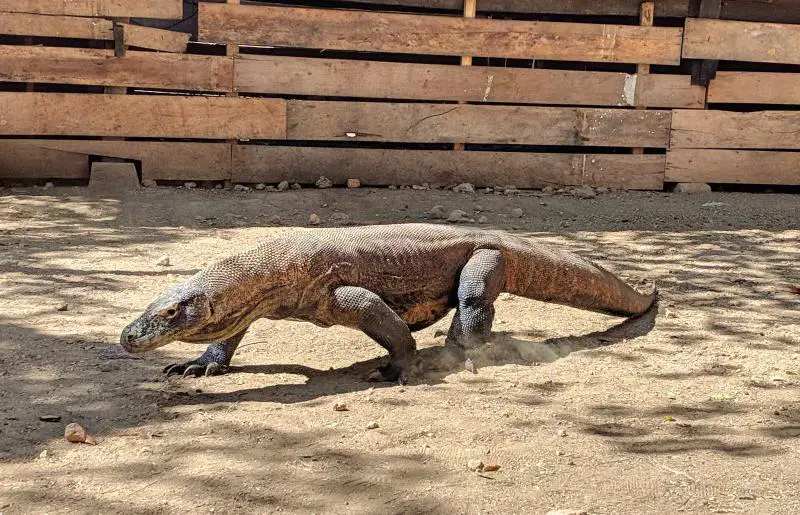
How to reach Komodo National Park from Bali: Fly to Labuan Bajo (1h 20 mins) and then take a tour via boat.
How many days should you spend at Komodo National Park: 1-2 days
Visiting Komodo National Park after Bali is doable and easy to do. Komodo National Park is one of Indonesia’s UNESCO recognized sites and is well-known for the Komodo dragons living on Komodo and Rinca Island.
This place is located along an archipelago close to Labuan Bajo, a small town on Flores Island. It comprises 3 main islands – Komodo, Rinca, and Padar, and 26 smaller islands.
To reach Komodo National Park, you’ll need to fly from Bali to Labuan Bajo, and then take a tour (via boat) from Labuan Bajo. A flight from Bali to Labuan Bajo is only 1 hour and 20 mins.
There are one-day and multi-day tours available. You don’t need to pre-book a tour as you can find agencies in the main downtown area or your guesthouse may offer tours.
A one-day tour consists of a visit to Komodo or Rinca Islands to see the Komodo dragons up close and in their natural habitats, a hike up Padar Island for gorgeous views of the blue lakes, and/or a visit to a pink beach or snorkeling off an island.
While one day is sufficient, consider extending the tour a few extra days. You can stay overnight on a boat and visit both Komodo and Rinca Islands. The Komodo dragons look slightly different between the two islands. Plus, you’ll get more time to snorkel and scuba dive.
Labuan Bajo has plenty of guesthouses and hostels available. They’re reasonable at $20 USD per night. It’s best to stay close to the downtown area. If you stay closer to the airport, you’ll need to hire a taxi to take you to the main downtown area as it’s about an 8-minute drive (2.5 kilometers/1.5 miles) away.
Contributed by: Kenny, KNYCX Journeying
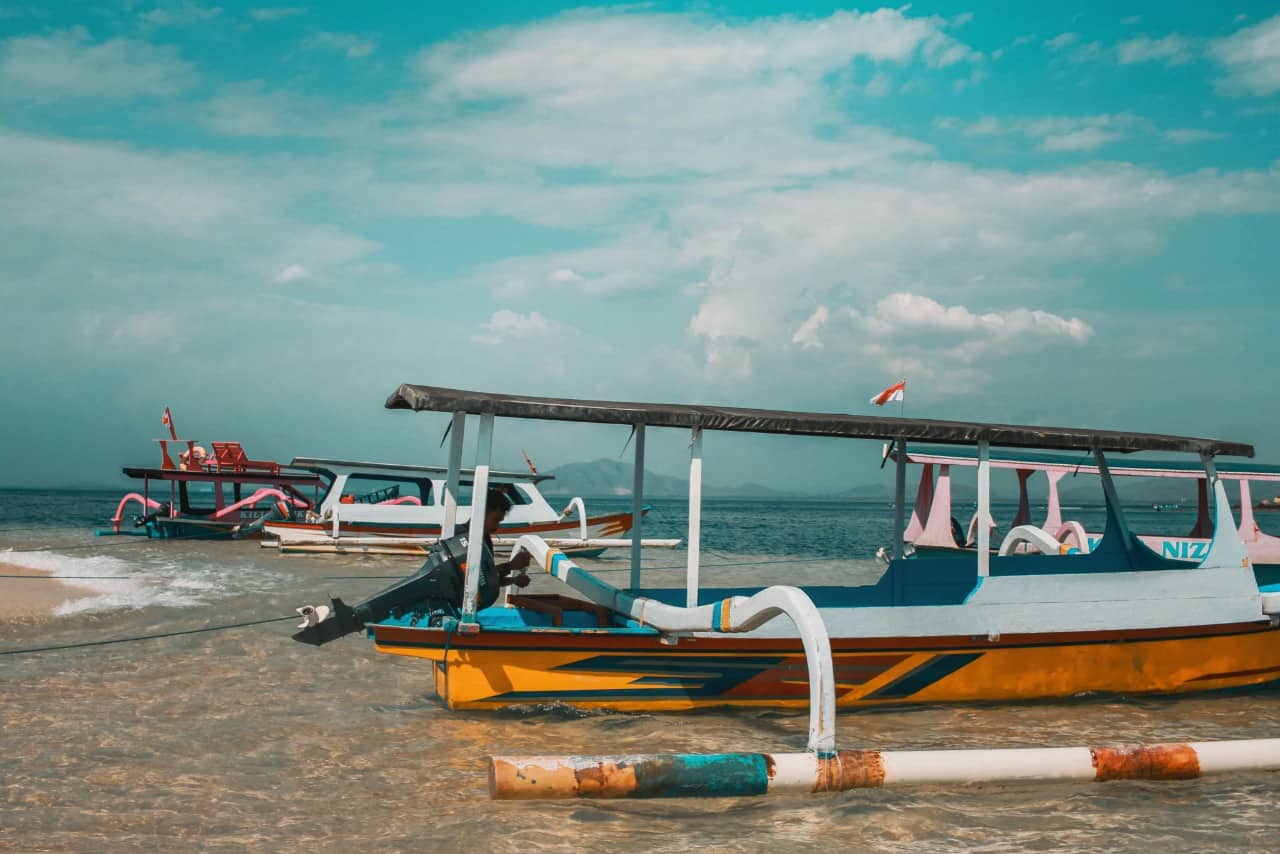
How to reach Lombok: By ferry (2 hours) or by flight (25 mins)
How many days should you spend at Lombok: 5-7 days
There are so many amazing things to see and do in Bali , making the island one of the most popular and well-known holiday destinations in Southeast Asia. After enjoying the wonderful things and sights that Bali has to offer, it is recommended to continue on your journey in Lombok and have a little peace and quiet in nature.
Lombok Island is situated right next to Bali and it’s conveniently connected by ferry shuttling between the two islands in about 2 hours. It is also possible to reach Lombok by plane. Compared with its neighbor, Lombok is blessed by fewer visiting crowds and commercial developments, keeping a more laid-back vibe that draws those who crave some quiet moments in the tropics.
However, it doesn’t mean that you cannot get active – the island features a majestic active volcano that hikers can go for a hike; the island is also surrounded by pristine beaches and resorts that scuba divers can take a dive.
It generally takes about five to seven days to fully experience Lombok. Rent a bike or hire a car and explore the island and delicious local cuisines. Some highlights of the island include Senggigi beach, Gili Island, Pink Beach, and Tanjung Aan Beach.
Contributed by: Bec, Wyld Family Travel
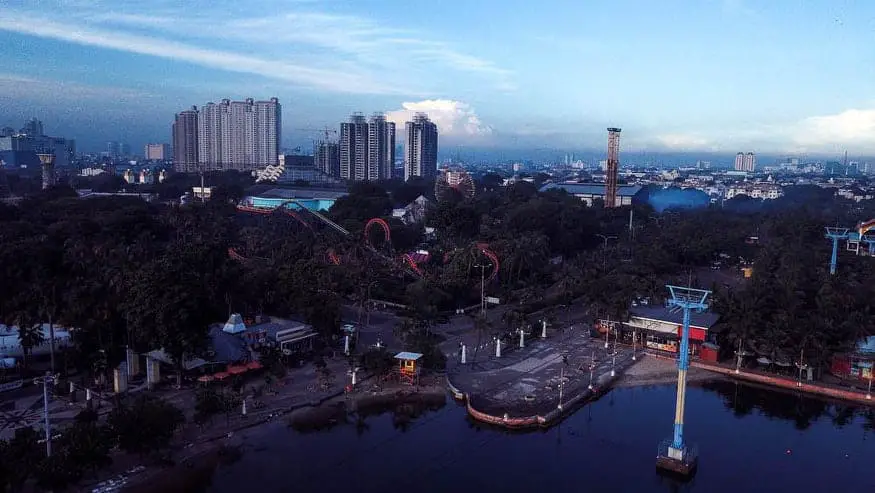
How to reach Ancol from Bali: Fly to Jakarta (approximately 2 hours) or ferry from Bali to Java and train from Java to Ancol (24+ hours)
How many days should you spend at Ancol: 1-2 days
If you are looking for a place to continue the magic spell Bali has put you under look no further than a stay in Ancol, Jakarta.
Ancol Jakarta is one of the very best places to visit after Bali for singles, couples and families travelling Asia. This amazing gated community area has it all.
So why is Ancol so great?
Brilliant hotels with a waterfront view all the way to an old aeroplane on the shore you can find something wonderful to do here. If you are travelling with kids to Ancol you will find it easy to navigate your way around. There are wide streets safe for walking and small playgrounds where the kids can run free.
A cable car will give you the best views of the beach and if you are travelling with a child at heart you can pick one of the many theme parks or one of the other attractions like Sealife to fill your day.
Hotels along the beachfront have amazing views and being the home of Indonesian jetski champs you can see them zipping along the water at breakneck speeds if they are practising.
Many of the hotels like the Mercure Ancol feature rooms with this stunning view as well as onsite restaurants and extra special pools with waterslides for anyone who wants to have a go.
But if getting out and seeing some of Jakarta while you are there is on your plans, it is easy to get to the main attractions from Ancol. You can hire a driver from one of the hotels or you can order yourself an Uber that will get you to the city centre for your Jakarta adventure.
Getting to Ancol is also a journey in Indonesia itself. If you want to stay in Indonesia a little longer you can catch a ferry to Java from Bali and take the train all the way through the beautiful Indonesian countryside to Ancol Jakarta. You can stop and get off or you can try to go straight through but be warned it can be a hairy 24 hours+ on trains!
Most people take the easier option of flying to Jakarta from Bali to maximise their time in the magnificent Ancol.
Flores Island
Contributed by: Carryn, Torn Tackies
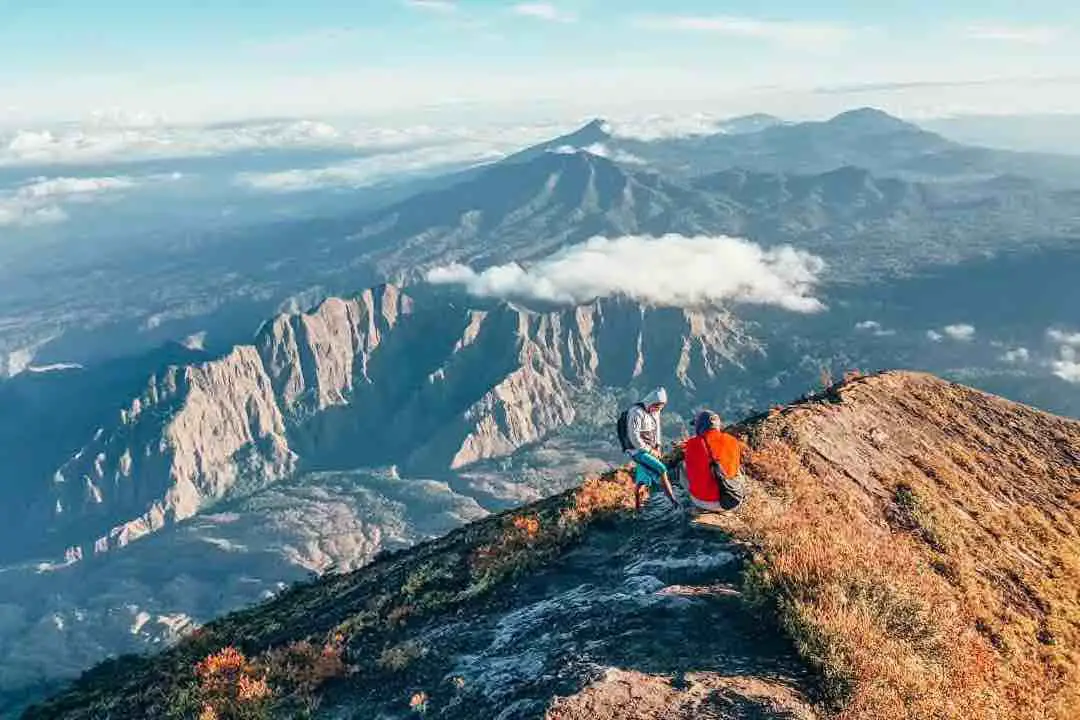
How to reach Flores Island from Bali: Flight to Labuan Bajo (Approx 2 hours)
How many days should you spend at Flores: Minimum 5 days
Remote volcano hiking trails, hidden hot springs, untouched islands and more, makes Flores Island one of the most incredible places to visit in Indonesia.
It’s a quick, 2-hour flight south of Bali and can be easily paired with a trip to the Island of the Gods. The best way to explore Flores Island is by doing an overland trip, where you arrive in Labuan Bajo on the west and depart from Ende on the east.
The most popular attraction is Kelimutu National Park, home to the tri coloured Kelimutu Lakes. But this natural phenomenon is just one of many spectacular sights on the island. The village of Bajawa offers a rich cultural experience which can be paired with a challenging hike to the peak of a dormant volcano, Mount Inerie. This, followed by a relaxing afternoon at the Bajawa Hot Springs, makes for an awesome day of exploring.
Head northeast and you’ll find the small fishing village of Riung. This is a great base for visiting the 17 Islands National Park which is a mecca for ocean lovers.
There is so much to do and see in Flores and you will need at least 10 days to tick everything off your bucket list. This will allow you to travel slow and use public transport between the villages. If time is not on your side, I’d recommend no less than 5 days on the island.
Contributed by: Martina, Places of Juma

How to reach Kawah Ijen from Bali: By boat from Gilimanuk ferry port (1 hr 15 mins)
How many days should you spend at Kawah Ijen: 1 day
A really cool place to visit after your Bali trip is definitely Kawah Ijen. This mighty volcano is located on the island of Java, and is about 60 kilometers from the Gilimanuk ferry in Bali and can be visited either on your own or with a guided tour from Bali. One day is enough to visit the volcano and do a hike to the crater lake.
There is not much in the surrounding area, most visitors continue their journey afterward, returning to Bali or exploring Java.
Ijen is a volcano with a total diameter of 75 km. The absolute highlight is the tour to the turquoise crater lake Kawah Ijen, which is considered to be the largest acid barrel on earth. Even today, sulfur is mined by hand under the most difficult conditions.
A few years ago, a visit was considered a real insider tip, today you can book a trip at the travel agencies of Bali. But still, a visit is a spectacular experience and if you are fit, you should definitely visit this place.
The hiking trail leads 3 km up to the crater. During your walk, you will meet the sulfur workers and if you are lucky, you can also have a conversation with them. The climb takes about 90 minutes until you reach the top of the crater. There, a fascinating view of the turquoise crater lake awaits you.
Down at the lake, the sulfur is broken off by the miners with iron rods on the ground and stowed in the bamboo baskets. These weigh up to 70 kg and would first have to be hauled back up to the crater and then back down to the valley. It is unbelievable what conditions the workers are exposed to every day!
Extra tip: A night hike is also interesting because then you can also see the famous Blue Flames. In addition, you then also have the opportunity to experience the sunrise.
Tanjung Punting, Borneo
Contributed by: Nicole, Go Far Grow Close

How to reach Tanjung Punting from Bali: There are no direct flights. You will need to take two flights to reach Pangkalan Bun (the airport closest to Tanjung Punting)
How many days should you spend at Tanjung Puting National Park: 4-5 days
A trip to Indonesia would not be complete without exploring Tanjung Punting National Park .
Tanjung Punting National Park is located on Borneo, the third largest island in the world and the largest in Asia. Borneo is divided into three countries – Indonesia, Malaysia and Brunei. Tanjung Punting National Park is found in Indonesia.
Tanjung Punting National Park is the biggest and most diverse coastal tropical heath and peat swamp forest in the world. It contains 3,040 km² (or 1,174 square miles) of low lying swamp lands and rivers which connect to the Java Sea.
It has remarkable wildlife including hundreds of bird species, crocodiles, snakes and most significantly, 9 different primates, including the Proboscis monkey and the endangered orangutan. One of the most extraordinary things that you can do in the National Park is to trek orangutans in the wild.
Reaching the National Park is not easy. It isn’t far from Bali, but there aren’t any direct flights to Pangkalan Bun.
Instead, you will have to take two flights for a total of 2 ½ hours.
From the airport, Tanjung Punting is a 20 minutes drive to the Port of Kumai, then a two hour boat ride on the Java Sea followed by the Sekonyer River, a very narrow waterway just feet from the shores and the jungle.
You have two options for accommodation: First, stay on a Klotok, a traditional Indonesian river boat, the whole time while you explore the river and jungles for orangutans. Second, stay in a traditional hotel and then, take the Klotok during the day on your ecotour. One fantastic hotel is Rimba Orangutan Ecolodge.
Stay between 4-5 days. There is so much to see, discover, uncover, and savor in Tanjung Punting. Every day you wake up and you have no idea which animals you will stumble across or what other natural wonders you will see.
Contributed by: Vanessa, The Travelling Colognian
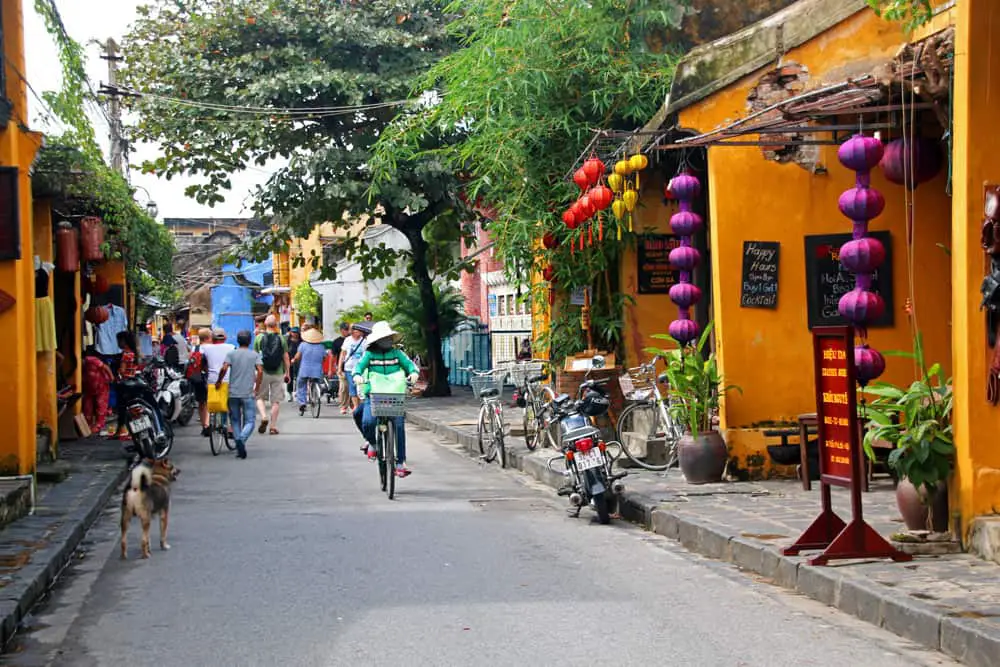
How to reach Hoi An from Bali: By flight to Da Nang and a bus from Da Nang to Hoi An
How many days should you spend at Hoi An : 3-4 days
Hoi An in Central Vietnam is one of the best places to visit after Bali. The lovely laid-back coastal town is about 2.900 kilometers away from Bali.
You can get there by taking a plane to Da Nang and continuing from Da Nang to Hoi An by bus. There are also train connections to Da Nang from different cities in Vietnam.
However, the most beautiful way to get to Hoi An is by overland bus from Huế over the Hai Van Pass which offers stunning views in all directions.
I suggest spending three or four days in Hoi An since there is a lot to do and see. The best time to visit is April but February, March, and June are also good since these are the months with the least rain.
Hoi An awaits you with its picturesque old town where you can easily spend hours walking around and taking photos of the beautiful buildings.
The typical Vietnamese lanterns that are enlightened at night hang everywhere and Hoi An is the best place in Vietnam to buy them. The wooden Japanese Chùa Cầu bridge over the Thu Bon river is another must-see sight. It is completely covered, also enlightened at night, and connects the Chinese and the Japanese quarter of Hoi An.
Other worthwhile sights are the Fujian Assembly Hall, the Quan Cong Temple, the Sa Huỳnh Culture Museum, the night market, and the central market as well as the nearby An Bang Beach and the Cham Islands.
Hoi An is also the best place in Vietnam to have clothes tailored.
If you have enough time I highly recommend taking a day trip to the Mỹ Sơn Hindu Temple. It is located in a rainforest about 40 kilometers southwest of Hoi An. The 70 temples that were built by the Kings of Champa are ruined but the atmosphere of Mỹ Sơn is still magical.
Contributed by: Marco, Penang Insider
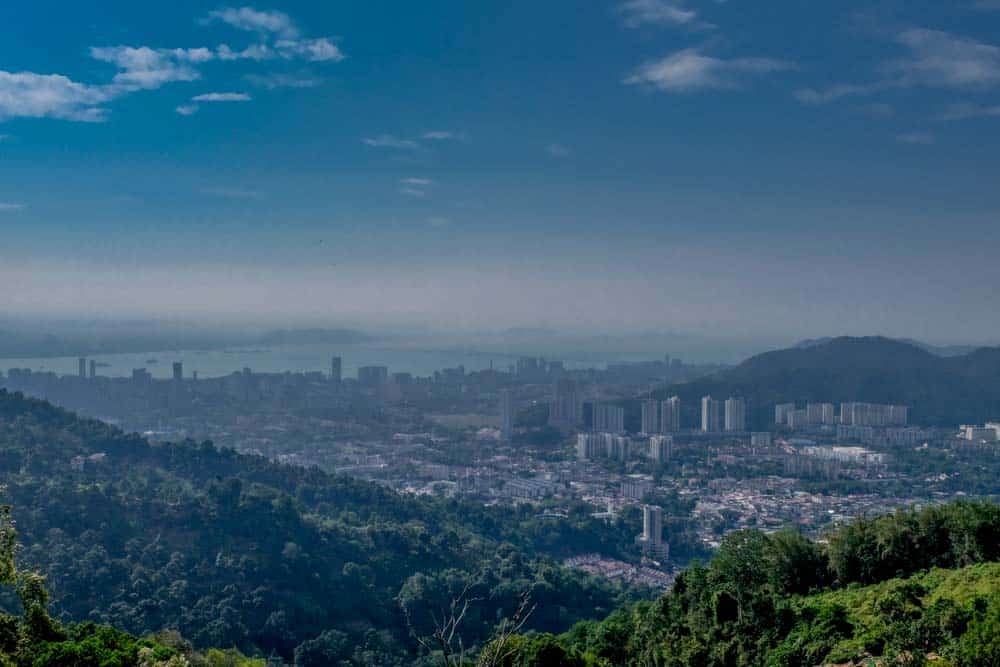
How to reach Penang from Bali: By direct flight to Penang (3.5 hours) (flight availability post-pandemic will depend on country-specific regulations)
How many days should you spend at Penang: 3+ days
The UNESCO World Heritage island of Penang in northwestern Malaysia is an ideal place to visit after Bali.
Before the pandemic, direct flights would take about 3 and a half hours. Otherwise, a stopover in Kuala Lumpur or Jakarta still made reaching Bali from Penang a breeze.
In sharp contrast to Bali, which is famous for its beaches and nightlife, Penang is more of a cultural island. You should spend a minimum of three days here, during which you’ll be barely able to scratch the surface. With at least a week and some desire to get out in nature, you’ll have a much better experience.
Start in UNESCO-protected George Town, which packs colonial history with the multi-ethnic living heritage of the Malay, Straits Chinese and Tamil Indians who inhabit this multicultural island.
Penang is a place for food and was listed by Lonely Planet as the best destination for foodies in 2014. Besides that, the former British colonial hill station of Penang Hill , which became a UNESCO Biosphere Reserve in September 2021, is the island’s green lung and boasts a series of hiking trails and ancient colonial bungalows perched around its Upper Station. The Funicular Railway, one of the steepest in the world, was upholstered in 2016 and grants quick access to this 833-metre-high peak.
Penang’s beaches are not nearly as pristine as Bali’s for the island has been more heavily developed, but you’ll still find some quiet and unspoilt coastlines in the southern and southwestern sides of the island. Pantai Esen, not far away from Penang Airport, is a beautiful beach backed by rainforest and three connecting hills where one can hike up to the remnants of War World II bomb shelters.
Contributed by: Kerry, VeggTravel

How to reach Kyoto from Bali: By flight to Tokyo or Osaka (flight availability post-pandemic will depend on country-specific regulations)
How many days should you spend at Kyoto: 2-3 days in Kyoto or 10 days in Japan
After you’ve explored the lush, green rice fields and beaches of Bali you’re sure to want to see another city that is rich in culture and history, Japan.
Japan is on many people’s bucket list for good reason; the bright lights, colourful anime and manga and many weird and wonderful things to do truly entice you in. However, outside of the bustling Tokyo, one city stands out above all others and that is the ancient capital of Kyoto.
The easiest way to get here is to fly into Osaka Itami (approximately 12 hours) and then a short bus or train to Kyoto. 2-3 days is more than enough in Kyoto, but you should spend at least 10 days in Japan overall.
Kyoto is a popular and well visited city, but it also has a well-preserved balance between modern developments and traditional architecture.
Many of the things to do in Kyoto are centred around places of special significance for the Japanese people. One of the most notable areas is the Fushimi Inari Shrine which is located atop a mountain trail decorated with 1000 red Torii gates and Shinto Shrines. Another must see is the impressive bamboo grove in Arashiyama.
When you’re not discovering the varied and intricate temple complexes you will be exploring the infamous Gion district. Beautiful traditional houses, ornate Japanese decorations and rice paper screens await.
Book a Japanese tea ceremony and be entertained by an authentic Geisha or Mieko to get the ultimate cultural experience.
Most people will stay near the river and the central Kyoto station as this is close to the riverside restaurants and bars and easy to get to other locations.
Final Thoughts
So which of the above places will you put on your bucketlist? There are so many amazing places to choose from no matter your travel style. If you are an animal lover, head to Borneo. If you want a slice of culture and heritage, Hoi An or Kyoto would be great choices. For beach lovers, you could simply add an island like Gili Air or Lombok to your itinerary. For breathtaking landscape, Flores Island or Ancol would be terrific choices. Or if you just have one extra day, Kawah Ijen would be a unique addition to your Bali itinerary.
Pin this post for later!

More Resources
How many days are enough in Bali
The perfect 10-day Bali itinerary
Bali travel tale: A mistake that taught us a huge travel lesson
TOP TRAVEL RESOURCES
Here is a list of our favorite travel resources- the ones that I absolutely swear by when planning almost every trip. Go through this list to plan a hassle-free trip and save a lot of money!
Flight Booking: Check the availability of tickets, the best time to fly, and the cheapest fares on Skyscanner . You may also find a cheap flight via CheapOair
Accommodation: I absolutely love booking through Agoda . In most countries and particularly in Asia, I often find the best fares on Agoda. But I also love the no prepayment and no cancellation fee policy of Booking.com . For cheap accommodations and hostels, nothing beats Hostelworld .
Car Rentals: You may find and rent an appropriate car via RentalCars . It’s hassle-free and reliable.
Guided Tours: I absolutely love GetYourGuide for local sightseeing tours, walking tours, history tours, and food tours. The booking process is seamless, and the tours are super affordable. But in Asian countries, I prefer Viator or Klook for their affordably priced tours.
Lounge Access : Get Priority Pass – my personal favorite card that gives me unlimited access to premium airport lounges all over the world
Hey, if you found this post helpful, share it with more people or buy me a coffee !
Vrushali Ketkar is a lawyer turned travel blogger. She has travelled to 14 countries. She travels like a regular working woman with family. Her lawyer-level research skills make her a destination expert and help her get the most out of my trips. Today, her travel articles and videos help thousands of people across the world plan their trips to various parts of the world.
Similar Posts
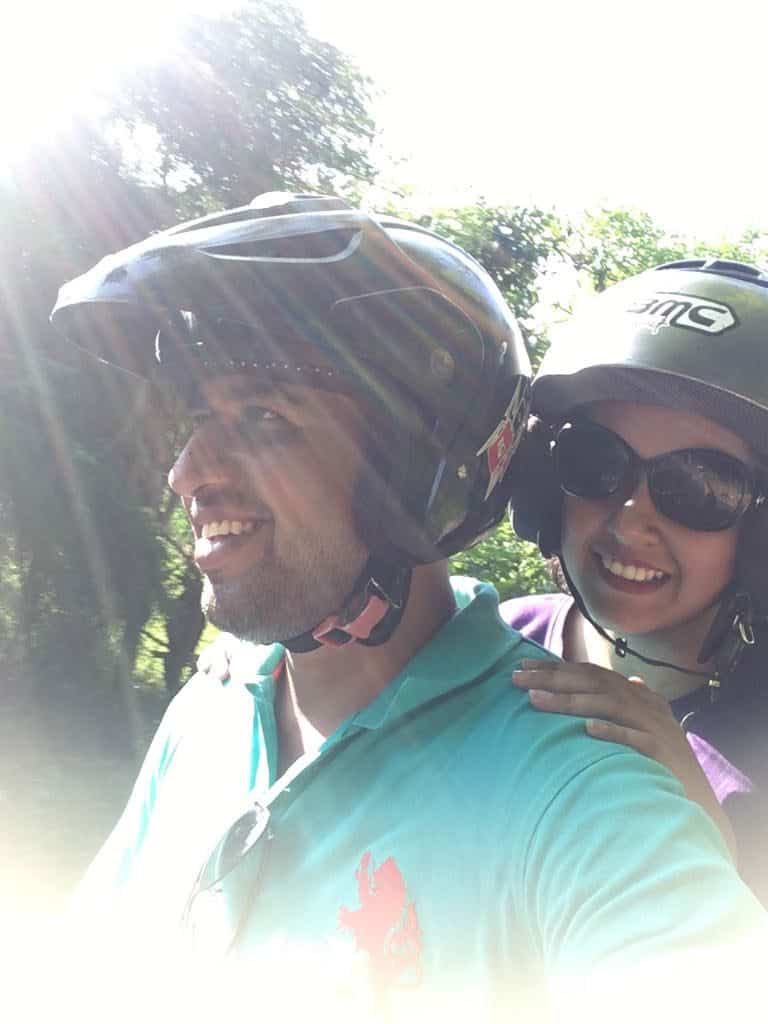
Bali Travel Tale: A mistake that taught us a big travel lesson!
“Travel is not about itineraries and tourist places, it’s all about travel tales!” Even before we left for Bali,…
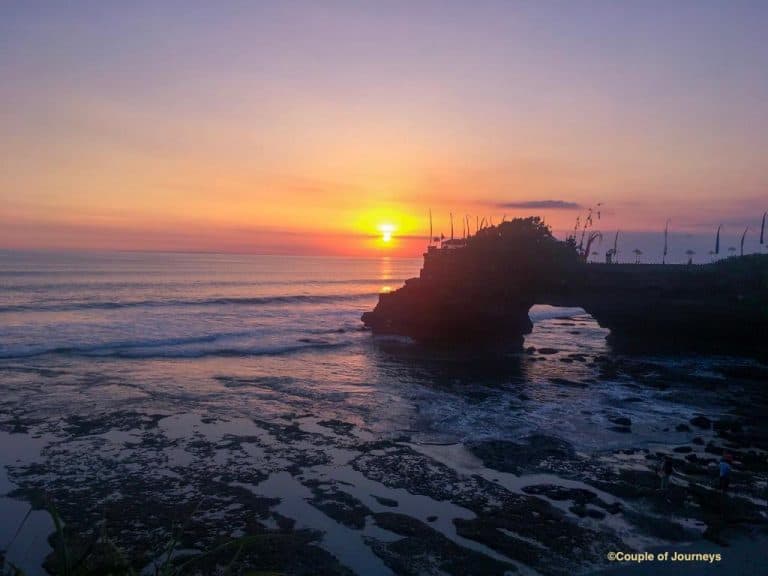
Sunset at Tanah Lot: Full Guide 2023
Want to see a sunset at Tanah Lot? Tanah Lot offers a jaw-dropping sunset experience – the best in…
![can you travel to bali What to do at Uluwatu Temple? Expert Guide [2023 Update]](https://cdn-0.coupleofjourneys.com/wp-content/uploads/2023/07/Uluwatu-Temple-entrance-768x576.jpeg)
What to do at Uluwatu Temple? Expert Guide [2023 Update]
Wondering what to do at Uluwatu Temple? In this guide, I will go over things to do at Uluwatu…
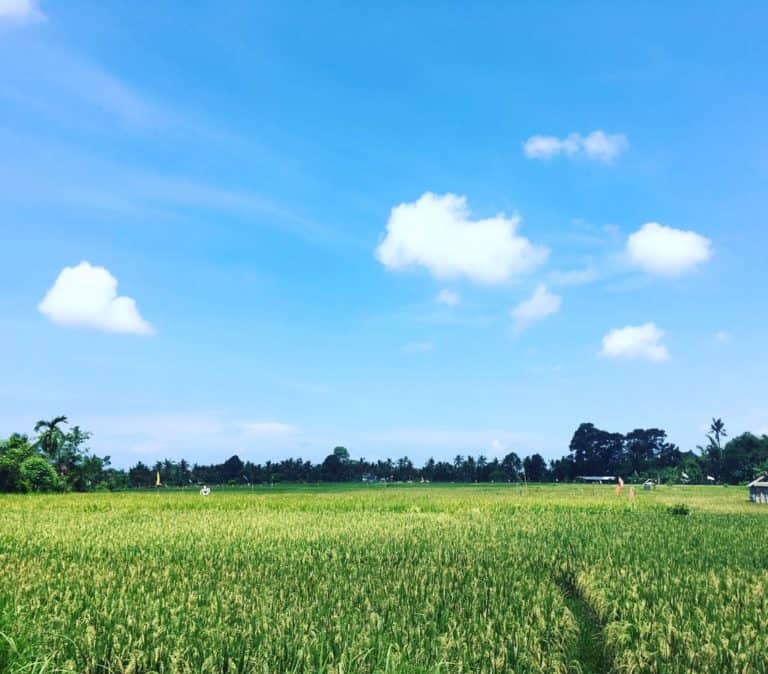
The Best Area to Stay in Bali for Older Couples: Detailed Guide
Are you looking for the best area to stay in Bali for older couples? So this post is perfect…

Bali Hotel with Flower Pool and Flower Baths: Top 12 Picks
Have you been considering Booking a Bali hotel with flower pool? do you want to experience a Bali flower…
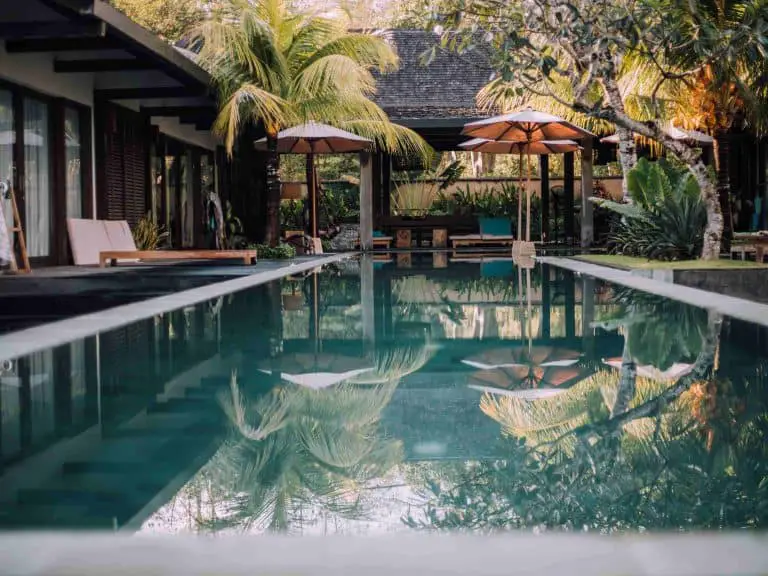
Where to Stay in Bali for Couples: 7 Best Areas & 12 Stays
Have you been wondering About Where to Stay in Bali for Couples? Are you looking for the most romantic…
Nomadic Matt's Travel Site
Travel Better, Cheaper, Longer
Southeast Asia Travel Guide
Last Updated: November 27, 2023

Backpackers have been traveling through Southeast Asia since the late 1960s and early 1970s, leaving a well-worn trail around the region.
Starting in beautiful Thailand, the trail makes its way to up-and-coming Laos, through Vietnam, and to the temples of Angkor Wat. It then winds back into Thailand, where people head south to party in the Thai islands before moving down to Malaysia and Singapore.
There are a few variations to the trail, but this is what it mostly covers.
I’ve been visiting this region since 2004 and spent years living in Thailand . I love backpacking Southeast Asia and have written extensively about it as I know it like the back of my hand.
It’s an especially great region for new travelers because it’s easy to travel around, it’s safe, and there are lots of other travelers you can meet. But it’s also perfect for veteran travelers too as there are tons of off-the-beaten-path destinations that the standard backpacker trail doesn’t cover.
In short, Southeast Asia has something for every traveler — and every budget.
This Southeast Asia travel guide will help you travel the region like a pro, ensuring you save money and make the most of your time in this fun, gorgeous, and lively corner of the world.
Table of Contents
- Things to See and Do
- Typical Costs
- Suggested Budget
- Money-Saving Tips
- Where to Stay
- How to Get Around
- How to Stay Safe
- Best Places to Book Your Trip
- Related Blogs on Southeast Asia
Click Here for Country Guides
Top 5 things to see and do in southeast asia.
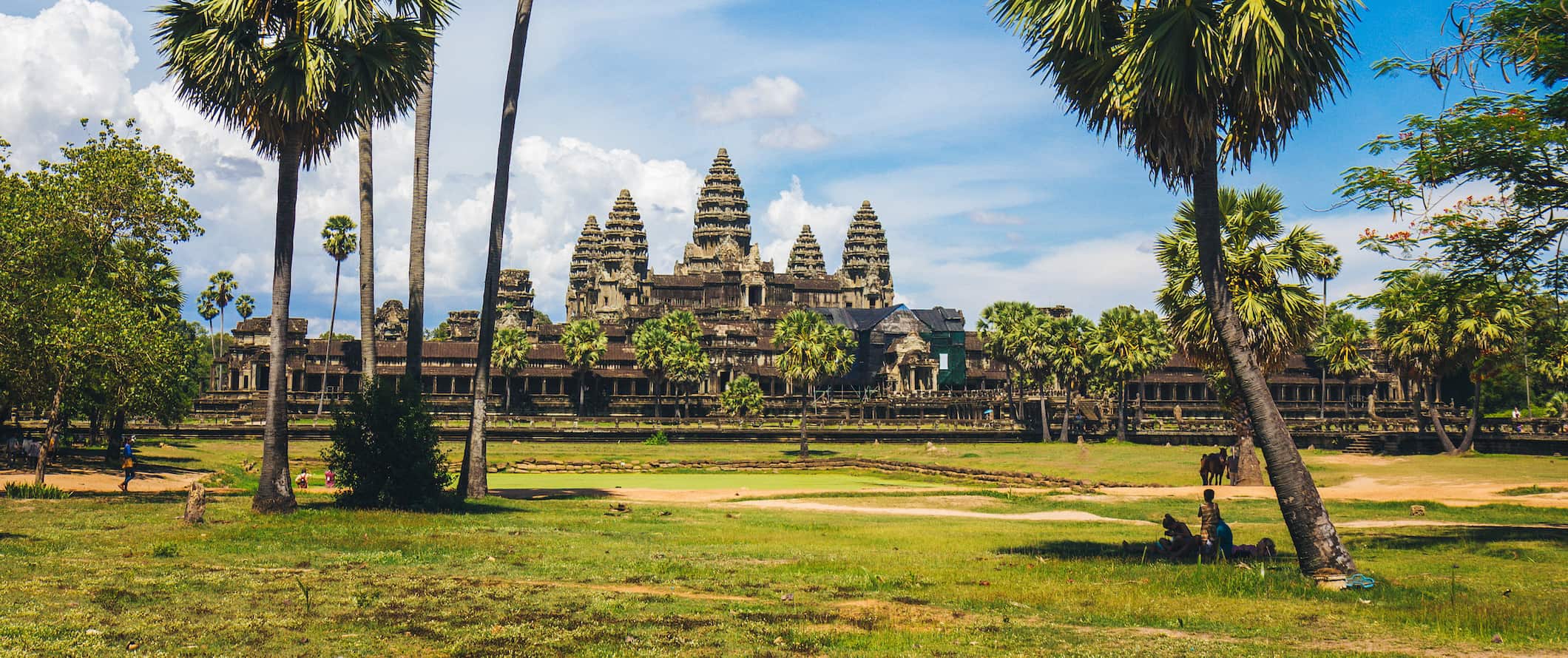
1. Admire Angkor Wat
One of the greatest human creations in history, the Angkor Wat temple complex is best explored over the course of a few days. The area is a UNESCO World Heritage Site created by the Khmer Empire and absolutely enormous. Temples to visit include Angkor Wat, Bayon Temple which has 216 gigantic stone face carvings, and Ta Prohm. I spent three days here and that simply wasn’t enough. A one-day pass is $37 USD, while a 1-week pass is $72 USD. If you’re here for multiple days, be sure to hire a driver and see some of the more out of the way ruins away from the main temple complex (and the crowds).
2. Explore Bangkok
Bangkok is the hub of travel activity in Southeast Asia. You can get anywhere you want from here. Though I hated it at first, the more I’ve spent time here the more I love it. Bangkok is like an onion whose many layers need to be peeled back. Some things not to miss include the spectacular Bangkok Grand Palace, Wat Pho, Chatuchak Market and Asiatique, and a canal trip on the Chao Phraya River. This is a city for foodies and wild nightlife.
3. Relax on some tropical islands
No visit to Southeast Asia would be complete without a visit to at least one of the thousands of tropical islands in the region. My top five include the Perhentian Islands (Malaysia), Rabbit Island (Cambodia), Ko Lanta (Thailand), and Boracay (Philippines). Lombok Island (Indonesia) has a chill vibe with unspoiled, perfect “desert island” beaches. There’s so many islands to visit. Be sure to add at least one to your trip. The country guides will have more information for you.
4. See Ha Long Bay
Sailing trips to this island-filled bay with stunning emerald waters, limestone formations, and marine life give you an appreciation for the natural beauty in Vietnam. Tours from Hanoi start at around $110 USD for two-day trips and increase from there. I love the colorful grottoes, hanging stalactites, and stalagmites of Surprise Cave (Sung Sot), Fairy Cave (Tien Ong), and Heaven Palace (Thien Cung). Make sure you go with a reputable company though as some of the cheaper boats are less than ideal. If you’d rather just visit for one day, day trips from Hanoi cost $55 USD.
5. Wander Kuala Lumpur
Other things to see and do in southeast asia, 1. go jungle trekking.
This region of the world is covered in amazing jungles with diverse wildlife, plentiful camping opportunities, and cool waterfalls. The best jungle treks are found in northern Thailand, Western Laos, and Malaysian Borneo (the latter are also the hardest and most intense). Some of my favorites include Danum Valley (Borneo) for its incredible wildlife; Ratanakiri (Cambodia) for its pristine wilderness and thousand-year-old trees; and Pu Luong Nature Reserve (Vietnam). Costs vary but jungle trekking generally costs $30-50 USD per day.
2. Attend the Full Moon Party
The biggest one-night party in the world welcomes up to 30,000 people with a party that stretches until dawn. Cover yourself in glow paint, grab a bucket of booze, and dance the night away with new friends on the island of Ko Phangan in Thailand. As the name would suggest, the party is on the night of the full moon. If you miss it, there’s always the half-moon party, quarter-moon party, and black-moon party. Really, every night is a party on Ko Phangan . Just avoid the flaming jump rope that occurs — I’ve seen people get burned badly!
3. Learn to dive
There are many great dive sites around the region for those interested in underwater exploration. You can learn to dive here at a fraction of what it would cost back home too. Some of the best places are Ko Tao (Thailand), Sipadan (Malaysia), as well as Gili Islands (Indonesia) and Coron, Palawan (The Philippines). A typical diving course is completed in three days. A PADI course typically runs $275 USD in Thailand, including three nights’ accommodation, though at smaller schools you can often negotiate down to $250 USD. Day trips for certified divers start at $165 USD. For information on Ko Tao, check out this blog post .
4. Eat street food in Singapore
Singapore is a foodie’s heaven. Try the hawker stalls of Singapore as well as Little India and Chinatown for some of the best and cheapest food in Asia. If you’re looking for a nice place to sit down and eat, eat at Singapore’s famed restaurants during lunch when restaurants offer discounts, making them a great deal. You’ll also find the most affordable Michelin-starred restaurants here (Tian Tian Hainanese Chicken Rice and Hawker Chan), offering world-class meals for just a couple of bucks!
5. Overload on temples
You can’t turn a corner without seeing a Buddhist temple in this part of the world. You’ll get temple overload at some point but visit as many as you can as each is unique to the country and region of the temple. There are so many places with high concentrations of ornate and beautiful temples. Check out Chiang Mai’s Wat Doi Suthep Temple and hike up the 300 steps to the golden Chedi that’s 600 years old!; Bagan’s Shwesandaw Pagoda from the 11th century with its stunning golden dome; Angkor Wat’s Ta Prohm is covered in iconic vines and enveloped in ancient jungle roots; Hue’s colorful Thien Mu Pagoda is perched atop a lush green embankment; Hoi An’s Quan Cong Temple with incredible Chinese architecture with hand-carved beauty and skill, and Luang Prabang’s Vat Xieng Thong with its golden, canopied roof. Most are free to enter, however, dress codes are enforced (you need to have your shoulders and legs covered).
6. Dive Sipadan
Located off Malaysian Borneo, Sipadan is one of the best dive sites in the world. If you have your dive certificate, make sure you venture out here. I absolutely love this area because it’s teeming with live turtles, diverse cave systems, sharks, dolphins, colorful coral, bright fish, and everything in between. Not a lot of people make it to this part of Malaysia, but it’s worth it to go the extra mile and make your way off the tourist trail a bit. Don’t miss Barracuda Point and The Drop-Off. Keep in mind that only 176 permits to dive at the island are issued each day, costing 140 MYR per person. The resorts on the neighboring islands each get a specific number of permits per day and require divers to stay with them for a few days. So you’ll need to stay at those resorts and dive into the surrounding areas before they can get you a Sipadan permit.
7. Fall in love with Bali
Bali is the most popular destination in Indonesia, and its famous Kuta beach is known for its wild parties and surfing ( though I think it’s overrated ). However, there is much more to Bali than just wild nights and sun-soaked days. If you’re a thrill seeker, hike up to the top of Mount Batur, an active volcano, for a breathtaking sunrise. Paragliding and white water rafting are also super popular here, as is surfing (it’s an affordable place to learn if you’ve never done it). There are also lots of hot springs to enjoy, the Ubud Monkey Forest (a popular temple and nature reserve home to hundreds of monkeys), and numerous places to scuba dive, including the Liberty wreck and Manta Point.
8. Take in Ho Chi Minh City
Frantic, chaotic, and crazy, Ho Chi Minh City in Vietnam is the embodiment of the controlled chaos that rules Southeast Asia. You can’t quite figure out how this teeming mass of people and cars work together, but it does. Highlights here include touring the tunnels used by the Viet Cong in the 1960s, taking in the view from the Saigon Skydeck, eating your way through the street food scene, and seeing the city’s numerous temples.
9. Admire the sunrise over an Indonesian Volcano
One of the most popular tourist attractions on Java is Mount Bromo and its National Park. Don’t miss out on getting a photo of the smoldering Bromo volcano as it lies surrounded by the almost lunar landscape of the Sea of Sand. Get up early to catch one of the most memorable sunrises of your life. If you’re there in mid-August, you’ll be just in time to see Upacara Kasada, the traditional Hindu ritual of the Tenggerese, a Javanese tribe of the region.
10. Hike in Khao Sok National Park
Located in southern Thailand, Khao Sok National Park is constantly rated as one of the best parks in Thailand, with incredible trekking, camping, limestone karsts, cooling rivers, and a glistening lake. Visit for semi-challenging hikes, tons of wildlife, walking paths, and breathtaking sunsets. Park entrance costs around $6 USD while full-day guided tours are $95 USD. I highly recommend spending at least one night here to get the full experience.
11. Visit Kampot
Most people come to Kampot to enjoy the scenic riverside views, as well as the rolling hills that surround the city. Since you can explore easily enough on foot or by bicycle, Kampot is a great place to slow down and relax. There’s not much to do here but have lazy days by the river, chill, and eat (don’t miss the famous Rusty Keyhole for BBQ!). Don’t miss the pepper farms, as this region of Cambodia is filled with pepper farms where you can learn about the history of the spice, see how it is grown, and pick up what is considered some of the finest pepper in the world. Tours are usually free.
12. Take a cooking class
Food from this region is as varied as the countries themselves and learning how to cook a few dishes is a great souvenir of your time here. Even if you don’t plan to cook back home, you can still spend a day making and eating scrumptious food. Most big cities have cooking schools offering classes of 2-6 hours, often including a trip to the local market beforehand to select ingredients. I absolutely love cooking classes and urge you to take one at least once. They are a fun experience!
13. Take a food tour
If you’d rather eat instead of cook, taking a food tour is a fun way to gain insight into the region’s amazing noodle dishes, fresh seafood, sweets, and street food while learning about the history and culture behind the cuisine. Most major cities in Southeast Asia offer food tours. These include tours around local markets, street stalls, and tours to locally-owned restaurants and cafes where you can sample the local cuisine and connect with a local chef. If you’re nervous about street food, this is a great way to try some in a controlled setting. Tours usually last 2-4 hours and include multiple stops and several different dishes, with prices costing $40-75 USD per person.
14. Visit an elephant sanctuary
While riding an elephant is on many a Southeast Asia bucket list, once you know how much the animals suffer from abuse in order to provide these rides, you might think twice about taking one. An even better way to interact with elephants is to volunteer at or visit the Elephant Nature Park near Chiang Mai in Thailand. It’s a phenomenal place, allowing you to give back to the community and these magnificent animals all at once. After coming here, you will understand why you should NEVER ride an elephant. A one-day visit costs $70 USD.
15. See The Killing Fields
A visit to Choeung Ek, also known as the Killing Fields, may not be the most cheerful way to spend an afternoon, but it makes for an educational and memorable experience. Over 3 million people were killed by Pol Pot’s regime, including countless women and children. I recommend getting a guide so you can really understand what you’re seeing as you explore the area. Also, this horrific tragedy took place less than 50 years ago and is still very present so please be respectful as a visitor. The site is located 10 miles from Phnom Penh. Half-day guided tours start at $66 USD.
16. Swim with Whale Sharks in Donsol
If you’re in the Philippines, check out the Donsol Whale Shark Interactive Ecosystem Project because there are not many experiences quite as adrenaline-inducing as swimming with a whale shark for the first time in crystal waters. These incredible creatures are around 45 feet (14 meters) long and yet incredibly gentle and curious. I loved floating at the surface being able to look below and see them slowly swim below me. Get some people together and rent a boat for a half day, explore the area, and go ‘shark-seeing’ for a good cause.
For a ton more information, visit my country specific travel guides for more detailed information on each place:
- Cambodia Travel Guide
- Indonesia Travel Guide
- Laos Travel Guide
- Malaysia Travel Guide
- Singapore Travel Guide
- Thailand Travel Guide
- Vietnam Travel Guide
Southeast Asia Travel Costs
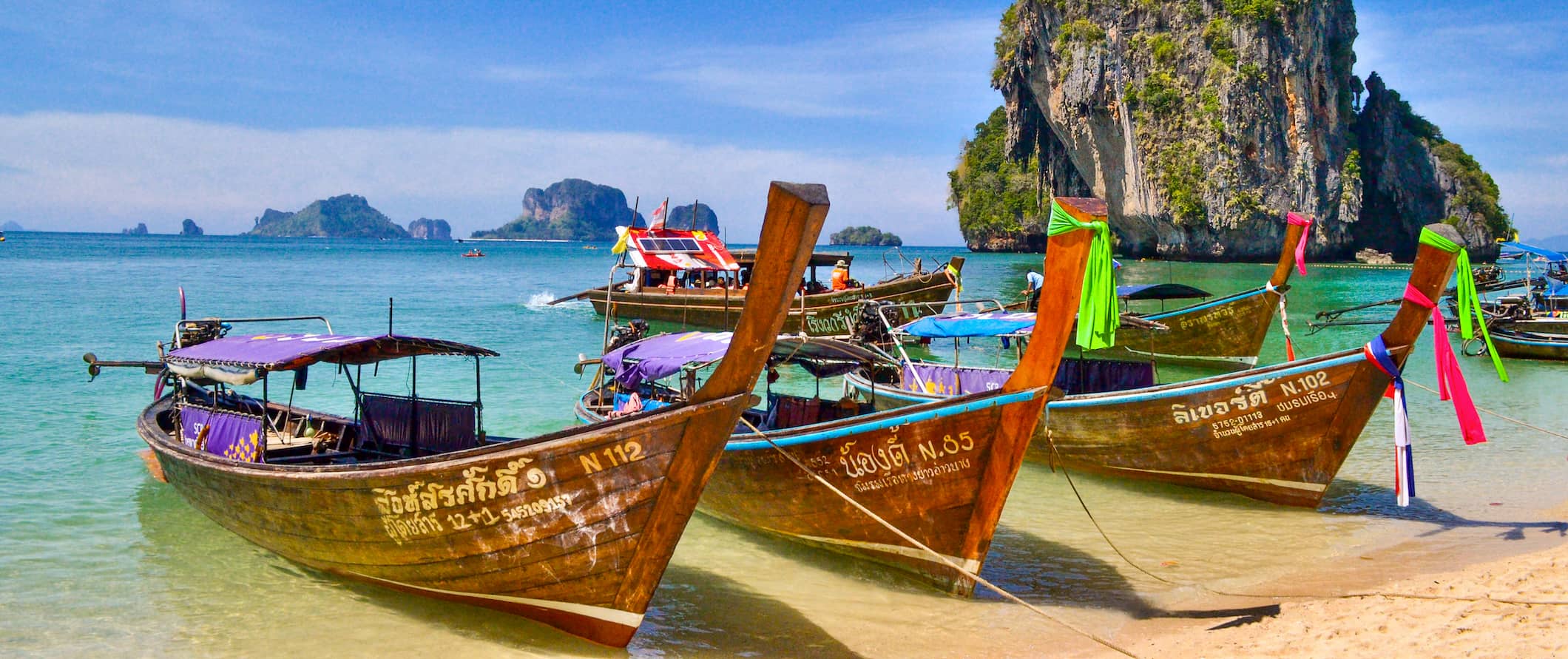
Accommodation – Accommodation in Southeast Asia is really cheap, making it the perfect place to travel if you are on a budget. Hostels are plentiful, as are budget guesthouses and hotels. It’s also very cheap to splash out here if you’re in need of some luxury.
Generally, you can find hostel dorm rooms for as little as $6-8 USD in Cambodia and $3-6 USD in Laos. In Thailand, 4-6-bed dorm rooms are $8-12 USD, while in Vietnam you can expect to pay $5-7 USD. In Indonesia, prices range between $5-10 USD for a 4-6-bed dorm room. Expect to pay at least $15-20 per night for a private room with air conditioning. Free Wi-Fi is standard in most hostels, free breakfast is common, and many hostels even have pools. In more remote areas, hot water isn’t common so make sure to check in advance if that’s an issue for you.
Simple guesthouses or bungalows throughout Southeast Asia generally cost $12-20 USD per night for a basic room with a fan (sometimes air conditioning) and hot water. If you want something nicer that includes a more comfortable bed and a TV, expect to pay $25-35 USD per night.
For backpackers, budgeting around $10 USD per night for accommodation is pretty safe no matter where you go in Southeast Asia. If you’re looking for a higher-end hotel room with more amenities, expect to pay $20-50 USD per night for a room. Anything over that is luxury territory.
Camping is available in certain areas, usually for just a few dollars per night for a basic tent plot without electricity. However, this is about the same price as hostels so it’s not really any cheaper.
Food – While each country’s cuisine varies, overall, Southeast Asian food is aromatic, spicy, and flavorful. Typical spices and herbs include garlic, basil, galangal, cilantro, lemongrass, kaffir lime leaves, chilies, and fish sauce. No matter what region you’re in, you can expect to find a variety of curries, salads, soups, noodle dishes, and stir-fries.
Rice and noodles are central to Southeast Asian food, while the meat is usually pork, chicken, fish, or seafood, which is everywhere on the islands and coastal areas.
While traveling Southeast Asia, street food is the most popular food and cheapest option. On average, these meals cost $1-5 USD. You find these stalls throughout this region lining most streets and every market. They are ubiquitous in the region. In Singapore, street food (from “hawker stands” as they’re known there) costs around $4-5 USD for a meal. Even if you go into small local restaurants, the price doesn’t increase that much.
Food that costs $2 USD at a street stall generally only costs $4-6 USD at a local restaurant. If you went into a restaurant in Thailand, you’d pay around $3-4 USD for a pad Thai that would have cost $1-2 USD on the street.
In Cambodia, street food is around $1-2 USD, while restaurants charge around $3-5 USD for a dish like amok (a coconut milk dish) or luc lac (pepper gravy beef).
Western meals, including burgers, pizza, and sandwiches usually cost around $7-10 USD. But these generally aren’t that great. If you want something that actually tastes as it does back home, expect to spend at least $10-12 USD for your meal.
While cheap, alcohol can take a bite out of your budget if you’re not careful. Those $1-2 USD beers add up! Wine and cocktails are more expensive, generally around $3-5 USD. A cappuccino is typically around $2 USD. Bottled water is plentiful and costs less than $1 USD.
There’s a growing cutting-edge foodie scene in the region and, if you want to splurge, you can do so on some really good meals. Big cities like Bangkok, KL, and Singapore, all have world-class Michelin star restaurants as well some incredible fusion restaurants.
Since dining out is so cheap in the region, there’s no point in grocery shopping unless you’re looking to get some pre-made salads or fruits. Additionally, a general lack of kitchens in most hostels and hotels makes it difficult to cook even if you wanted to. If you do purchase your own groceries, expect to spend around $25 USD per week for basic groceries like local produce, rice, and some meat (while avoiding expensive imported items like cheese and wine).
Backpacking Southeast Asia Suggested Budgets
On a backpacker budget of $45 USD per day, you can stay in hostel dorms, eat out at local markets and street stalls, limit your drinking, do mostly free activities, minimize paid activities, and use public transportation to get around. You’re not going to be able to splash out but you’ll be able to live the typical backpacker experience without really stressing over expenses.
On a mid-range budget of $85 USD per day, you can stay in budget hotels or private hostel rooms, eat more restaurant meals, do more paid activities like cooking classes, take some taxis, and enjoy a few more drinks. You won’t live large, but you won’t be missing out either.
On an upscale budget of $150 USD or more per day, you can stay in nicer hotels with more amenities, eat out as much as you want, do more paid tours including private tours, hire a driver, fly between destinations, and basically do whatever you want. The sky is the limit with this kind of budget!
You can use the chart below to get some idea of how much you need to budget daily, depending on your travel style. Keep in mind these are daily averages — some days you’ll spend more, some days you’ll spend less (you might spend less every day). We just want to give you a general idea of how to make your budget. Prices are in USD.
Southeast Asia Travel Guide: Money-Saving Tips
Backpacking Southeast Asia is cheap. There’s little opportunity to spend a lot of money since everything is already so inexpensive unless you intentionally are trying to splash out on fancy meals and high end hotels. The two reasons why most travelers end up overspending is that they eat a lot of Western food and drink way too much. If you want to save money while traveling in this part of the world, cut down on your drinking and skip the Western food. While country guides have more specific ways to save money, here are some general ways to save money in Southeast Asia:
- Stay with a local – Accommodation is cheap in Southeast Asia but nothing’s cheaper than free! Use Couchsurfing to stay with locals who have extra beds and couches for free. You’ll also meet great people who can show you around and share their insider tips and advice.
- Book tours and day trips as a group – You have more negotiation power when you’re with a group of people buying multiple spots or tickets. Traveling alone? Meet a friend at a hostel and see if they want to join the same tour as you. I’ve met some great friends over the years doing this and highly recommend it.
- Don’t book in advance – Don’t book any tours or activities before you get to your destination. They’ll be much cheaper when you arrive as you’ll be able to negotiate a lower price as you’ll find companies are often offering the same tour and competing. Anything you see online is more expensive than you need to pay!
- Eat on the street – The street food is the best food. The food is the best and cheapest you’ll find. It’s a great way to try new foods and get to chat with locals as well. This is where locals eat so if you want insight into local culture, good food, and savings, eat the street food. Look for where locals are eating to ensure that it’s safe to eat.
- Bargain hard – Nothing is ever at face value here. Bargain with sellers as most of the time, the price they’ve quoted is way higher. There’s a haggling culture in the region so play the game and save some money. It’s important not to convert it in your head to your own currency because it will usually sound cheap even though you might still be getting ripped off. You’ll never get the local price, but you might come close!
- Minimize your drinking – Drinks really add up. Even with cheap drinks, if you’re not aware, you’ll end up spending more money on beer than on food and accommodation. If you want to drink, head to the supermarkets, drink at the hostel, or check out the local happy hours.
- Pack a water bottle – A water bottle with a purifier comes particularly in handy in Southeast Asia since you can’t usually drink the tap water. Save money and thousands of plastic bottles and get a bottle that can purify the tap water for you. My preferred bottle is LifeStraw as it has a built-in filter that ensures your water is always safe and clean.
Where to Stay in Southeast Asia
I’ve been traveling Southeast Asia since 2005 and have stayed in hundreds of places. Here are some of my favorite places to stay in Southeast Asia:
- The Siem Reap Pub Hostel (Siem Reap)
- Onederz Siem Reap (Siem Reap)
- Mad Monkey Siem Reap (Siem Reap)
- Onederz Sihanoukville (Sihanoukville)
- Monkey Republic (Sihanoukville)
- Onederz Phnom Penh (Phnom Penh)
- Sla Boutique Hostel (Phnom Penh)
- The Magic Sponge (Kampot)
- Indigo House Hotel (Luang Prabang)
- Sa Sa Lao (Luang Prabang)
- Sanga Hostel (Pakse)
- Nana Backpackers Hostel (Vang Vieng)
- Dream Home Hostel (Vientiane)
- Traveller Bunker Hostel (Cameron Highlands)
- De’Native Guest House (Cameron Highlands)
- Kitez Hotel & Bunks (Kuala Lumpur)
- Sunshine Bedz Kuala Lumpur (Kuala Lumpur)
- Ryokan Muntri Boutique Hostel (Penang)
- Mad Monkey Hostel (Bangkok)
- D&D Inn (Bangkok)
- Kodchasri B&B (Chiang Mai)
- The Royal Guest House (Chiang Mai)
- Green Leaf (Khao Yai)
- Lonely Beach Resort (Ko Chang)
- The Sanctuary (Koh Phangan)
- Na-Tub Hostel (Koh Phangan)
- Pineapple Guesthouse (Phuket)
- Dream Lodge
- The Pod Capsule Hostel
- The Scarlet
- Under the Coconut Tree Guesthouse (Hoi An)
- Fuse Beachside (Hoi An)
- Pretty Backpackers House (Da Lat)
- Hanoi Old Quarter Hostel (Hanoi)
- Luxury Backpackers Hostel (Hanoi)
- The Hideout (HCMC)
- City Backpackers Hostel (HCMC)
How to Get Around Southeast Asia
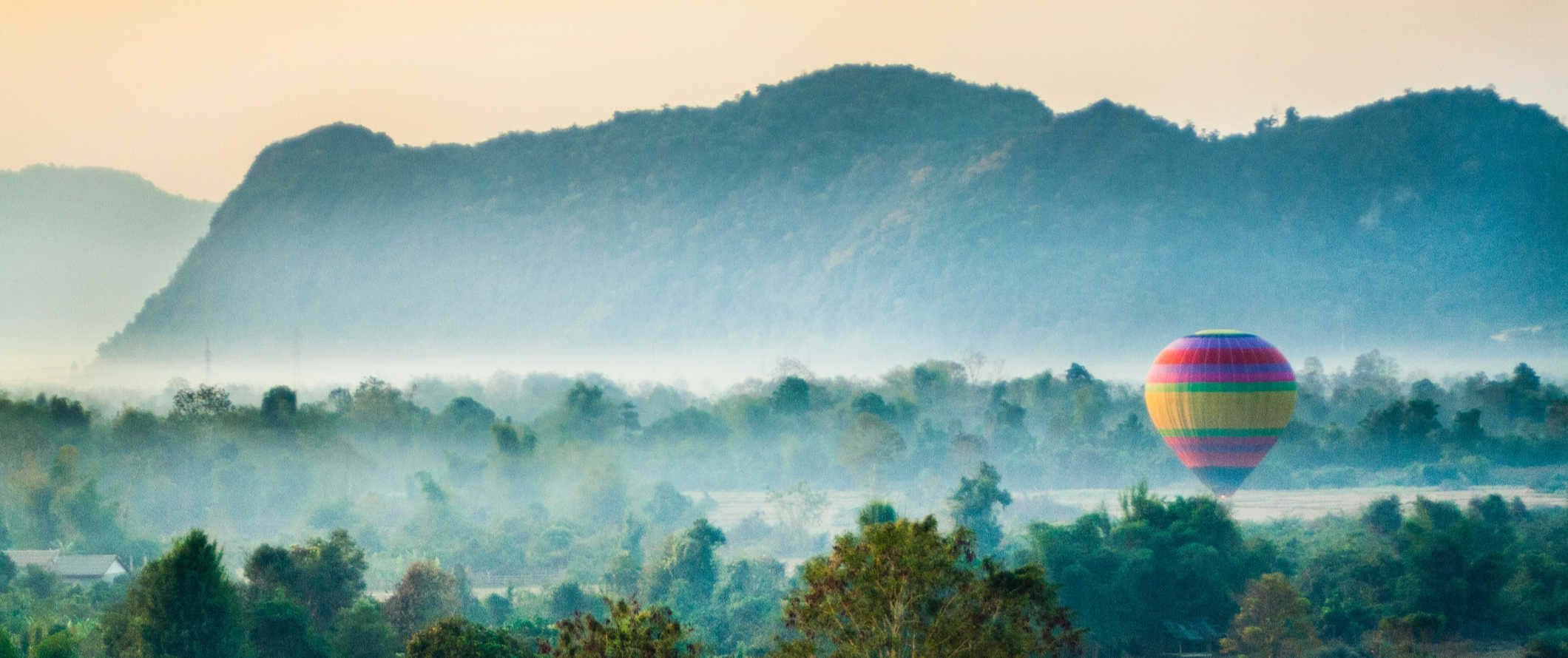
Public transportation – Public transportation costs from a few pennies to a few dollars, with Singapore and Malaysia offering the most comprehensive public transportation systems. In Thailand, local buses cost around $0.25 USD per trip, while the Metro and Skytrain in Bangkok cost $0.50-1.50 USD per trip. In Cambodia, a bus ticket in Phnom Penh costs just $0.40 USD per ride.
Major cities generally have subway systems but mostly you’ll be using the bus or shared taxis to get around.
Tuk-tuks (small, shared taxis with no meter) are available around much of the region and require a bit of haggling. They usually have 3-6 seats and generally cost more than public transportation but are faster. To find a reputable driver, ask your accommodation as they usually know someone. Tuk-tuk drivers can often be hired for the day for a discounted rate (this is what a lot of people do to visit the Killing Fields and Angkor Wat in Cambodia, for example).
Taxi – Taxis in the region are generally safe, though it’s not uncommon to have to haggle. Scams to rip you off aren’t uncommon either, so always ask your accommodation to call you a taxi whenever possible so you know you’ll get a reputable company.
In Singapore and Indonesia, taxi drivers do put on the meter. In Bangkok, you can get taxi drivers to use the meter, but if you’re hailing one in a tourist area, he might try to avoid using it. In Vietnam, the meter is sometimes rigged, but if you can get a reputable company like Mai Linh, you won’t have any problems.
Ridesharing – Grab, DiDi, and Gojek are Asia’s answer to Uber. They work the same way: you hire a driver to take you somewhere via the app, and you can pay via the app or in cash. It’s often more affordable than a regular taxi, though drivers are a bit unreliable as the practice is not as widespread here as in other parts of the world.
Just keep in mind that some drivers are driving motorcycles so be sure to double check what kind of vehicle is picking you up if you don’t want to ride on the back of one.
Bus – The easiest and cheapest way to travel around Southeast Asia is by bus. The backpacker trail is so worn that there is a very well-established tourist bus system to take you anywhere. Buses costs vary between $5-25 USD for a 5-6 hour journey. Overnight buses cost $20-35 USD depending on distance (they often have reclining seats so you can get a decent sleep).
You can check ticket prices and book tickets for all the different bus companies across Southeast Asia at 12go.asia.
Train – Train service is limited in the region and not something to really consider when you travel Southeast Asia. You can take a train up and down the coast of Vietnam and there’s some limited scenic rails in Malaysia. Thailand is the only country that has an extensive train system that lets you travel all its regions (and onward to Singapore) from Bangkok.
The train prices in Southeast Asia are determined by distance and class. Night trains with sleeper cars are more expensive than day trains. The night train to Chiang Mai from Bangkok takes twelve hours and costs $27 USD for a sleeper seat. However, that same train during the day is $8-9 USD. In Vietnam, trains run up and down the coast and cost $60 USD from Hanoi to Ho Chi Minh City.
Flying – The cost of flying around Southeast Asia has come down in recent years due to the rise of low-cost airlines. Scoot, Jetstar, and AirAsia are the biggest. Nok Air has a lot of flights within Thailand , and VietJet Air is popular in Vietnam . Lion Air serves Indonesia , but its safety record is really spotty and I personally would not fly them. If you book early, you can save on fares, as most of the airlines offer deeply discounted fare sales all the time, especially Air Asia.
Just make sure that the airport these budget airlines fly into isn’t too far out of your way (transportation from the secondary airport sometimes negates the savings from using the budget airline itself).
Also, keep in mind that you usually must pay to check your baggage on these cheap flights. If you wait to pay for your luggage at the gate, you end up paying almost double. Travel carry-on only to avoid this added cost.
All in all, I only recommend flying if you are pressed for time or find a super cheap deal. Otherwise, stick to the bus.
Hitchhiking – Hitchhiking in Southeast Asia is safe, though popularity of the practice varies by country (it’s more common in Malaysia, but not so much in Cambodia). Dress respectably, smile while making eye contact with drivers, and use a cardboard sign to tell people where you’re headed. Be prepared for long bouts of no pick-ups, especially if you’re traveling through more rural areas. Pack plenty of water and food. Also, make sure the people picking you up understand you’re hitchhiking and not flagging down a taxi.
Hitchwiki is a great resource for hitchhiking tips.
Car rental I don’t recommend renting a car in Southeast Asia. Rental cars are expensive ($40 USD per day or more) and the roads here are in poor shape. I would never drive around the region.
When to Go to Southeast Asia
The best time of year to visit Southeast Asia is from November to April when temperatures are milder (though temperatures vary drastically by region). It may be mild in Thailand in January and hot in Malaysia but in Northern Vietnam, it’s cold! Also, one of the biggest mistakes people make is not taking into account the rainy season. In some cases it won’t make a big difference but definitely does if it’s a beach trip.
In Indonesia, the best time to visit is April to October. Temperatures average 24-30ºC (75-86ºF), and the weather is mostly dry. July to September is the peak holiday season and when you can expect to pay the highest rates. December to February is the rainy season.
In Malaysia, January-March and June-September are the best time to visit, as these months have the lowest average rainfall. It is still hot and humid during this time though. The rainy season is from October to December. Singapore’s climate/weather is much like Malaysia’s.
In Vietnam, the weather varies by region. In Central Vietnam (including Hoi An and Nha Trang), January-May is the best time to visit because it is dry and the temperatures average 21-30°C (70-86°F). June to August is also a decent time to visit. If you want to stick around Hanoi, March to April is great, or October to December (for mildest temperatures). The rainy season is May-September.
Thailand has three seasons: hot, hotter, and hottest. It’s always warm, though the weather is nicest between November and February (which is also peak tourist season). Bangkok is “coolest” and driest during this time (but still averaging a hot 29°C/85°F each day). April and May are the hottest months, and the rainy season is June-October. The gulf islands get pretty rainy from August to December.
The dry season in Cambodia is from November-May and the cool season is from November-February (and when most people visit). Temperatures during this time are still high, but humidity is lower. Laos has the same cool season as Cambodia, with the dry season running from November-April.
In the Philippines, it’s mostly warm all year long with an average daily high of 26°C (80°F). There are rainy and dry seasons and temperatures are hot and dry from March-May and cooler December-February. The best time to visit is between January-April when it’s less humid. Monsoon Season is July-October.
For more information on when to go to places, visit the specific country guides.
How to Stay Safe in Southeast Asia
Southeast Asia is an incredibly safe place to backpack and travel — even if you’re traveling solo and even as a solo female traveler. Violent crime is super, duper rare. Petty theft (including bag snatching) is the most common type of crime in Southeast Asia, especially around popular tourist landmarks. Always keep your valuables out of reach on public transportation and in crowds just to be safe. Never leave your valuables unattended while at the beach and always keep a hold of your purse/bag when out and about as bag snatching is common.
That said, outside touristy areas, theft is really rare. Heck, it’s pretty rare in touristy areas too! But a little vigilance goes a long way and it’s better to be safe than sorry.
There are some common scams around that you’ll want to be aware of, such as the motorbike scam. This involves a bike rental company trying to charge you for damage to the bike that you didn’t cause. To avoid this, always take photos of your rental before you leave so you can protect yourself from baseless claims.
Another common scam involves a tuk-tuk driver taking you somewhere you didn’t want to go in hopes you’ll buy something from the shop/restaurant he dropped you off at (he gets a commission if you do). Simply refuse to buy anything and demand to go back to where you were — or find another driver.
For other common travel scams, read this post about major travel scams to avoid in the region .
Solo female travelers should feel safe here, though it’s generally a good idea to avoid walking around alone at night just to be safe. It’s always a good idea to carry some extra cash to get home in a taxi if you need to. Additionally, always keep an eye on your drink at the bar and never accept drinks from strangers. Be sensible when it comes to dating while traveling and meeting people in public places. As I’m not a woman, please check out some solo female travel blogs to get the best insight.
Overall, the people who get in trouble here tend to be involved with drugs or sex tourism. Avoid those two things and you should be fine. Keep in mind that it’s not always obvious how old someone is or if they’re a sex worker so be mindful when getting involved in romantic interactions. Also, penalties for drug use in this region are stiff so even if you’re here to party, skip the drugs.
Always trust your gut instinct. Make copies of your personal documents, including your passport and ID. Forward your itinerary along to loved ones so they’ll know where you are.
For more in-depth coverage of how to stay safe in Southeast Asia, check out this post that answers some frequently asked questions and concerns.
The most important piece of advice I can offer is to purchase good travel insurance. Travel insurance will protect you against illness, injury, theft, and cancellations. It’s comprehensive protection in case anything goes wrong. I never go on a trip without it as I’ve had to use it many times in the past. You can use the widget below to find the policy right for you:
Southeast Asia Travel Guide: The Best Booking Resources
These are my favorite companies to use when I travel. They consistently have the best deals, offer world-class customer service and great value, and overall, are better than their competitors. They are the companies I use the most and are always the starting point in my search for travel deals.
- Skyscanner – Skyscanner is my favorite flight search engine. They search small websites and budget airlines that larger search sites tend to miss. They are hands down the number one place to start.
- Hostelworld – This is the best hostel accommodation site out there with the largest inventory, best search interface, and widest availability.
- Agoda – Other than Hostelworld, Agoda is the best hotel accommodation site for Asia.
- Booking.com – The best all around booking site that constantly provides the cheapest and lowest rates. They have the widest selection of budget accommodation. In all my tests, they’ve always had the cheapest rates out of all the booking websites.
- Get Your Guide – Get Your Guide is a huge online marketplace for tours and excursions. They have tons of tour options available in cities all around the world, including everything from cooking classes, walking tours, street art lessons, and more!
- SafetyWing – Safety Wing offers convenient and affordable plans tailored to digital nomads and long-term travelers. They have cheap monthly plans, great customer service, and an easy-to-use claims process that makes it perfect for those on the road.
- LifeStraw – My go-to company for reusable water bottles with built-in filters so you can ensure your drinking water is always clean and safe.
- Unbound Merino – They make lightweight, durable, easy-to-clean travel clothing.
Get the In-Depth Budget Guide to Thailand!
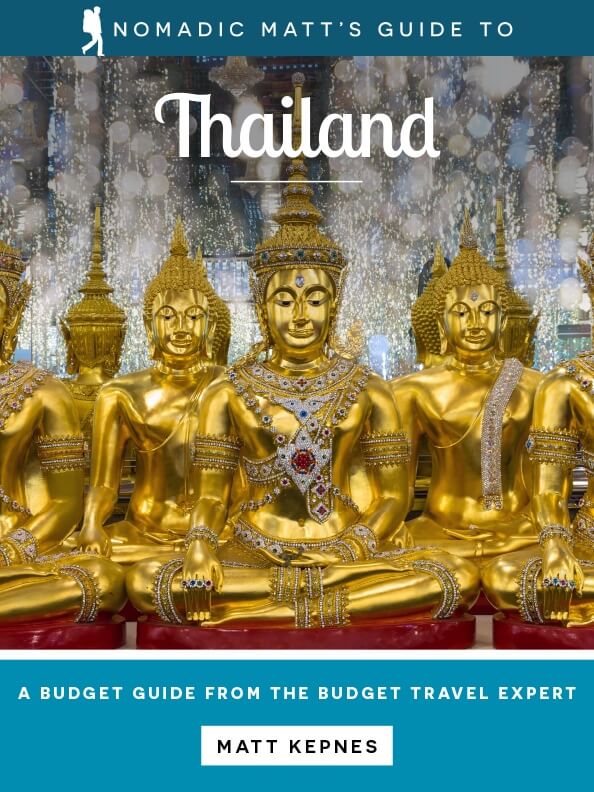
My detailed 350+ page guidebook is made for budget travelers like you! It cuts out the fluff found in other guidebooks and gets straight to the practical information you need to travel around Thailand. You’ll find suggested itineraries, budgets, ways to save money, on and off-the-beaten-path things to see and do, non-touristy restaurants, markets, bars, safety tips, and much more! Click here to learn more and get your copy today.
Southeast Asia Travel Guide: Related Articles
Want more info? Check out all the articles I’ve written on Southeast Asia travel and continue planning your trip:
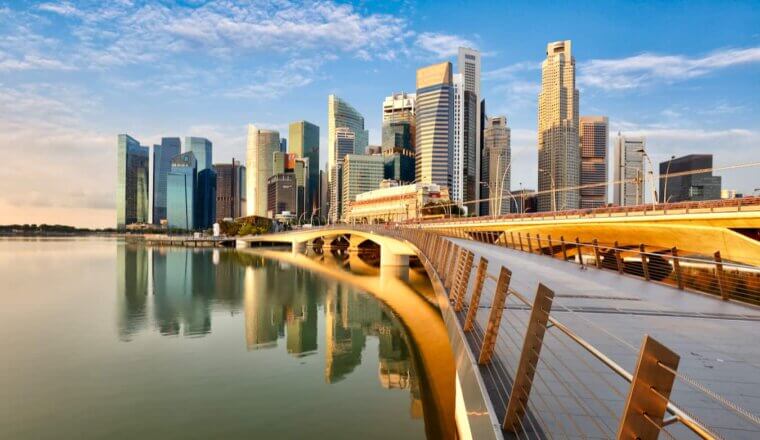
The 4 Best Hostels in Singapore

The 6 Best Hostels in Bali

The 22 Best Things to Do in Bangkok

5 LGBTQ Travel Tips for Asia

Is Southeast Asia Safe for Travelers?

Backpacking Cambodia: 3 Suggested Itineraries for Your Trip
Get my best stuff sent straight to you, pin it on pinterest.
- Where To Stay
- Transportation
- Booking Resources
- Related Blogs

A Carnival Celebration Is Happening In Bali, Fall 2024. Here’s What To Know
B ali is probably the last place you would look for a carnival . But Ethan Auguste has worked tirelessly to promote the Caribbean culture for over a decade with his events and entertainment company Caribbean Vybez.
“2024 marks the 15th anniversary of Caribbean Vybez, and since launching, I’ve pioneered [celebrating] the culture in the U.A.E., worked on events and collaborations in Geneva, and elevated the culture here in Bali,” Auguste tells Travel Noire.
Auguste is no stranger to bringing people together. When he moved to Dubai in 2009, he created and hosted a Caribbean party because he missed the music from his home. Auguste is from Trinidad and Tobago, the land of Soca, Calypso, Steelpan, and its iconic carnival.
Before moving to Bali, he lived in Geneva, Switzerland, for three years, where he hosted a creative exchange through his other platform, Thrive Collective. The collective showcases and brings the creative community together. Since its launch, Auguste has created a community of thousands of creatives and business owners across WhatsApp, Facebook, Telegram, and an email distribution list. He created ThriveIN, a printed magazine distributed in more than 300 locations, and produces the podcast “Discover a Thriver.”
“It was in my soul to want to bring the Carnival experience to others in Bali with the hopes of inspiring people to visit my home,” he adds.
Bali Carnival will span seven days, with eight events between September 26 and October 2, 2024. In an interview with Travel Noire, Auguste discusses what carnival goers can expect as the event has gotten bigger and better since its official launch in 2022.
Travel Noire: Can you tell our readers what to expect this year?
Auguste : This year, we plan to take it to another step since the launch of the pilot events in 2022 and 2023. We are in talks with the Ministry of Tourism and other governments from the various CARICOM nations to come together during this cultural exchange. For the first time, we would be on the main road for the parade, hosting international acts and D.J.s.
Travel Noire: Why do you feel bringing a carnival to the area is important?
Auguste : The question would be, why not? The goal of Bali Carnival is not only to showcase the culture of the Caribbean but also to create a parade that celebrates everyone in the middle of Southeast Asia. I hope we can build this into something amazing. The backdrop of Bali alone creates an experience unlike anything else. I also believe it’s an excellent opportunity to showcase the other side of the world, the Caribbean, especially with Bali tourism on a high level, with over 300,000 visitors a month on average.
Travel Noire: What’s next for you in terms of planning events like this?
Auguste : I’m in talks with someone about holding the first ThriveXchange in Thailand in November, and I plan to spread it to other destinations in the near future. We are also working on Thailand Caribbean Weekender to be hosted in April 2025. I opened a Caribbean restaurant and plan to also give a taste of the Caribbean here in Bali. Other events we host include the Bali Colour Festival, Taste of Bali, Bali Spring Break, and more. The plan is to continue to build these events as staples in Bali.
Caribbean Vybez is partnering with Black in Bali, The Bali Weekly, Tempo, and more for the Bali Carnival. Visit the Bali Carnival website for more information , including a list of events.
This article has been edited and condensed for length and clarity.


IMAGES
VIDEO
COMMENTS
It can be significantly cheaper, depending on the season you intend to travel. If you can't get a flight to Bali, or if it is too expensive for you, you can look into the option to book a flight to Jakarta and then take a domestic flight on the same day to Bali.
Proof of Vaccination. To travel to Bali, Indonesia, you must present a valid digital or printed proof of Covid Vaccination with the final dose taken 14 days prior. Although officials may not check your status upon arrival in Indonesia, airlines typically verify this requirement when checking in. Therefore, you must meet this criterion for entry.
Bali Travel Tips: Arrival & Visas. 1. Know About the 500,000 IDR Visa On Arrival Fee + New 150,000 IDR Bali Tax. Indonesia permits visa-free entry to ASEAN countries but everyone else needs to buy a Visa On Arrival (VOA) at the airport. They don't ask any questions to get a Visa on Arrival, you just need to pay a fee.
Lighten the load on your wallet by purchasing your repellent in Bali and opting for bug sprays made in Asia. Popular (and much cheaper) Asian brands you'll find throughout Indonesia include Soffell (snap up the surprisingly pleasant floral-scented version if you can). 5. Avoid traveling during peak times.
Entry Requirements: To enter Indonesia, your passport must have at least two blank pages and be valid for at least six months beyond the date of your arrival in Indonesia.If your passport does not meet these requirements, you will be denied entry into Indonesia. The Government of Indonesia will not admit travelers holding the 12-page U.S. emergency passport, issued by U.S. embassies and ...
AP. 0:00. 0:35. DENPASAR, Indonesia — The Indonesian resort island of Bali reopened for international travelers to visit its shops and white-sand beaches for the first time in more than a year ...
The President of Indonesia, Joko Widodo, imposed new regulations for those who are planning to travel to Bali. Since 14 October 2021, Bali has been gradually opening its doors to international tourists. On 3 February 2022, the inaugural commercial flight of Garuda Indonesia Airline carrying international tourists landed in Bali from Narita, Japan.
Here's what you need to know about travelling to Bali, from pre-departure testing and visas to mask-wearing requirements Cathy Adams Thursday October 06 2022, 8.39am , The Times
It is no longer a requirement to wear a mask but it is advisable if you have symptoms. It is still recommended that travelers carry their vaccine cards when traveling. The Indonesian Government is no longer testing for COVID-19 and any resulting quarantine is no longer in effect. Visa on Arrival (VOA) & Electronic Visa on Arrival (eVOA) VOA and ...
Best Places to Visit in Bali. With over 5,000 square kilometers (over 2,000 square miles), there are many places you can visit in Bali. In general, tourism in Bali can be divided into three regions: southern, northern/eastern, and central. The northern and eastern parts are good for mountain climbing, hiking, volcano adventures, and diving.
You can check for the details of visa prices here. B211A visit visa (tourism visa) While there are various types of visit visas, those looking to travel to Bali for the purpose of tourism need only to obtain the B211A visa for tourism. The B211A visa is a single visit e-visa valid for 60 days and is extendable for a maximum of four times.
A common traveler concern. Tobi Miles. March 31, 2024. The short answer is yes, Bali is generally safe for tourists. However, like any popular tourist destination, it has its share of safety concerns and challenges. Knowing what to expect and how to navigate these can make all the difference in enjoying your Bali adventure worry-free.
Read the entire Travel Advisory. Do Not travel to: The provinces of Central Papua (Papua Tengah) and Highland Papua (Papua Pegunungan) due to civil unrest. Terrorists continue plotting possible attacks in Indonesia. Terrorists may attack with little or no warning, targeting police stations, places of worship, hotels, bars, nightclubs, markets ...
if you intend to stay longer than 60 days. If you don't have a passport but a Titre de Voyage, or Laissez-Passer, or Refugee Travel Document. …then you need to apply for the 211A Visit Visa BEFORE arriving in Indonesia. Bali.com can facilitate this visa for you online. This Visa is single entry only. 211A Details & Online Application Service.
Apply online for your e-Visa on Arrival (e-VOA) at least two days prior to your trip or upon arrival at specific airports such as Jakarta, Bali, Surabaya, Lombok, Makassar, Manado, Batam, Medan, Yogyakarta or Tanjung Pinang. The fee is US$35 (A$50) per person and there will be a small additional processing fee when applying online.
Latest update: The Bali Provincial Government has introduced a new tourist levy of IDR 150,000 per person to foreign tourists entering Bali. The tourist levy is separate from the e-Visa on Arrival or the Visa on Arrival. Cashless payments can be made online prior to travel or on arrival at designated payment counters at Bali's airport and seaport.
One of the primary requirements for traveling to Bali is a valid passport. As a vital document, your passport must meet certain criteria for entry into Bali. Valid for a minimum of the following 6 months from your arrival date in Bali. Have at least 1 available page. Be in a good condition, not ripped or deteriorated.
Bali Covid Vaccination Requirements (2024) The Indonesian Government have updated their Immigration laws pertaining to Covid vaccination requirements and proof of vaccination for both international and domestic travellers. You no longer need to provide proof of Covid-19 vaccination to enter Indonesia or travel domestically.
On 14 February 2024, the Bali Provincial Government will introduce a tourist levy of 150,000 Indonesian rupiah per person (approximately £8) to all foreign tourists arriving in Bali.
Shampoo and conditioner (2 in 1): I'll let you in on a secret. When I'm traveling, I use the 2-in-1 shampoo and conditioner for my hair and body so no need to bring a separate body wash. Facewash. Moisturizer. Body cream: After hours in the sun, you're going to want to moisturize. Toothbrush and toothpaste.
The news has triggered much concern for many travelers planning to visit Bali soon. While the new laws apply to all people in Indonesia, whether citizens or visitors, there are only very specific circumstances whereby unmarried foreigners in Bali could fall on the wrong side of the law. On the 6th of December 2022, the parliament in Indonesia ...
Hoi An in Central Vietnam is one of the best places to visit after Bali. The lovely laid-back coastal town is about 2.900 kilometers away from Bali. You can get there by taking a plane to Da Nang and continuing from Da Nang to Hoi An by bus. There are also train connections to Da Nang from different cities in Vietnam.
Fall in love with Bali. Bali is the most popular destination in Indonesia, ... Train - Train service is limited in the region and not something to really consider when you travel Southeast Asia. You can take a train up and down the coast of Vietnam and there's some limited scenic rails in Malaysia. Thailand is the only country that has an ...
Bali is probably the last place you would look for a carnival. But Ethan Auguste has worked tirelessly to promote the Caribbean culture for over a decade with his events and entertainment company ...
You will see even Balinese families rarely take bikes if they have a car. (yes you will see a lot of people on bikes but they are commuting to work or don't have money for a car) I think you mean google maps, estimations are timed, and not accurated, so if you check google maps when it's 2 am yes the traffic looks very smooth.
149 likes, 67 comments - lockdown_made_us_travel on May 6, 2024: "Do you like exploring WATERFALLS? If you do, make sure to LIKE and SAVE this post so you can add ...